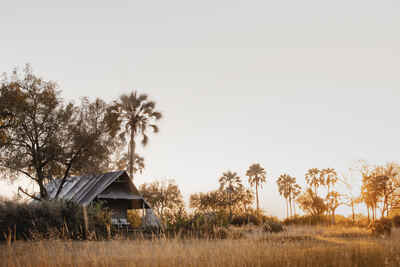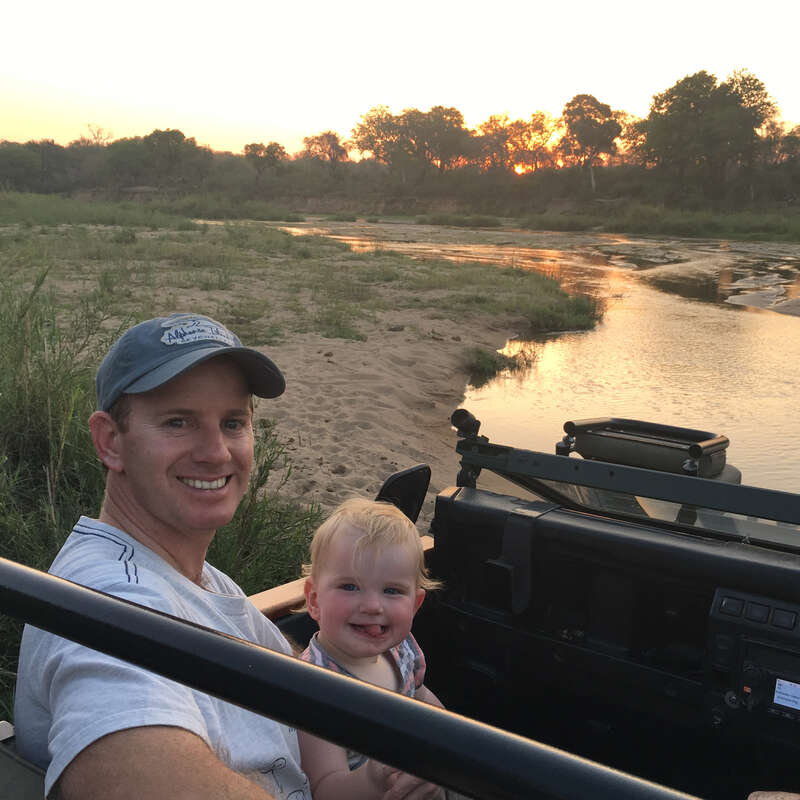About Chitabe Lediba
Chitabe Lediba is situated on an elevated island within the private Chitabe Reserve, a fairly dry area towards ...
... the south of Botswana's Okavango Delta. Largely surrounded by the Moremi Game Reserve, it is generally regarded as good for game year-round – and the camp's focus is solely on drives rather than water activities.
Chitabe Lediba is a smart, very comfortable camp in an area that has a great diversity of game. The guiding team is very professional and friendly, keen to get good sightings but also thoughtful about how our interaction may affect the animals' behaviour. While activities are limited to 4WD game drives in this dry camp, it lies within a concession that consistently delivers some fantastic game experiences.
Our view
Chitabe Lediba is a smart, very comfortable camp in an area that has a great diversity of game. The guiding team is very professional and friendly, keen to get good sightings but also thoughtful about how our interaction may affect the animals' behaviour. While activities are limited to 4WD game drives in this dry camp, it lies within a concession that consistently delivers some fantastic game experiences.
Accommodation
3 chalets; 2 family
Children
Best for 12+
Open
All year
Activities

4WD Safari

Birdwatching

Guided walking safari

Helicopter

Night drive

Private activities
Traveller reviews of Chitabe Lediba
87 real, un-edited reviews from Expert Africa's travellers.
Arrived 17 May 2024, 3 nights
"Chitabe Lediba review"
Overall rating: Excellent
Arrived 26 Oct 2023, 3 nights
"Chitabe Lediba review"
Overall rating: Excellent
Arrived 13 Aug 2023, 3 nights
"Chitabe Lediba review"
Overall rating: Excellent
Arrived 7 Aug 2022, 4 nights
"Chitabe Lediba review"
Overall rating: Excellent
Arrived 5 Aug 2022, 3 nights
"Chitabe Lediba review"
Overall rating: Excellent
Arrived 5 Aug 2022, 3 nights
"Chitabe Lediba review"
Overall rating: Excellent
Arrived 11 May 2022, 3 nights
"Chitabe Camp"
Overall rating: Excellent
Arrived 16 Sep 2021, 2 nights
"Excellent Game Viewing"
Overall rating: Excellent
Arrived 10 Aug 2021, 3 nights
"Chitabe Lediba review"
Overall rating: Excellent
Arrived 23 Jun 2021, 3 nights
"Chitabe Camp review"
Overall rating: Excellent
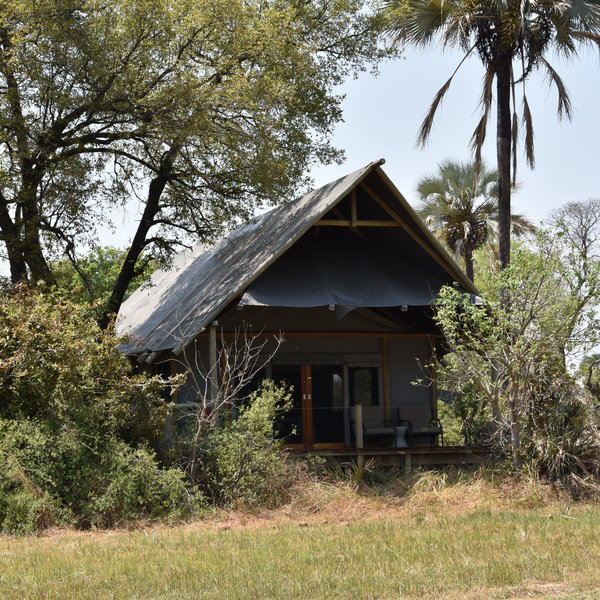
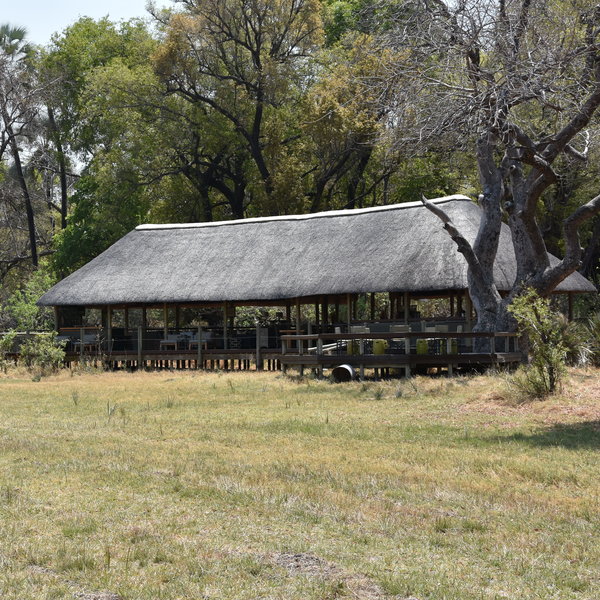
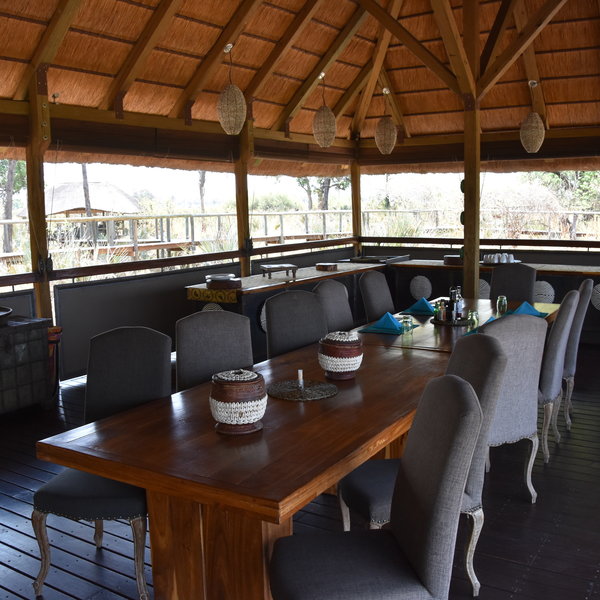
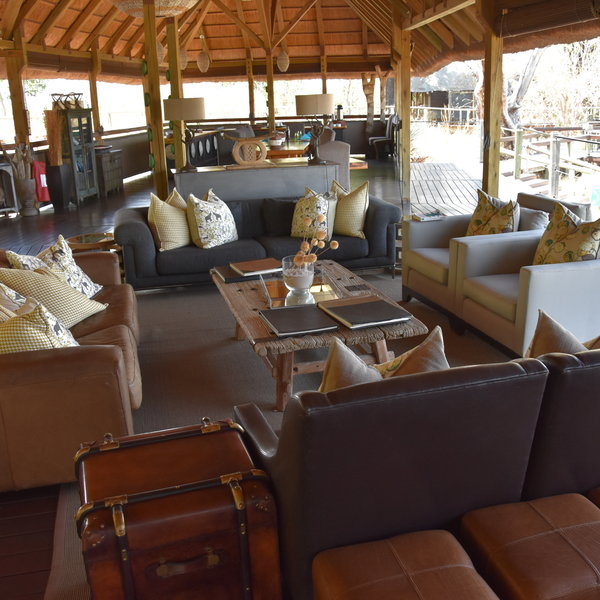
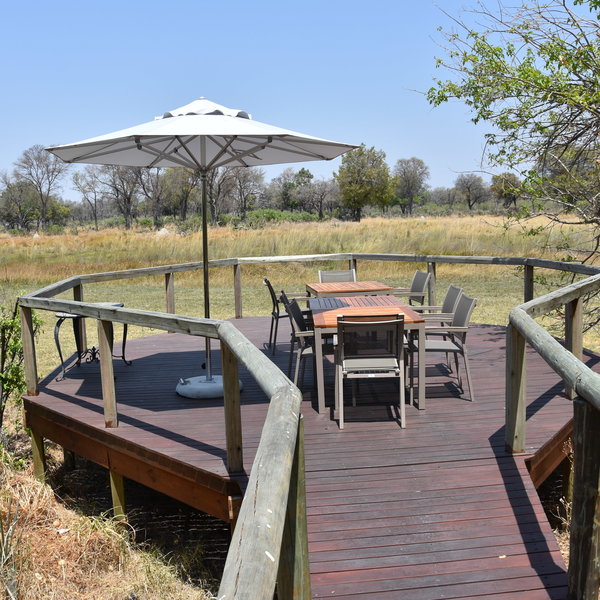
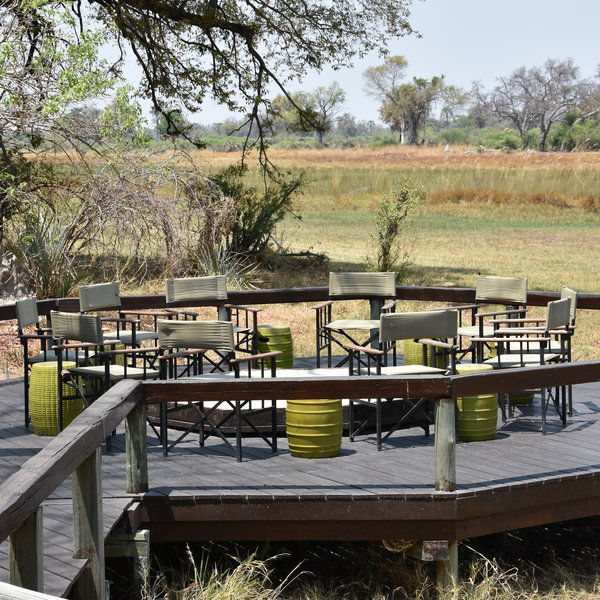
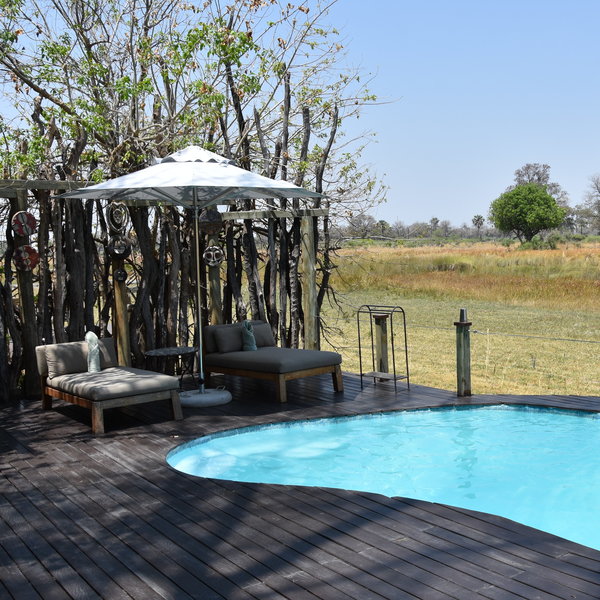
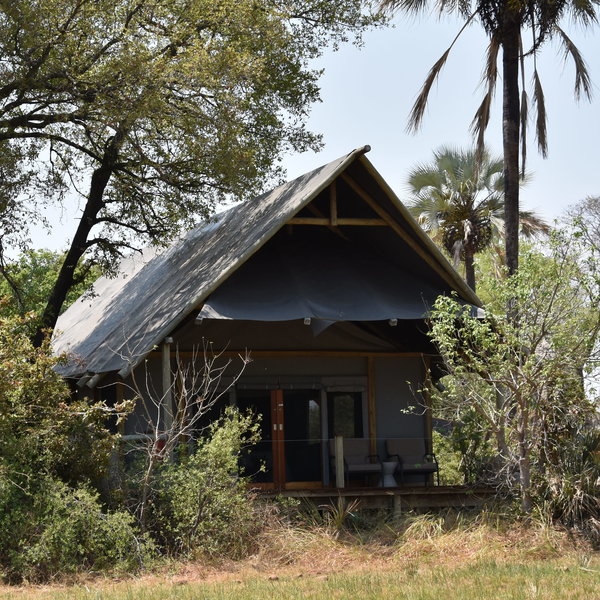
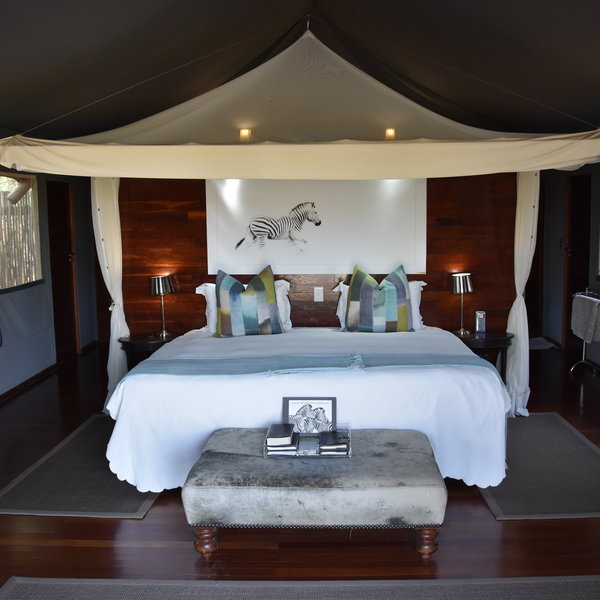
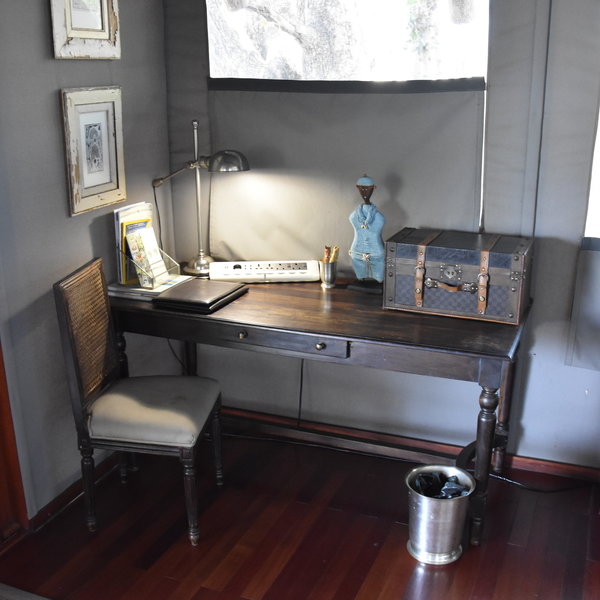
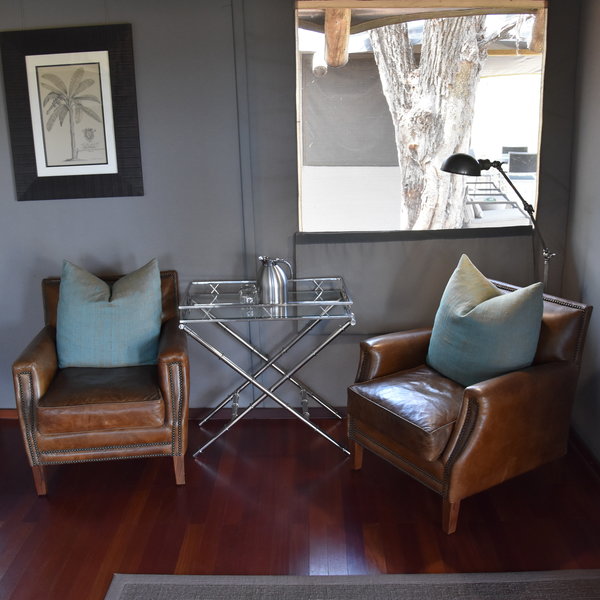
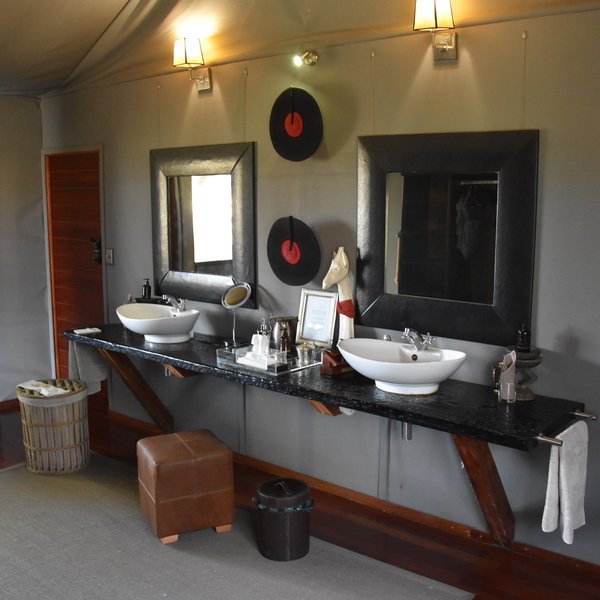
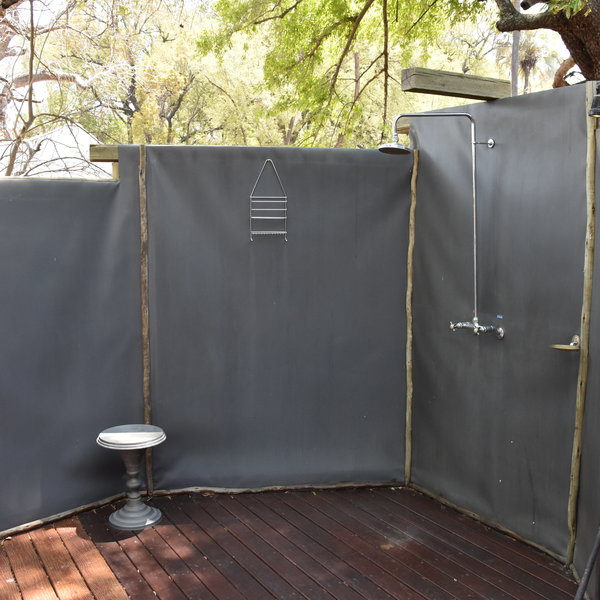
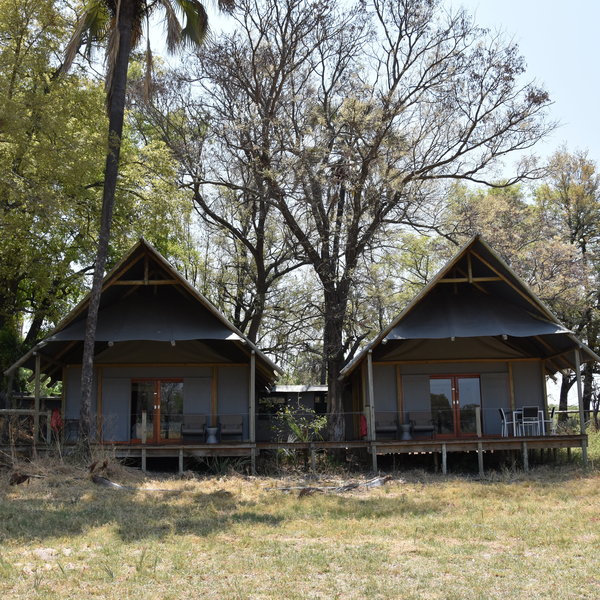
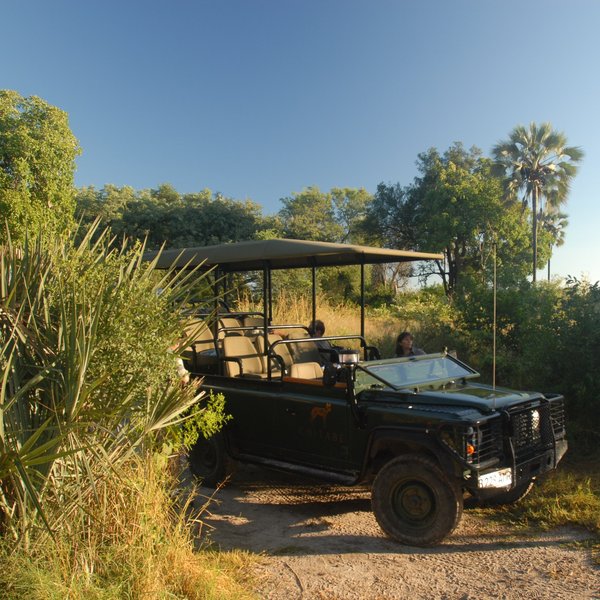
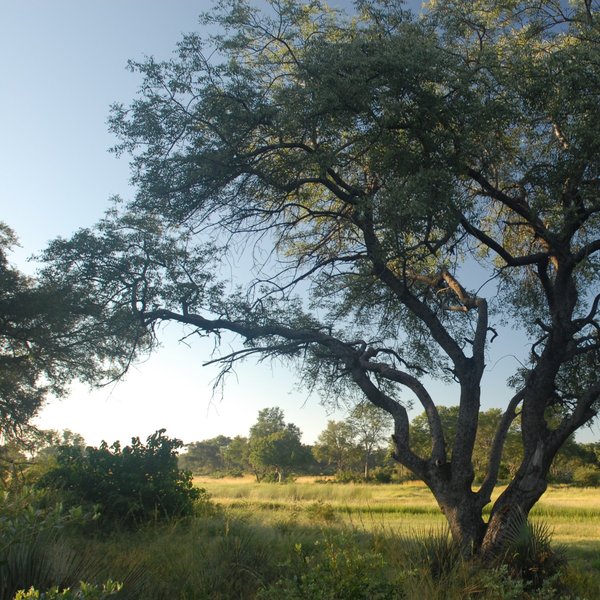
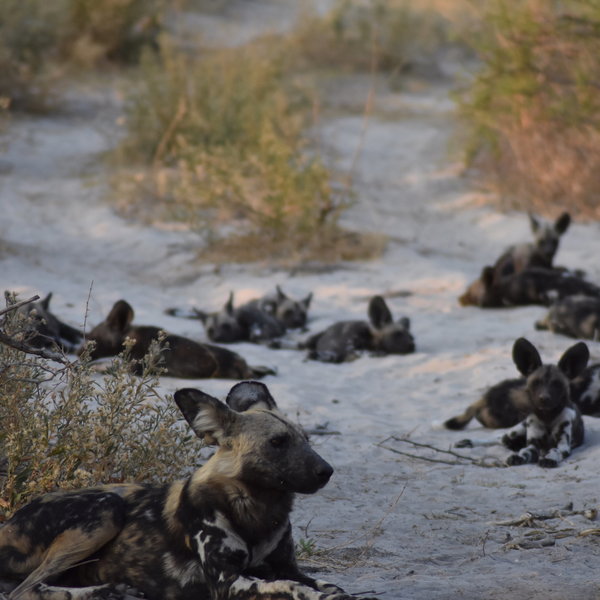
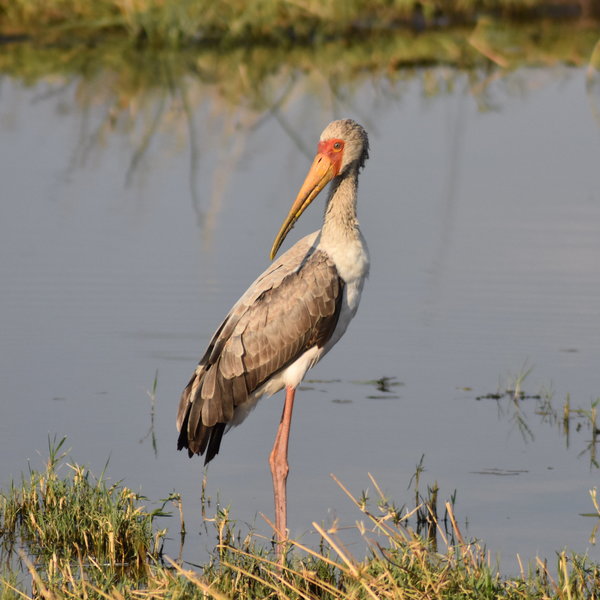
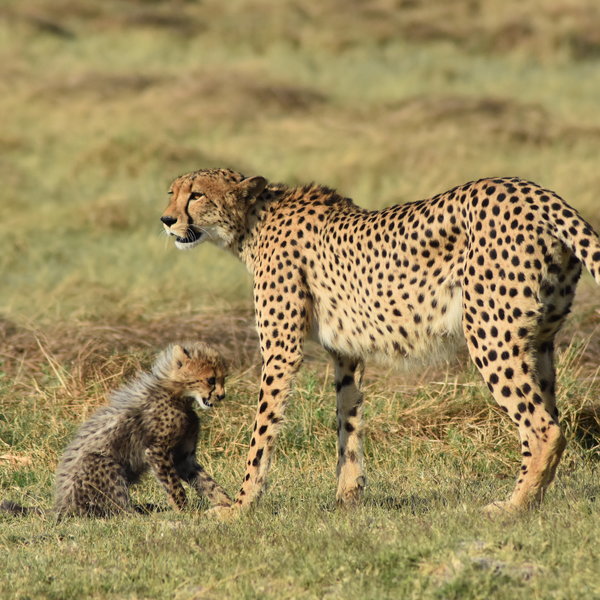
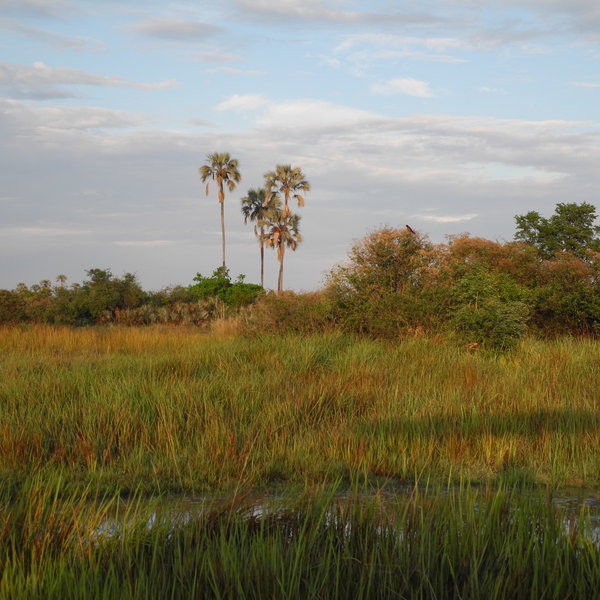
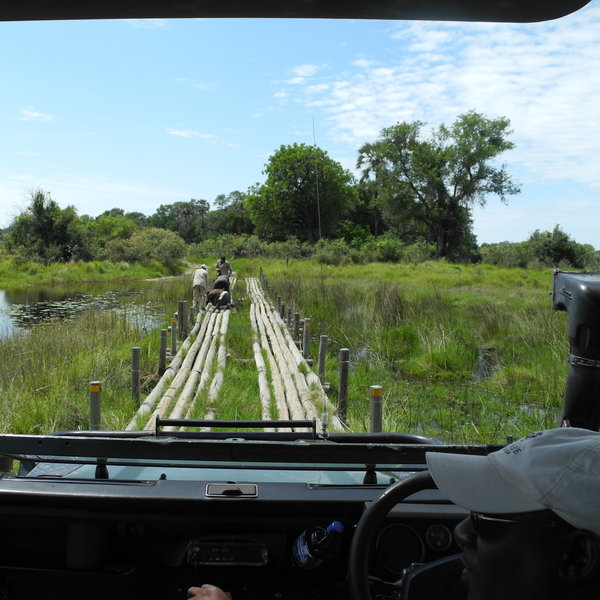
Expert Africa's gallery
When we travel we take lots of photos ourselves to give you a real and un-edited view of the safaris. See our 41 pictures of Chitabe Lediba to get the candid view.
View gallerySafaris visiting Chitabe Lediba
Just ideas, we'll always tailor-make a trip for you
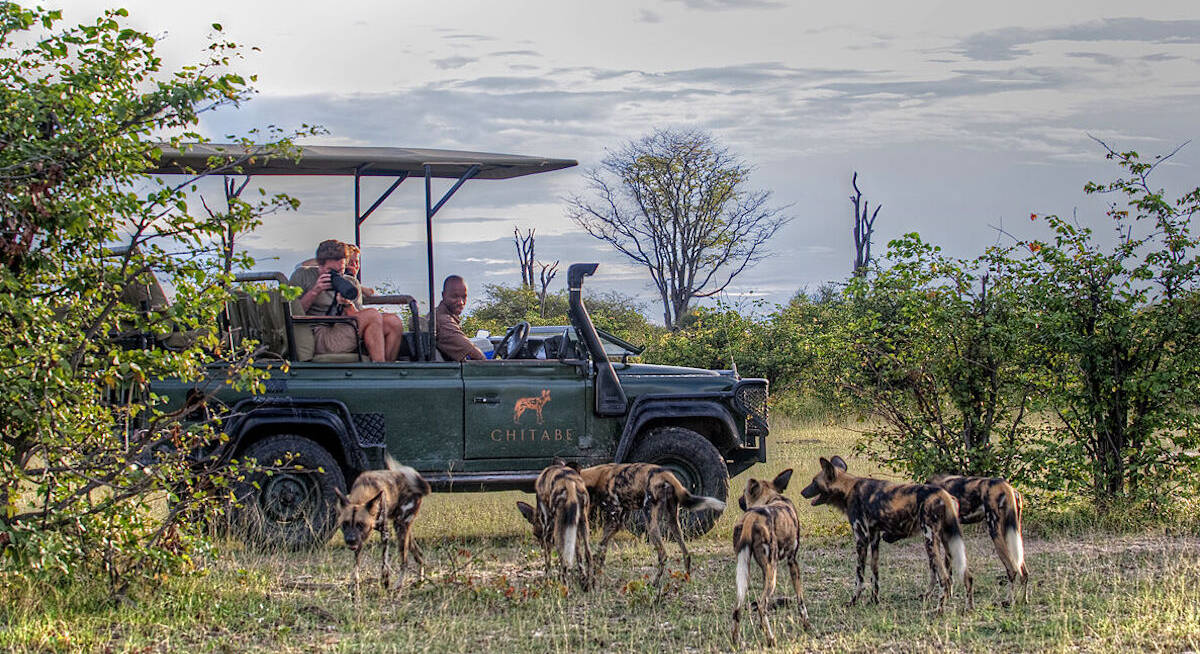

Bushbuck Safari
8 days • 3 locations • 1 country
MAUN AIRPORT TO MAUN AIRPORT
Discover three of Botswana’s best game-viewing regions with stays in the private Linyanti, Chitabe and Vumbura reserves. Intimate, smart camps offer a range of activities by which to discover these stunningly varied habitats.
Visiting Okavango Delta, Kwando-Linyanti
US$18,020 - US$31,740 per person
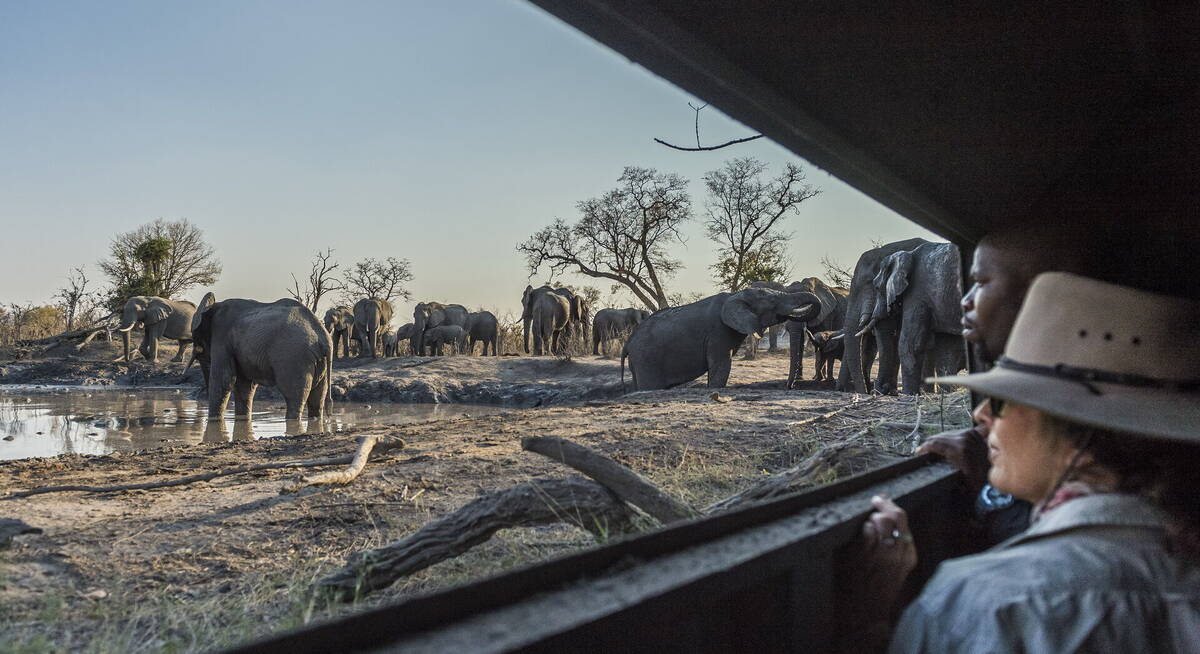
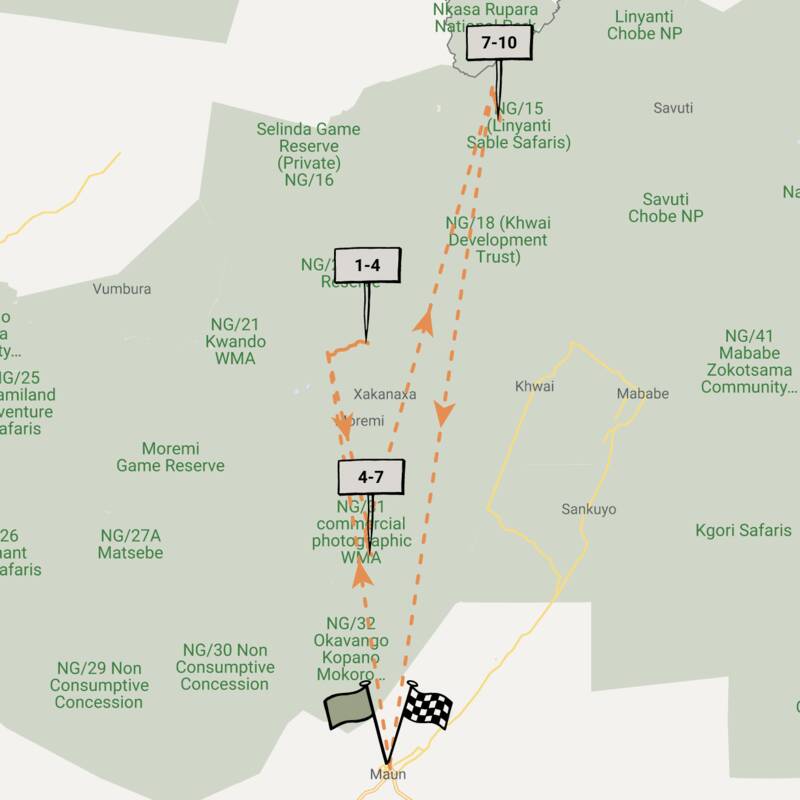
Large-spotted Genet Safari
9 days • 3 locations • 1 country
MAUN AIRPORT TO MAUN AIRPORT
A luxury safari exploring the Okavango Delta and Linyanti–Savuti, two of the best wildlife viewing areas in Botswana, staying at three top camps renowned for their guiding for a first-class experience.
Visiting Okavango Delta, Kwando-Linyanti
US$14,230 - US$23,640 per person
Chitabe Lediba: Our full report
Chitabe Lediba is situated on an elevated island within the private Chitabe Reserve, a fairly dry area towards ...
... the south of Botswana's Okavango Delta. Largely surrounded by the Moremi Game Reserve, it is generally regarded as good for game year-round – and the camp's focus is solely on drives rather than water activities.
In contrast with areas further north in the Delta, the Chitabe Reserve is largely mixed forest: an interesting mosaic of mopane and acacia woodlands. However as the reserve is bordered to the north and east by the Gomoti River and to the south-west by the Santantadibe River, you will also find riverine forests, lagoons and lush channels. Chitabe Lediba shares the Chitabe Reserve with its larger sibling, Chitabe Camp as well as &Beyond's Sandibe Okavango Safari Lodge.
Chitabe Lediba has just five secluded tented chalets, designed in much the same way as those at its sister camp. Set on a low deck and shaded by large trees, each has a veranda at the front kitted out with comfortable chairs, footstools and a table. From here, sliding double glass doors lead into the bedroom, with polished dark-wood floors and rattan rugs. The décor is smart and airy but not overdone. Comfortable beds (or, in the honeymoon chalet, a four-poster) sit under a mosquito net, and are flanked by bedside tables with reading lamps. A writing desk plays host to stationery, magazines and bottled water, and the adjacent strip of universal plugs is handy for charging batteries – though not suitable for hairdryers. Standing and ceiling fans help to keep the tent cool and the mosquitoes at bay, while meshed windows enable a cooling breeze to flow through.
A tall wooden headboard separates the bedroom from the bathroom, where two deep ceramic basins are set on a wooden counter beneath large framed mirrors. Behind the headboard is ample hanging and shelving space, with a digital safe, bathrobes and extra blankets. There's a separate flush toilet, and a canvas-walled shower, as well as a spacious outdoor shower, partially surrounded by canvas walls for privacy, but with views over the plains. Big fluffy towels, mosquito repellent and a wide selection of toiletries are provided.
Two of family chalets, sleeping up to four people, are made up of two en-suite bedrooms (one with an outside shower), sharing a balcony. In one of these chalets there’s an interleading hallway, well suited for families with younger children.
Chitabe Lediba's main area is accessed from the chalets by wooden walkways raised about a metre off the ground – low enough to keep you at one with nature; high enough to keep some of the creepy-crawlies away! It's a beautifully designed set up, with fabulous views across the floodplain. The open-plan layout runs from a help-yourself bar at one end, set beside cosy sofas in muted tones, to a long wooden dining table at the other, surrounded by smart, cream-covered chairs. A good little 'library' houses a selection of wildlife magazines and some interesting books, including Running Wild, a book about the wild dogs of northern Botswana with photographs by the owners of Chitabe and Chitabe Lediba, Dave and Helene Hamman.
Leading out from the dining area, a wooden deck with a firepit is surrounded by comfortable directors' chairs. Shaded by a large tree, this is a lovely spot to relax with uninterrupted views across the plains. From the other side, leading out from the bar, a wooden walkway leads to a toilet and a small swimming pool complete with sunloungers and more superb views.
Behind the main area, steps lead down to a boma (a natural space surrounded by a wooden fence), where traditional evening meals and barbecues are sometimes served. These occasions are great fun and the staff are genuinely keen to impart a little knowledge of their local history and culture. There is also a curio shop, which stocks a variety of safari clothing and local crafts.
It's the staff who make this camp though – unfailingly friendly and cheerful and always happy to chat about the camp and the surrounding wildlife. The guiding is usually superb and the guides conscious of getting the vehicle and the light in the right places for great shots!
Being a primarily 'dry' camp, activities at Chitabe Lediba concentrate on 4WD game drives both day and night. This area was the photography location for Running Wild, and our recent experiences have confirmed that there are some epic wild dog sightings to be had. More generally the game here is considered prolific, rewarding us with excellent sighting of leopard, lion, and cheetah over the years, as well as phenomenal numbers of elephant, zebra, giraffe and hippo. Although we only popped into Chitabe Lediba during our visit to the concession in September 2017, the game that we saw from Chitabe and in the concession as a whole was spectacular. That said, a previous visit in April 2016 was less fruitful, showing that game can never be guaranteed.
The birdlife in the area is pretty good, too, at its best between December and March. Raptors are especially common, with Gabar goshawks, western-banded snake eagles and martial eagles a few of the more sought-after sightings, and a good chance of seeing the endemic slaty egret and the endangered wattled crane near the waterways. We’ve been lucky enough to see tawny eagles, lilac-breasted rollers, various starlings, vultures, weavers, wattled cranes, ground hornbills, many duck species and spur-winged geese, to name a few.
Activities
4WD Safari
Birdwatching
Guided walking safari
Helicopter
Night drive
Private activities
Families & children
- Attitude towards children
- Children over the age of 12 are welcome at Chitabe Lediba. The camp may accept aged 6–12 if a private vehicle is booked but this must be requested in advance. Children of six years and under are not accepted, unless the entire camp is booked on a private basis; ask us for details.
- Property’s age restrictions
- Minimum age six years
- Special activities & services
- Chitabe Lediba can provide families and children with a ‘Bush Buddy’ who is trained in educating and entertaining children while on safari. This complimentary service must be booked in advance.
- Equipment
- The camp has two family chalets, of which one has interconnected rooms, making it an excellent option for families with young children.
The camp can arrange separate mealtimes for families with younger children. Childminding can be arranged with staff, though note that they may not be specifically qualified in childcare. - Generally recommended for children
- We would recommend Chitabe Lediba Camp for children over the age of 12 who have a genuine interest in wildlife.
- Notes
- Dangerous wildlife wanders freely around this unfenced camp and the walkways are raised about a metre off the ground, so children should be kept under supervision by an adult at all times.
Food & drink
- Usual board basis
- Full Board & Activities
- Food quality
- Meals at Chitabe Lediba are served buffet-style, and guests dine together.
Over the years we have found the food to be exceptional – delicious and fresh. We have not dined in camp on our last few visits, but when we last ate here, in November 2013, we had mixed feelings about some of the dishes at dinner, as reflected below. For a more recent description of what to expect, take a look at the equivalent section of the Chitabe Camp write-up. We understand that the two camps have the same menu.
The camp is able to cater for most dietary requirements – vegetarian, vegan, gluten free etc – as long as they are informed in advance.
An early-morning breakfast of cereal, fruit, muffins, tea and coffee is served in the dining area before your game drive.
For brunch, after the morning game drive, we were offered a cooked breakfast along with an assortment of other dishes that included pork cutlets, vegetarian linguine, various salads and bread.
Afternoon tea is usually accompanied by both savoury and sweet snacks, which on our last visit did not disappoint! A selection of salmon and artichoke canapés was served alongside a delicious coconut cake – together with iced or hot tea and fresh juice.
For dinner our starter consisted of a rather tasteless aubergine and tomato stack. The main meal of coq au vin was very good, and accompanied by mashed potato, butternut squash and garlic beans. For dessert, though, a promising-sounding orange and amarula mousse unfortunately didn't live up to expectations. - Dining style
- Group Meals
- Dining locations
- Indoor and Outdoor Dining
- Further dining info, including room service
- No - this is a safari camp!
- Drinks included
- Bottled water, soft drinks, local beers and spirits, and a limited selection of South African red and white wines are included. Champagne and imported wines and spirits will cost extra and may need to be requested in advance.
Guests are usually given a water bottle on arrival, which they are encouraged to top up from the supply of filtered water in the main area from the camp’s reverse osmosis machine. Each room is also provided with glasses and a flask of filtered drinking water.
Our travellers’ wildlife sightings from Chitabe Lediba
Since mid-2018, many of our travellers who stayed at Chitabe Lediba have kindly recorded their wildlife sightings and shared them with us. The results are below. Click an animal to see more, and here to see more on our methodology.

100% success

100% success

100% success

100% success

93% success

93% success

93% success

92% success

92% success

86% success

71% success

15% success

15% success

8% success

8% success

0% success

0% success

0% success
Getting there
- Location
- Okavango Delta Safari Reserves, Botswana
- Ideal length of stay
- We’d usually recommend three nights at Chitabe Lediba; four would be fine if you’re happy to focus solely on game drives, but two is usually a little too short.
- Directions
- The flight from Maun to Chitabe airstrip takes 20 minutes in a small plane, then it's about a half-hour game drive to camp.
- Accessible by
- Fly-and-Transfer
Special interests
- Family safaris
- The family chalets at Chitabe Lediba are two fully functioning standard chalets with their own ensuite bathrooms joined by a short corridor. This coupled with an informal atmosphere make the camp a fantastic option for a family safari in Botswana.
- See ideas for Family safaris in Botswana
- Birdwatching safaris
- Approximately 345 species have been recorded in the Chitabe concession, comprising both resident and migratory birds. Raptors are abundant and thrive here. Of particular note on Chitabe are breeding wattled crane and slaty egret.
- See ideas for Birdwatching safaris in Botswana
- Wildlife safaris
- The Chitabe area is renowned for its wild dog population, which has formed the subject of a book by the camp’s owners. Also worth noting are regular sightings of lion, leopard and even the odd cheetah, along with tsessebe, blue wildebeest, giraffe, zebra, reedbuck and steenbok.
- See ideas for Wildlife safaris in Botswana
Communications
- Power supply notes
- Each tented chalet has a power point where guests can charge their batteries, and adaptors are available in camp. Extensions for CPAP machines can be provided on request.
- Communications
- Chitabe Lediba has a CB radio link in case of emergencies, and Wi-Fi in the rooms (not the main area). There is no cellphone reception.
- TV & radio
- There is no television or radio
- Water supply
- Borehole
- Water supply notes
- All the tented chalets have plumbed hot and cold running water for showers, and flushing toilets.
Health & safety
- Malarial protection recommended
- Yes
- Medical care
- When we last visited, all the camp managers and guides were first-aid trained and various medications were kept in the camp. Wilderness Safaris also have an on-call nurse who can be contacted via radio. In an emergency, guests can be flown out either via helicopter or medical rescue plane during daylight hours.
- Dangerous animals
- High Risk
- Security measures
- Because of the Okavango Delta's large population of dangerous game, and the fact that Chitabe Lediba Camp is unfenced, guests are escorted from/to their chalets after dark. Alarm sirens or whistles are provided in the rooms to attract attention in case of emergency.
- Fire safety
- There are fire extinguishers outside all the chalets as well as in the dining and kitchen areas.
Useful info
- Disabled access
- Not Possible
- Laundry facilities
- A full laundry service is included, with a netting bag provided for smalls. Weather permitting, laundry is collected in the morning and brought back in the evening.
- Money
- There are safes in all the tented chalets, and pouches locked with numerical tags are provided. No exchange facilities are offered.
- Accepted payment on location
- Mastercard and Visa credit cards are accepted; Diners Club and Amex are not. Credit-card transactions attract no commission. Cash payments may be made in US dollars, GB pounds, South African rand, euros and Botswana pula.
Plan and book your trip with Expert Africa
All of our trips are tailor-made, so we'll always adapt them to suit you. Talk to an Expert and let us plan and arrange your perfect trip.

Talk to an Expert
Call or email us now! We’ll match you with the Specialist in our team who is best suited to help you. Then together we can start planning your trip.

Set up your itinerary
Based on our experience and your ideas, your specialist will create a detailed, costed itinerary. We’ll refine it together, until we have a trip that you’re perfectly happy with.

Prepare for your trip
The same Specialist will make the seamless arrangements for your trip, send you detailed travel documents, and be available to answer any questions before you depart.

Travel with peace of mind
After you set off, you’ll be cared for by our partners in Africa, most of whom have worked with Expert Africa for decades. And if you ever need us urgently, we’re available 24/7.

When you return
We love to learn about your trip, and so will always be grateful if you’ve the time to give feedback to your Specialist when you return.
Chitabe Lediba's location
Look closer at the environment and surroundings of Chitabe Lediba.
Excursions from Chitabe Lediba
Optional extra day-trips and excursions possible whilst you're staying at Chitabe Lediba. Talk to us: these are usually best arranged before you go.
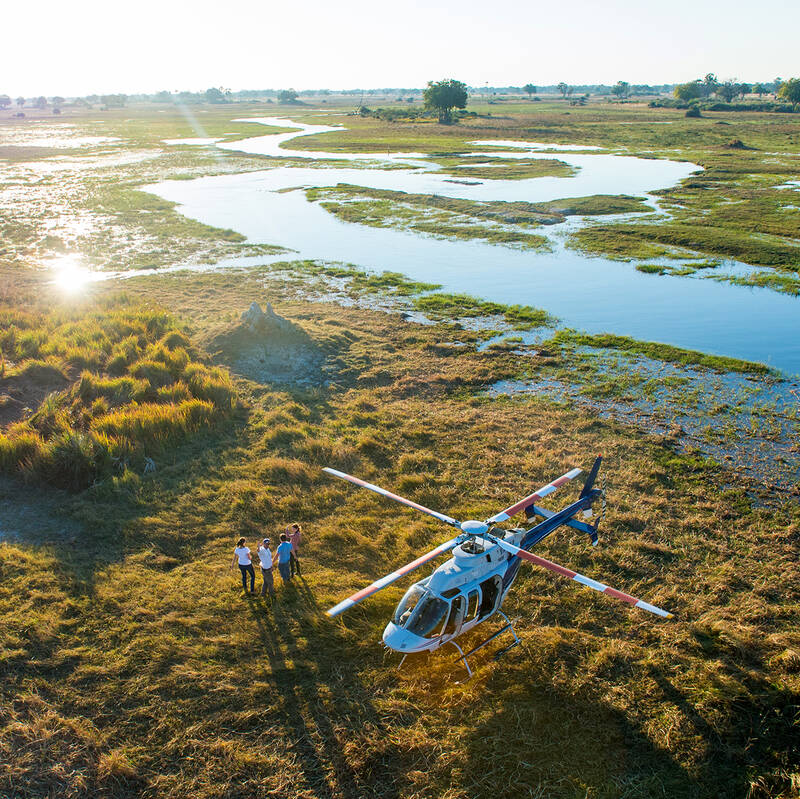
Helicopter Flight - Botswana
Various: from 30 minutes to half a day.
Low-flying, agile and offering superb views, helicopters are an ideal way to move around the Okavango Delta.You can use them instead of fixed-wing inter-lodge transfers or as an addition to other wildlife watching activities, and of course, helicopters can hover to allow that perfect pic, whereas fixed-wings can’t.
More about Helicopter FlightOther lodges in Okavango Delta Safari Reserves
Alternative places to stay in this same area.
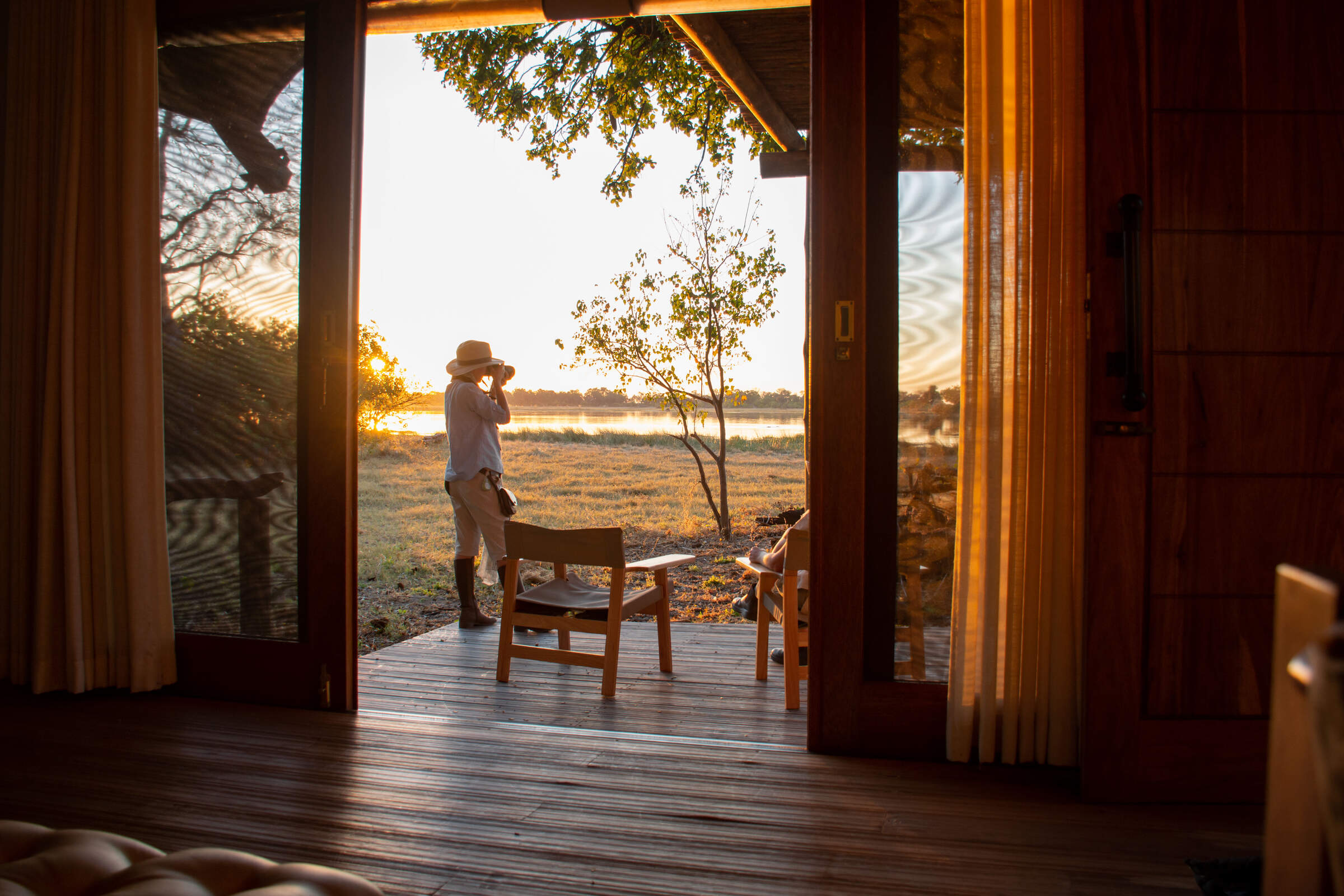
Kwara Camp
Kwara Camp's private reserve boasts land and water activities year-round, with excellent game-viewing opportunities and access to permanent channels of the north-east Okavango Delta.
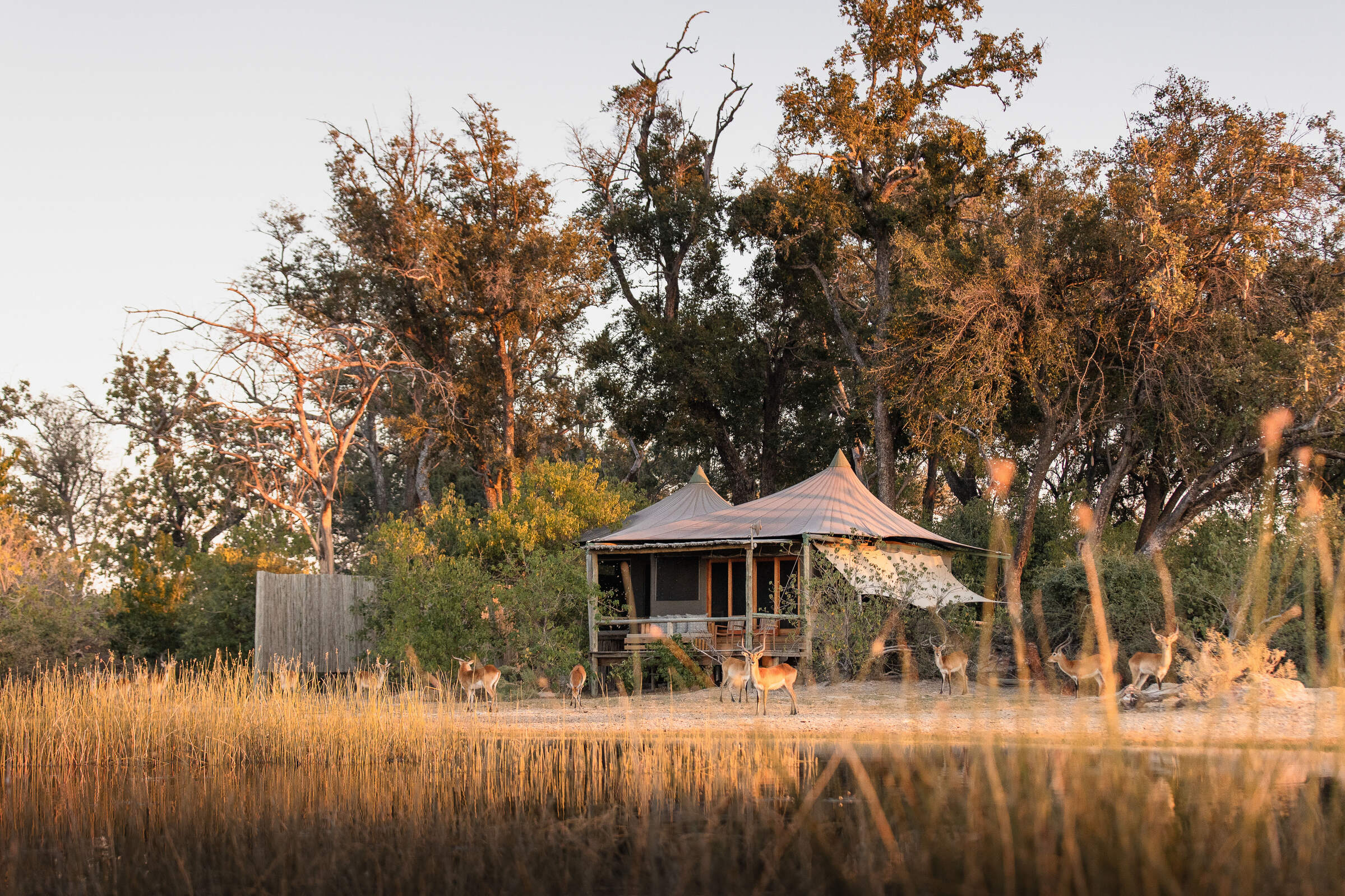
Little Vumbura
On a secluded island within a private reserve, Little Vumbura combines superb game viewing with a broad diversity of habitats in a truly picturesque setting.
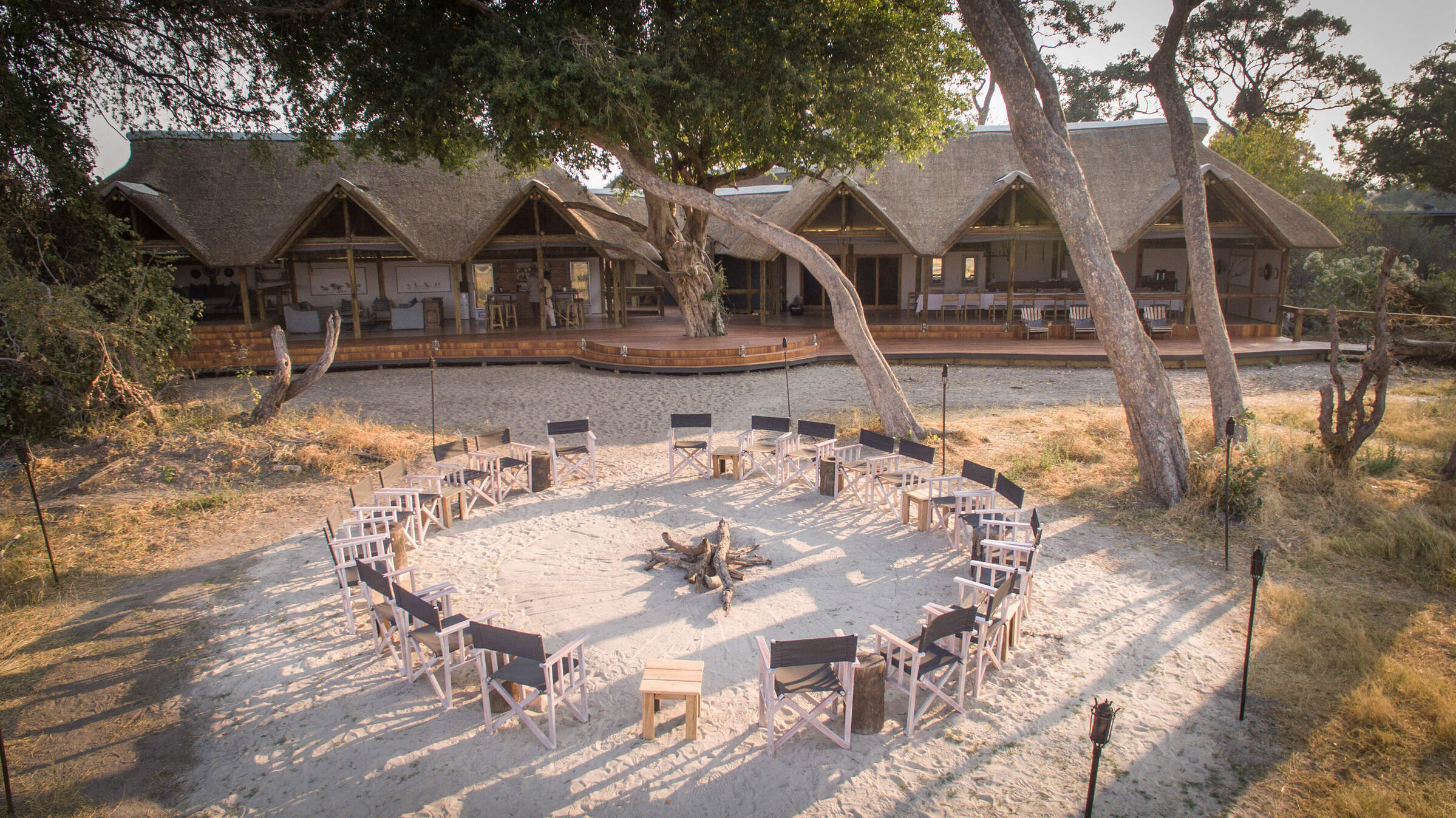
Splash Camp
Set in the Kwara Reserve, offering superb wildlife viewing year-round, Splash offers both land and water activities led by guides with a particular knack for tracking big game.
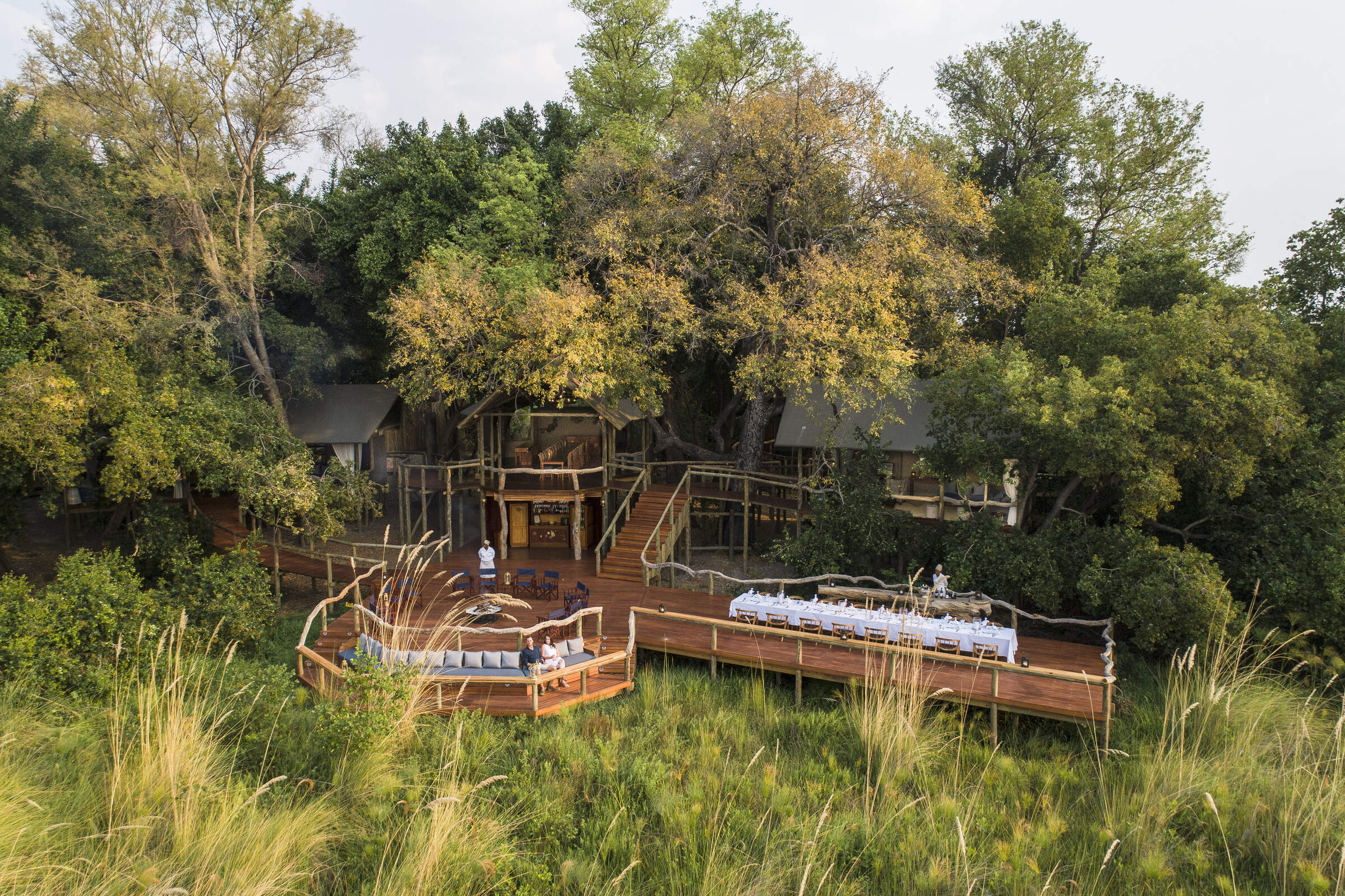
Shinde Camp
With experienced staff and a wealth of activities, Shinde offers a traditional safari in an exceptionally varied and wildlife-rich environment.
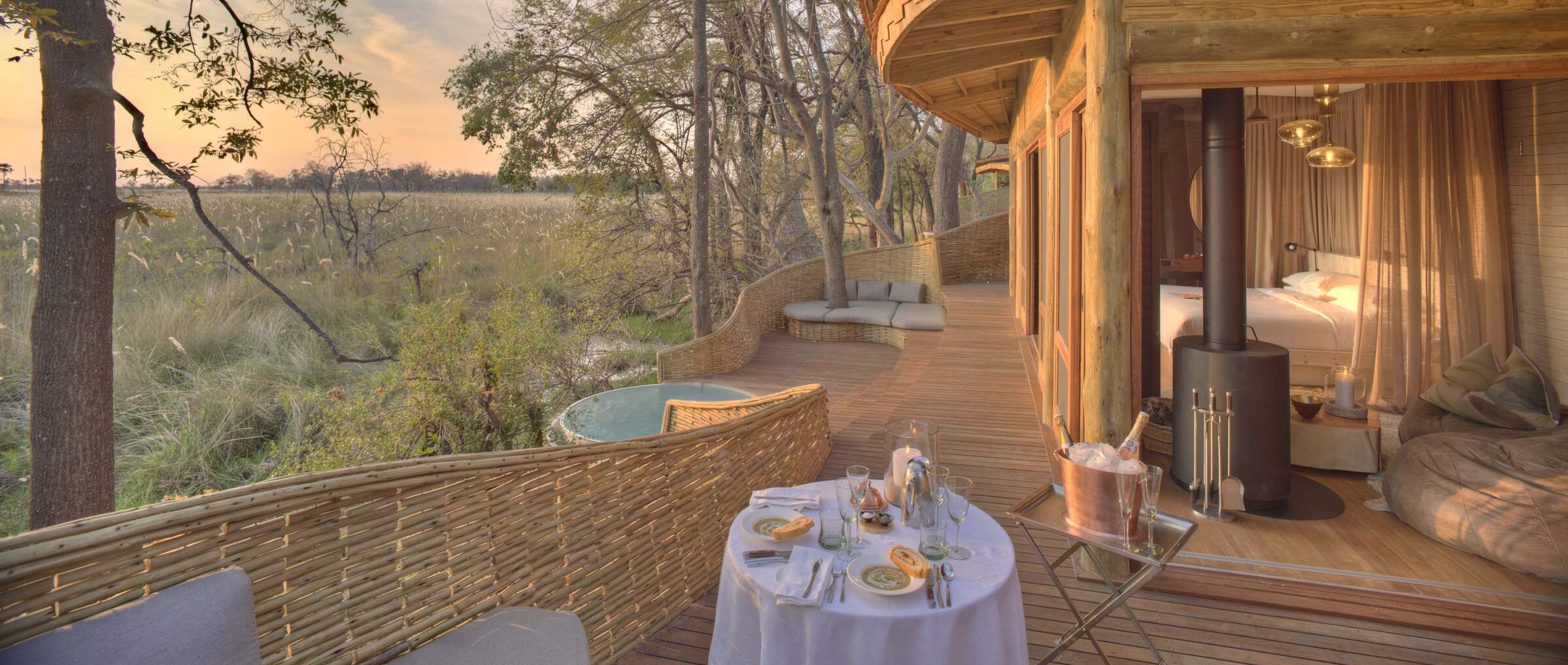
Sandibe Safari Lodge
The luxurious Sandibe Okavango Safari Lodge lies in a private concession in the heart of the Okavango Delta, beside Moremi Game Reserve, with superb big-game viewing.
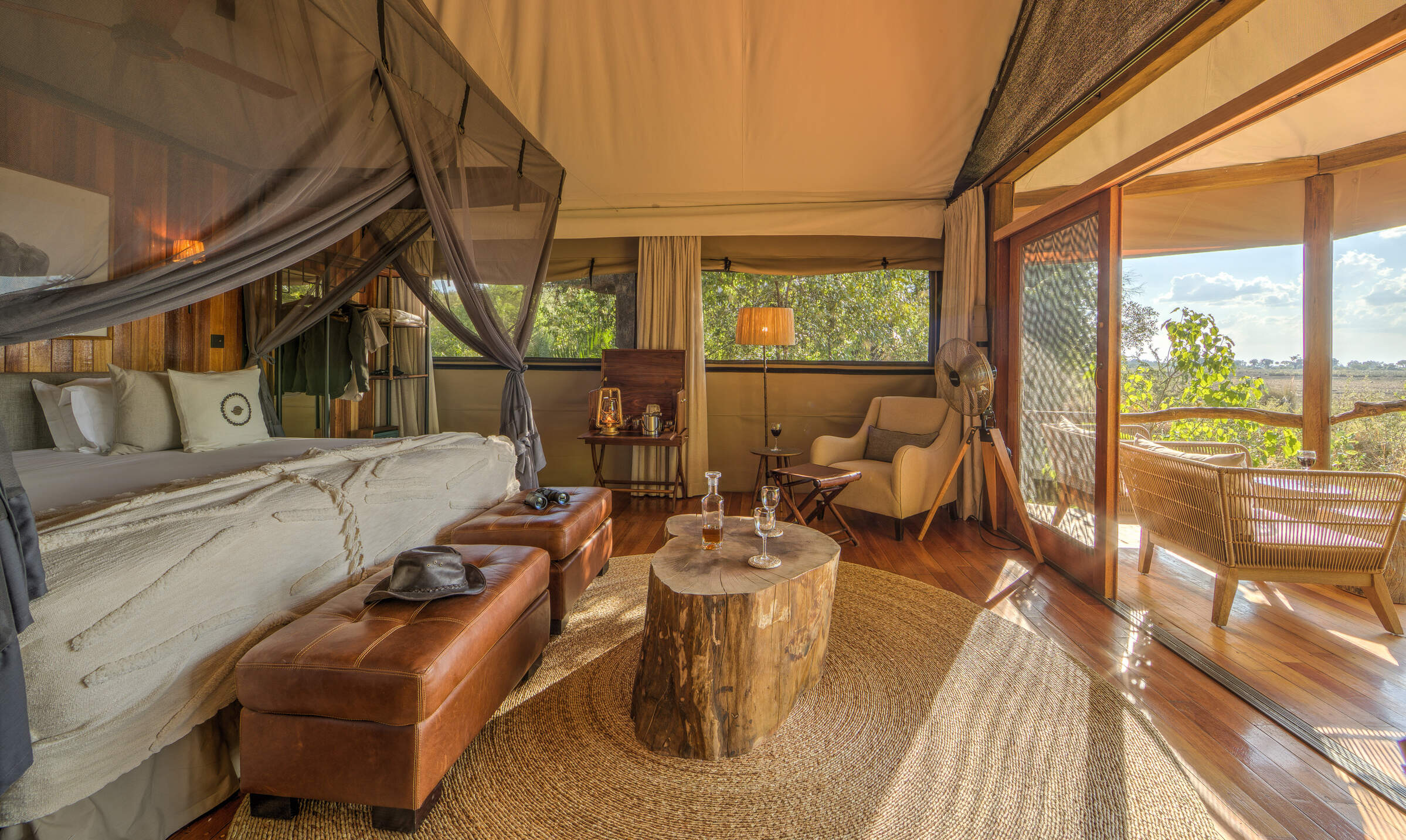
Kanana
In a beautiful part of the Delta, Kanana focuses on fantastic water activities and birding – including exclusive access to an impressive heronry.
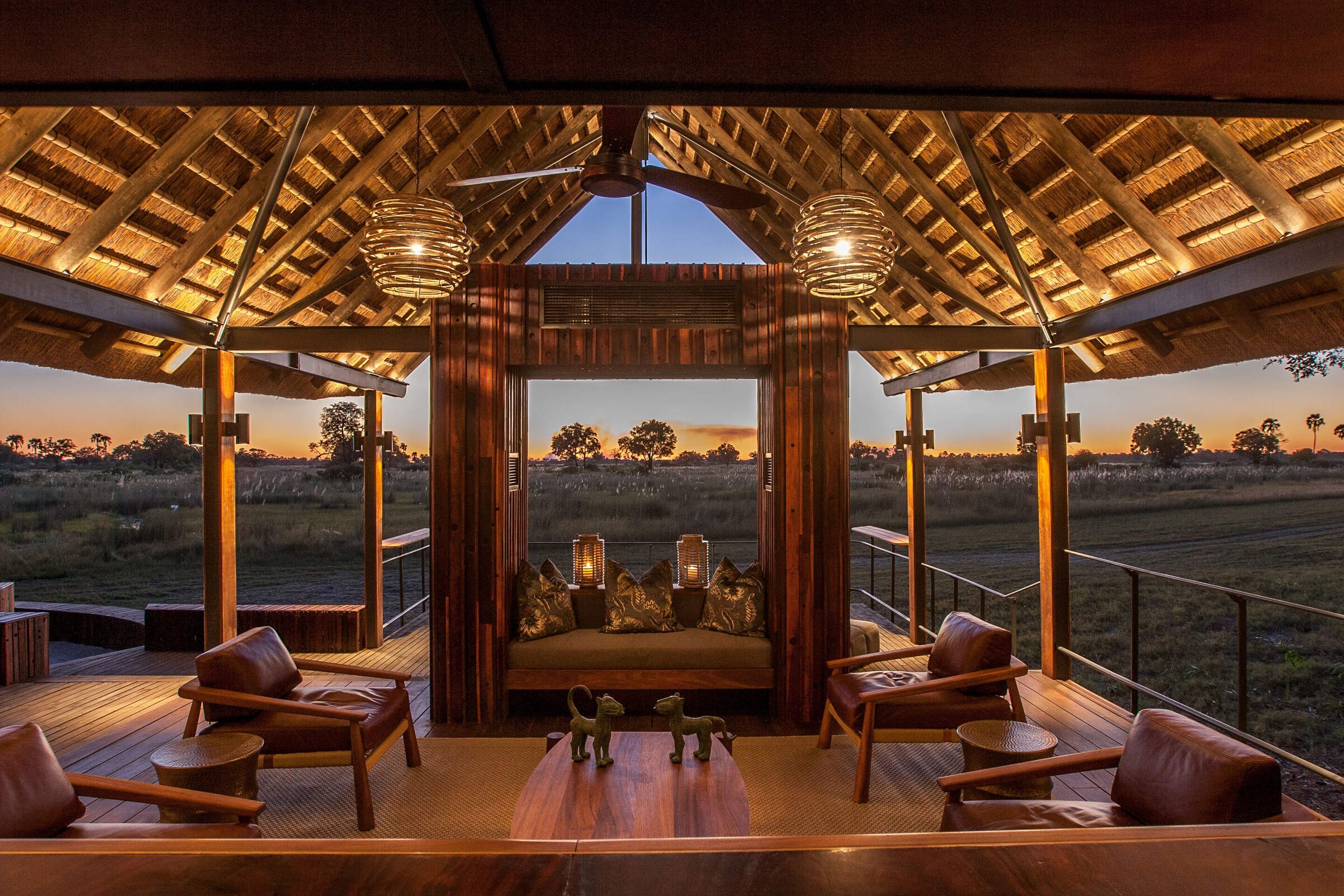
Chitabe Camp
In the southern Okavango Delta, the excellent Chitabe Camp concentrates on dry-land safaris in an area that we've found particularly good for wild dog sightings.
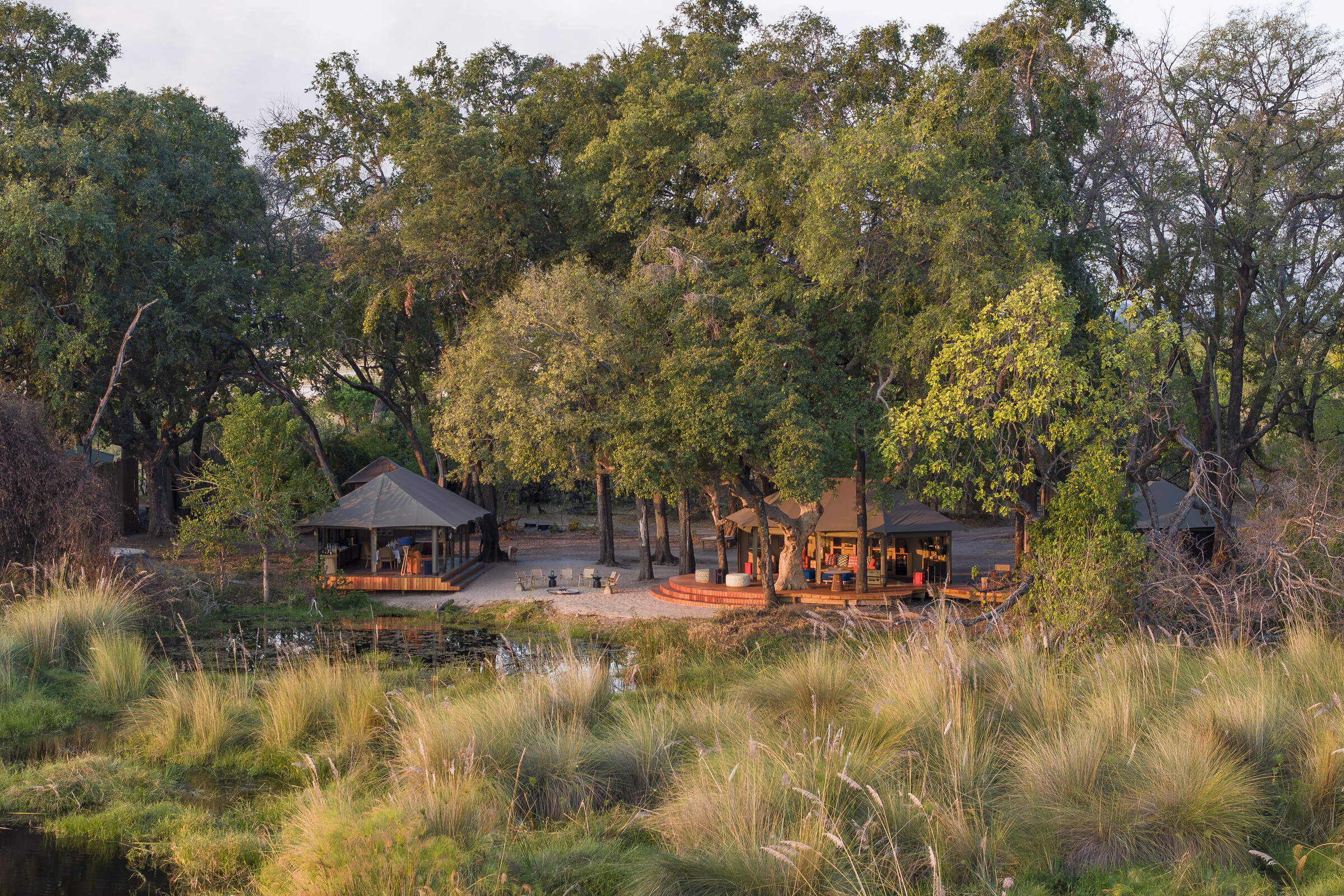
Shinde Footsteps
Small and simple, but comfortable, Shinde Footsteps focuses on walking safaris as well as game drives; it also runs a special children's programme so is particularly suitable for families.
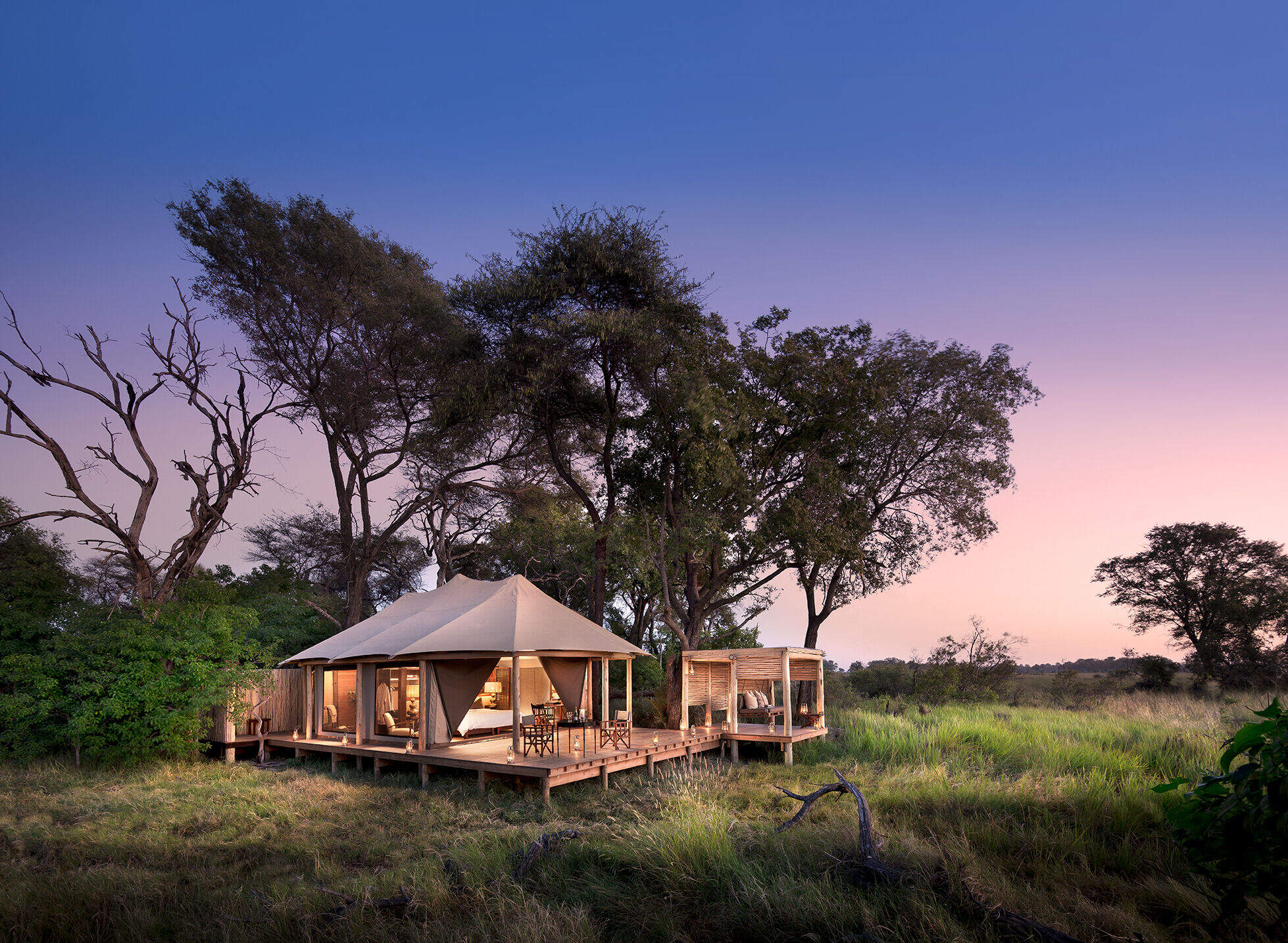
Nxabega Tented Camp
Nxabega offers a selection of both land- and water-based activities, plus very good guiding, food and service, but game viewing can be somewhat erratic.
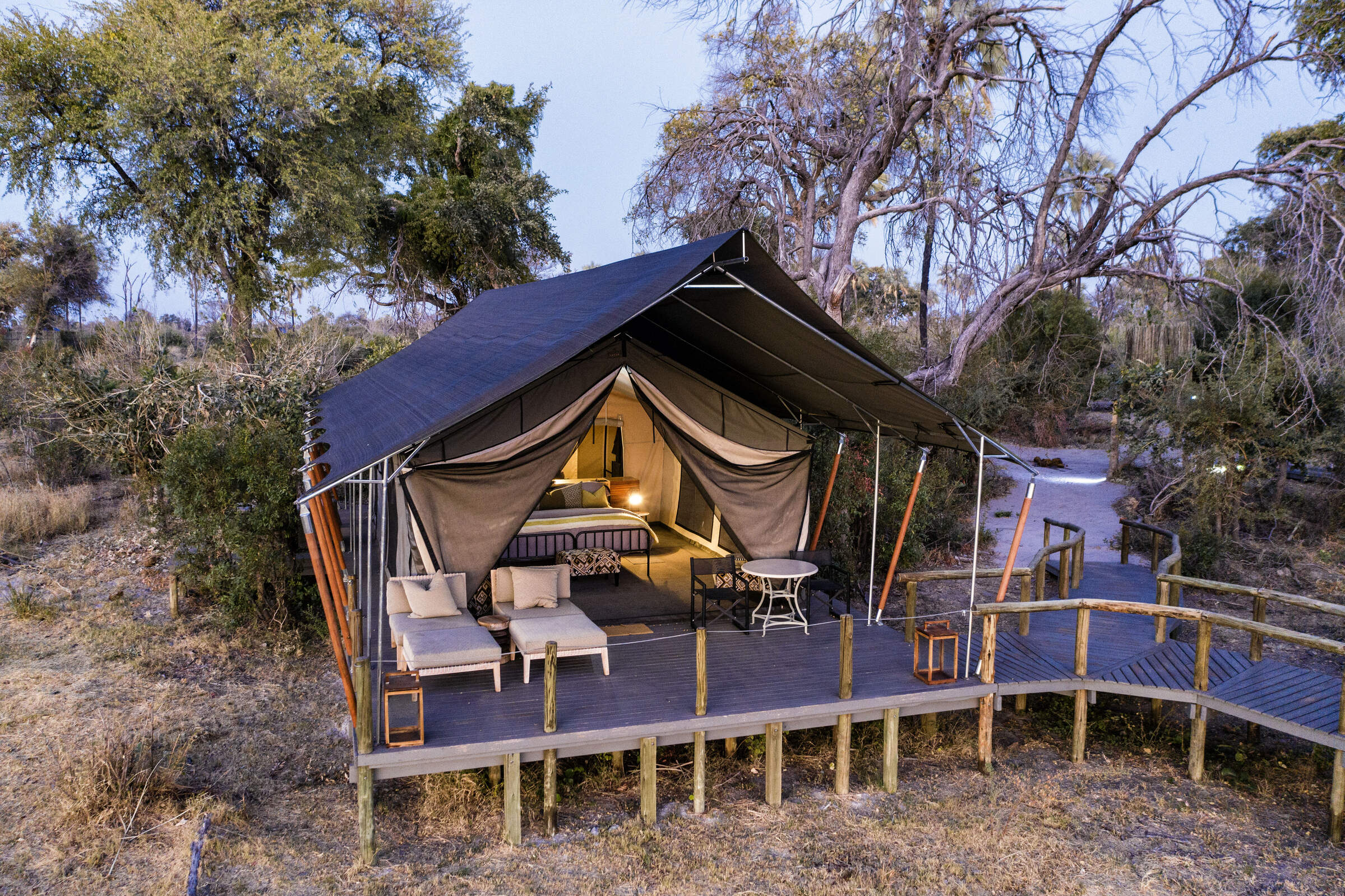
Gomoti Plains
Overlooking a tributary of the Gomoti River, Gomoti Plains Camp is a classically designed camp with very comfortable tents in a good game-viewing area.
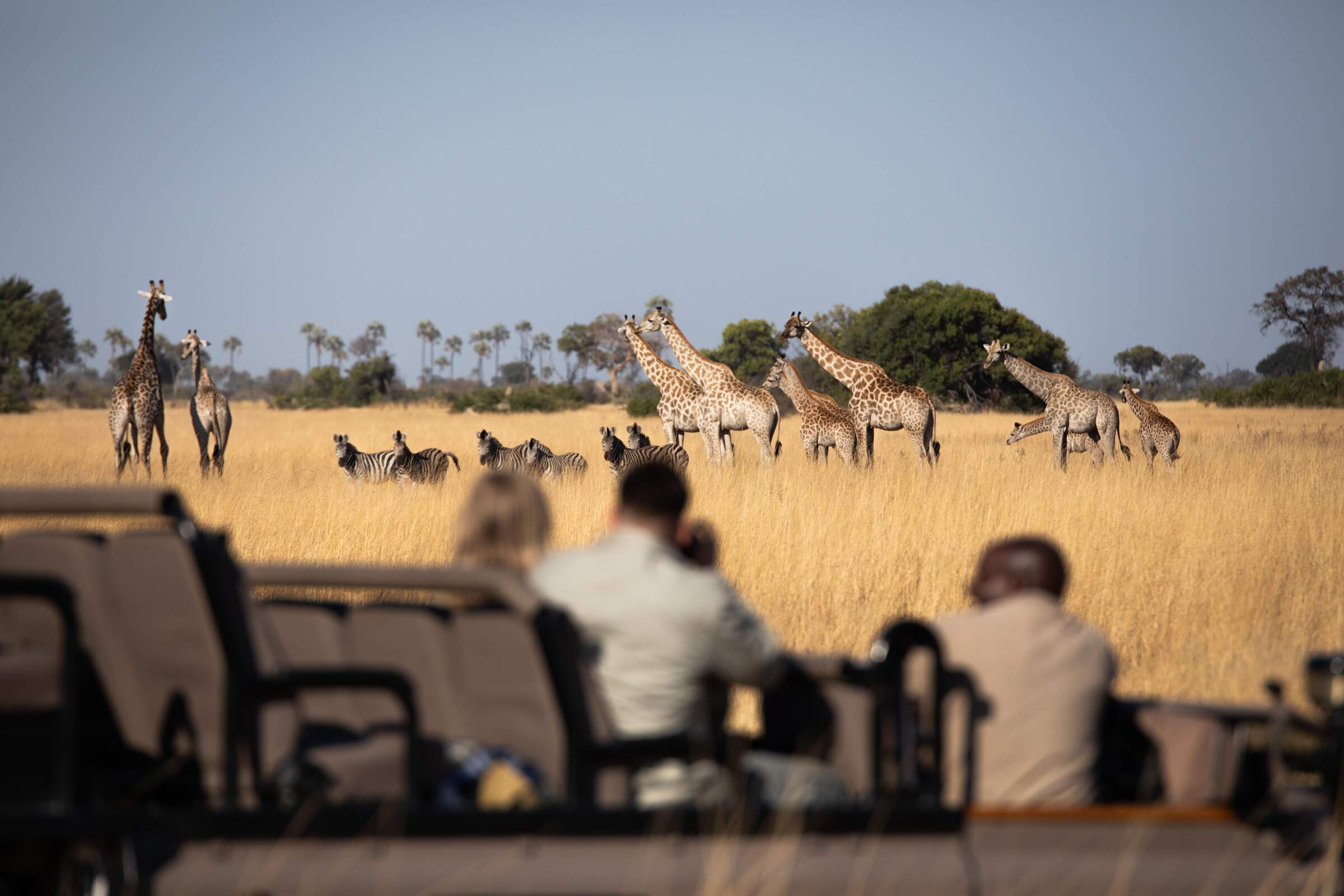
Tubu Tree Camp
A traditional tented camp with a distinctive tree-house feel, Tubu Tree offers some of the best game viewing in the Jao Reserve.
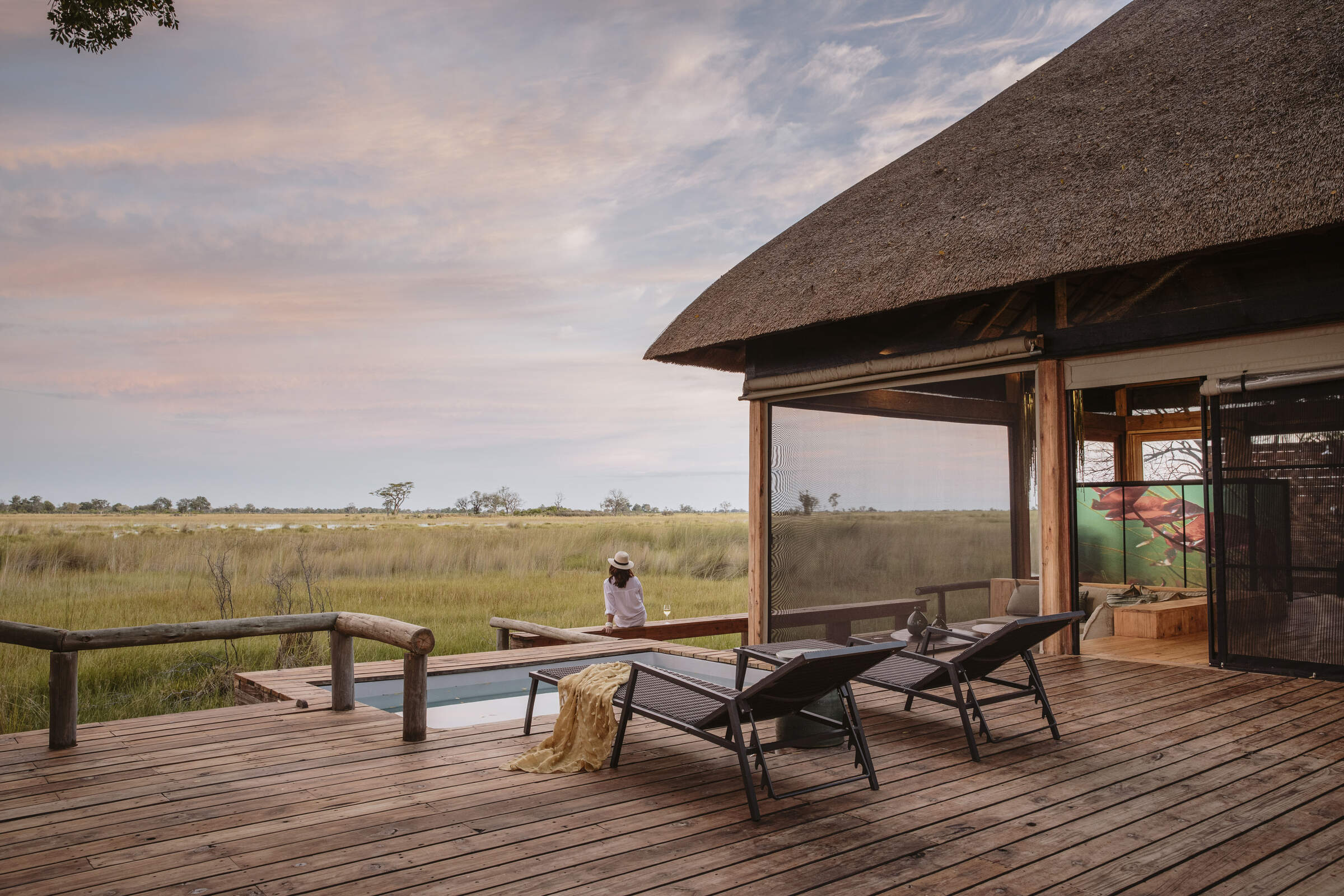
Vumbura Plains
Indulgently stylish and luxurious, Vumbura Plains offers superb game viewing and birding on an exceptionally varied private reserve.
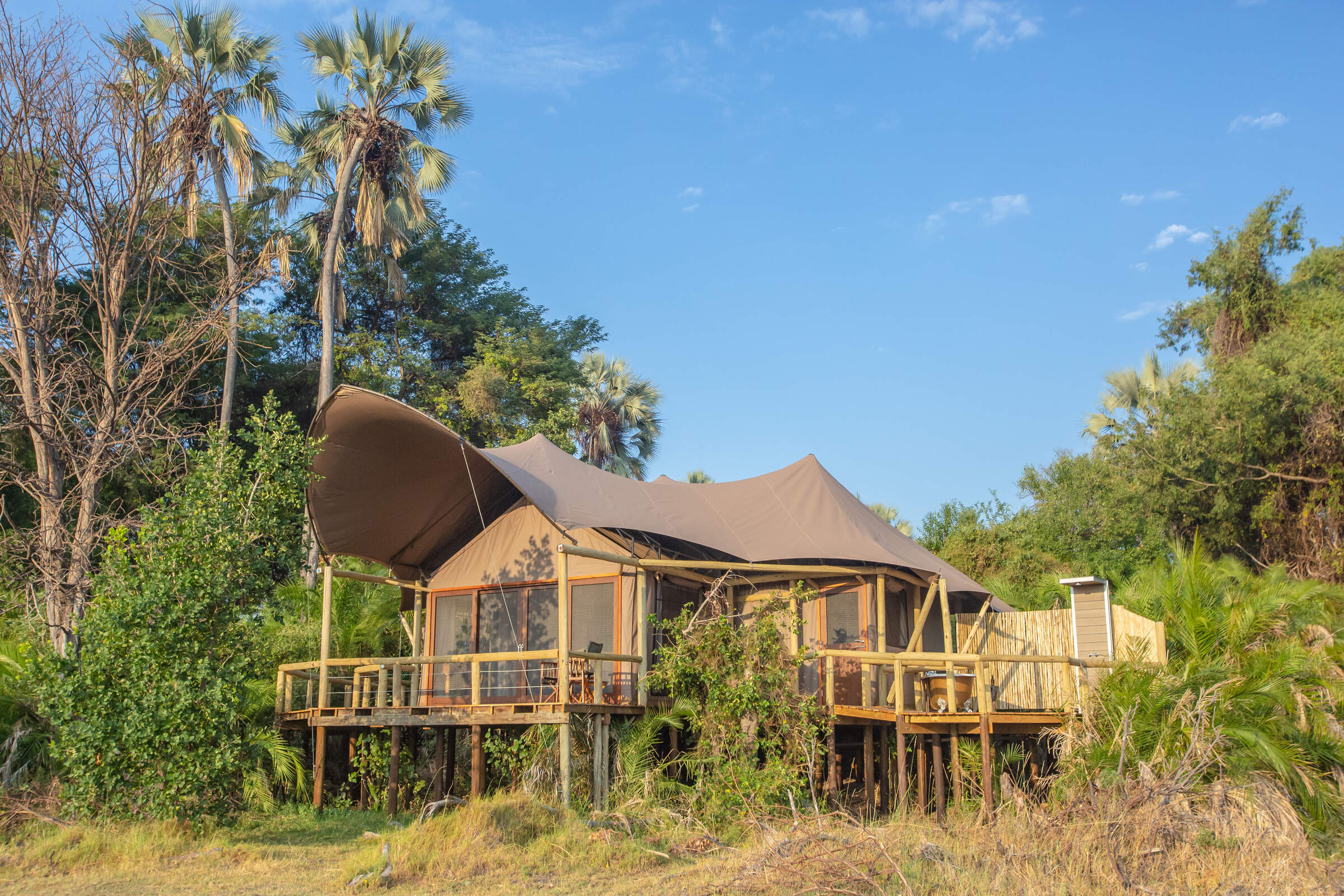
Jacana Camp
Jacana Camp is a small safari camp with an informal island feel; it is ideal for water-based activities in the Delta and offers excellent birdwatching.
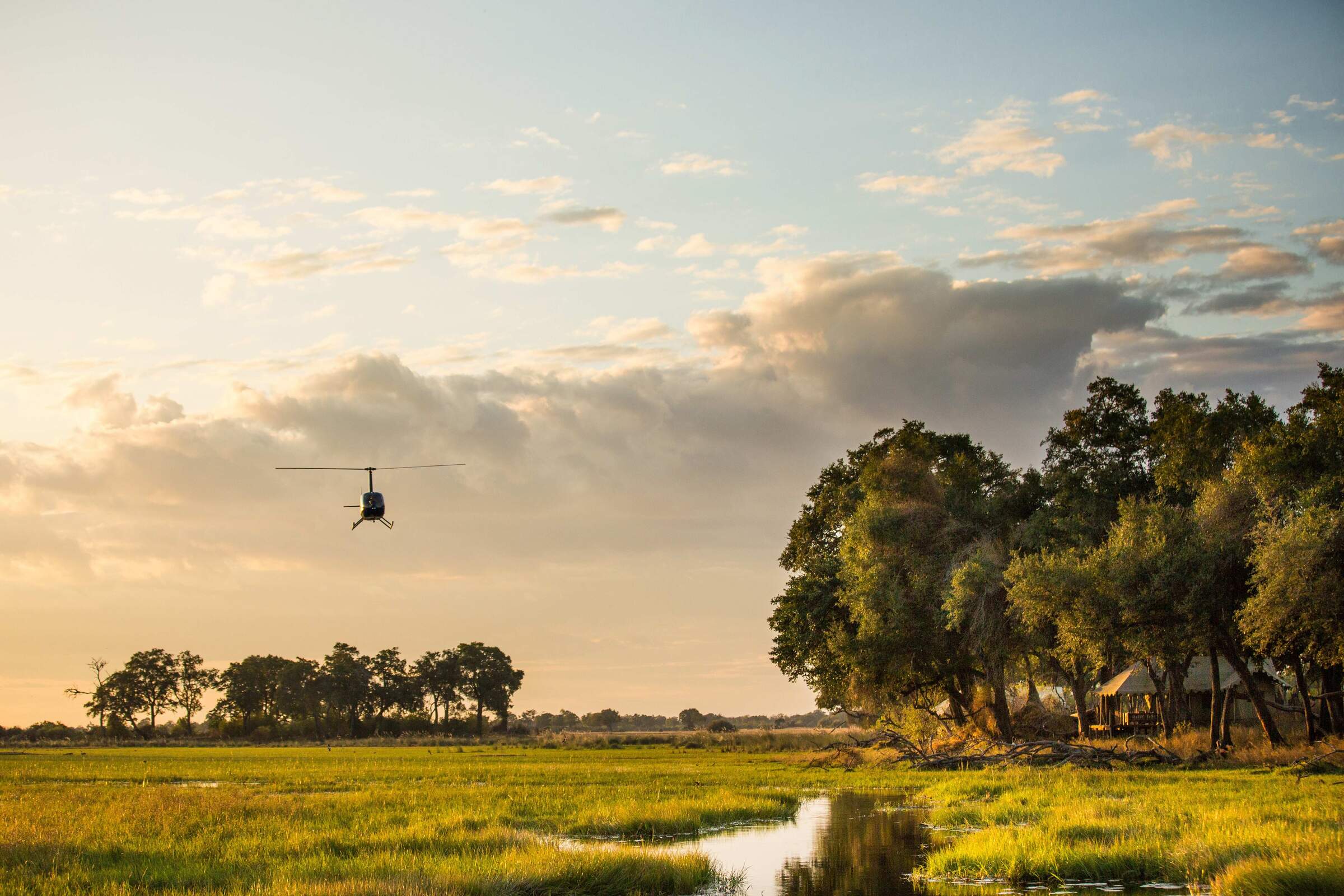
Duba Explorers Camp
Intimate and elegant, Duba Explorers Camp promises a firm safari focus in a remote corner of the Okavango, led by a team who value the highest guiding and hosting standards.
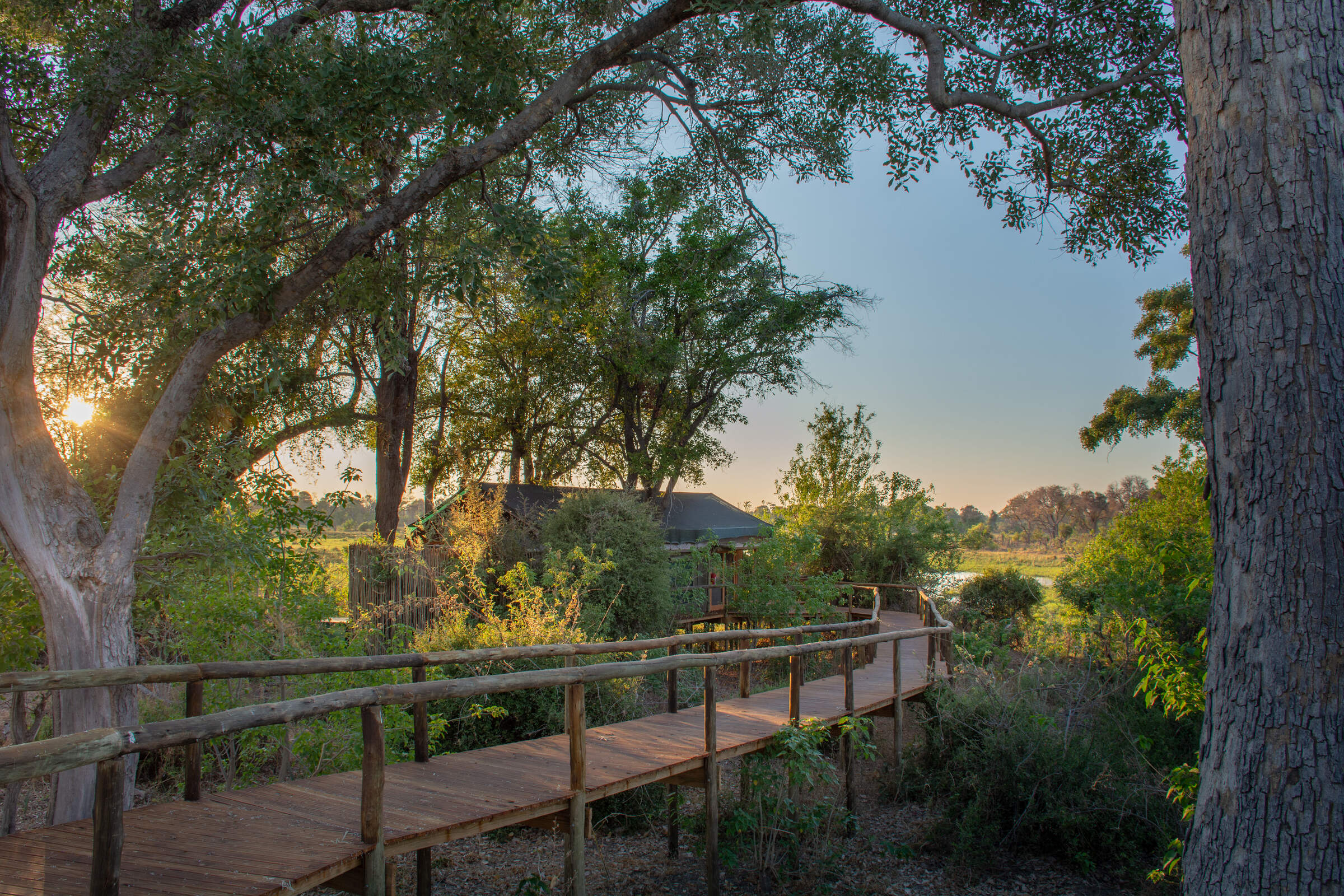
Mma Dinare
Beautifully located in a private concession overlooking the Gomoti River, the traditional Mma Dinare is very well-priced for the Okavango Delta.
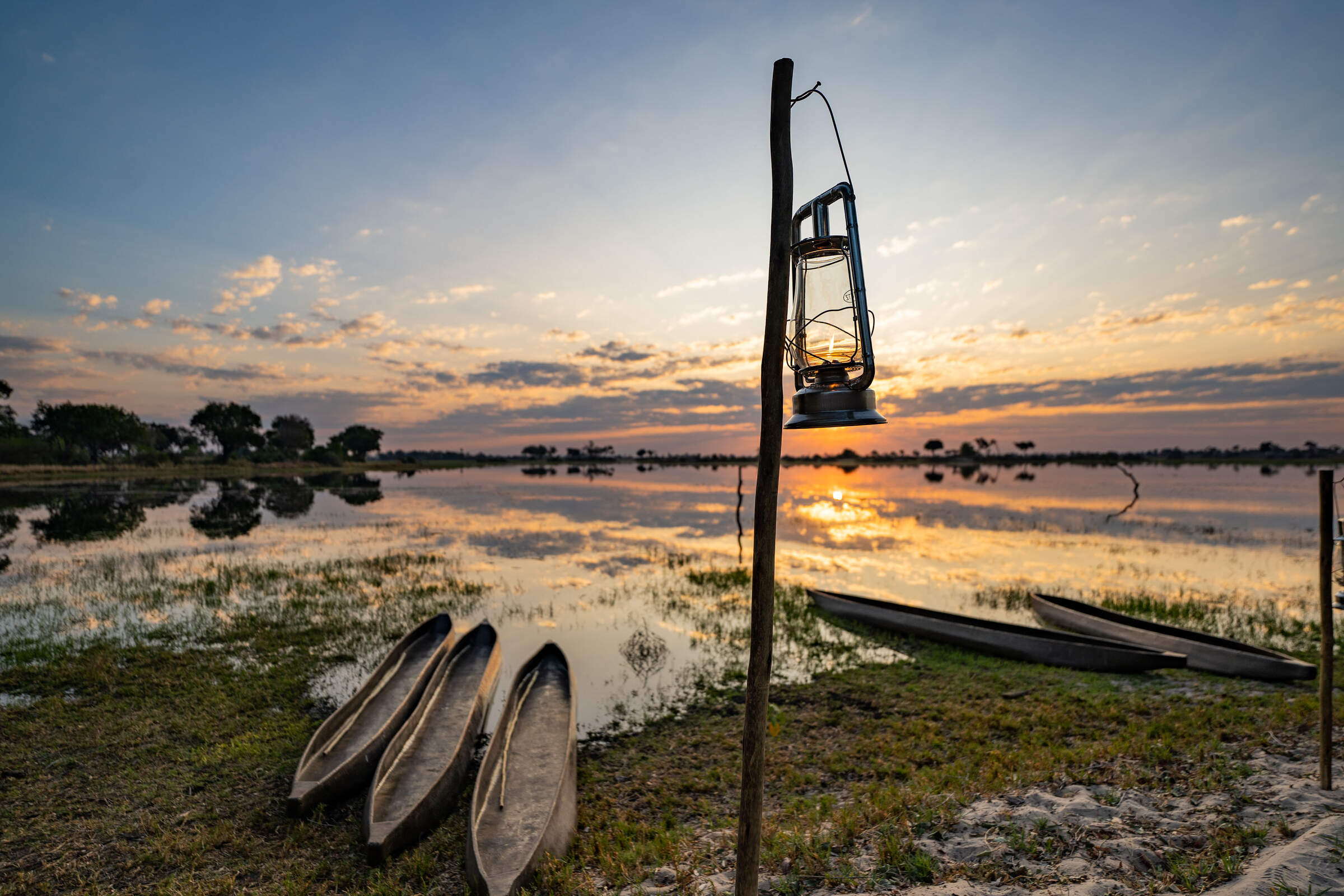
Pom Pom Camp
Amidst stunning Okavango Delta scenery, Pom Pom offers idyllic mokoro trips in season, great birdwatching, and increasingly good big-game sightings, especially leopards.
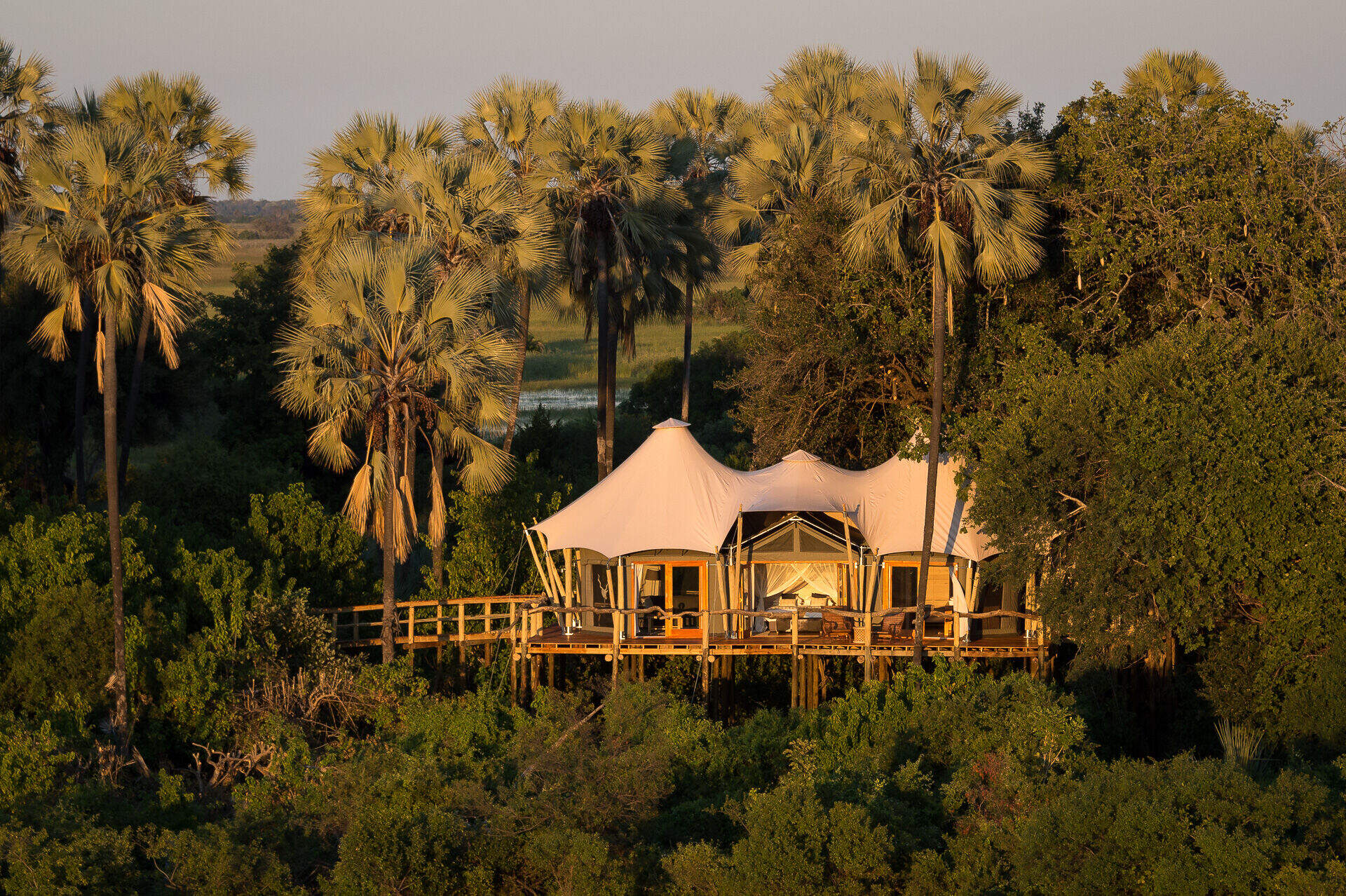
Kwetsani Camp
Deep in the Delta, overlooking a floodplain, Kwetsani Camp is a small, high-end camp with good access to areas for land and water-based activities.
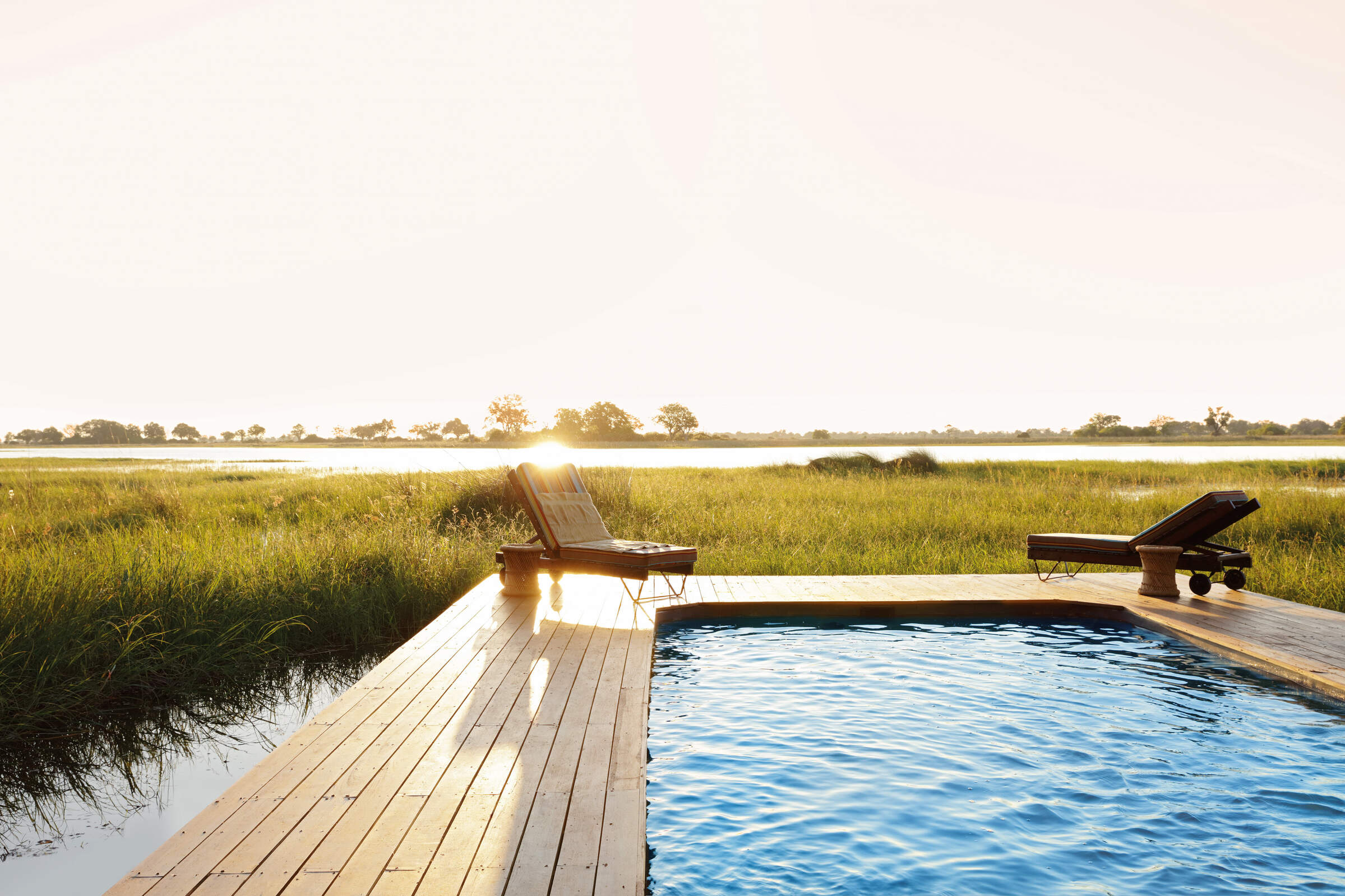
Mapula Lodge
For an affordable yet varied safari encompassing a range of eco-systems, the traditional Mapula Lodge takes a lot of beating.
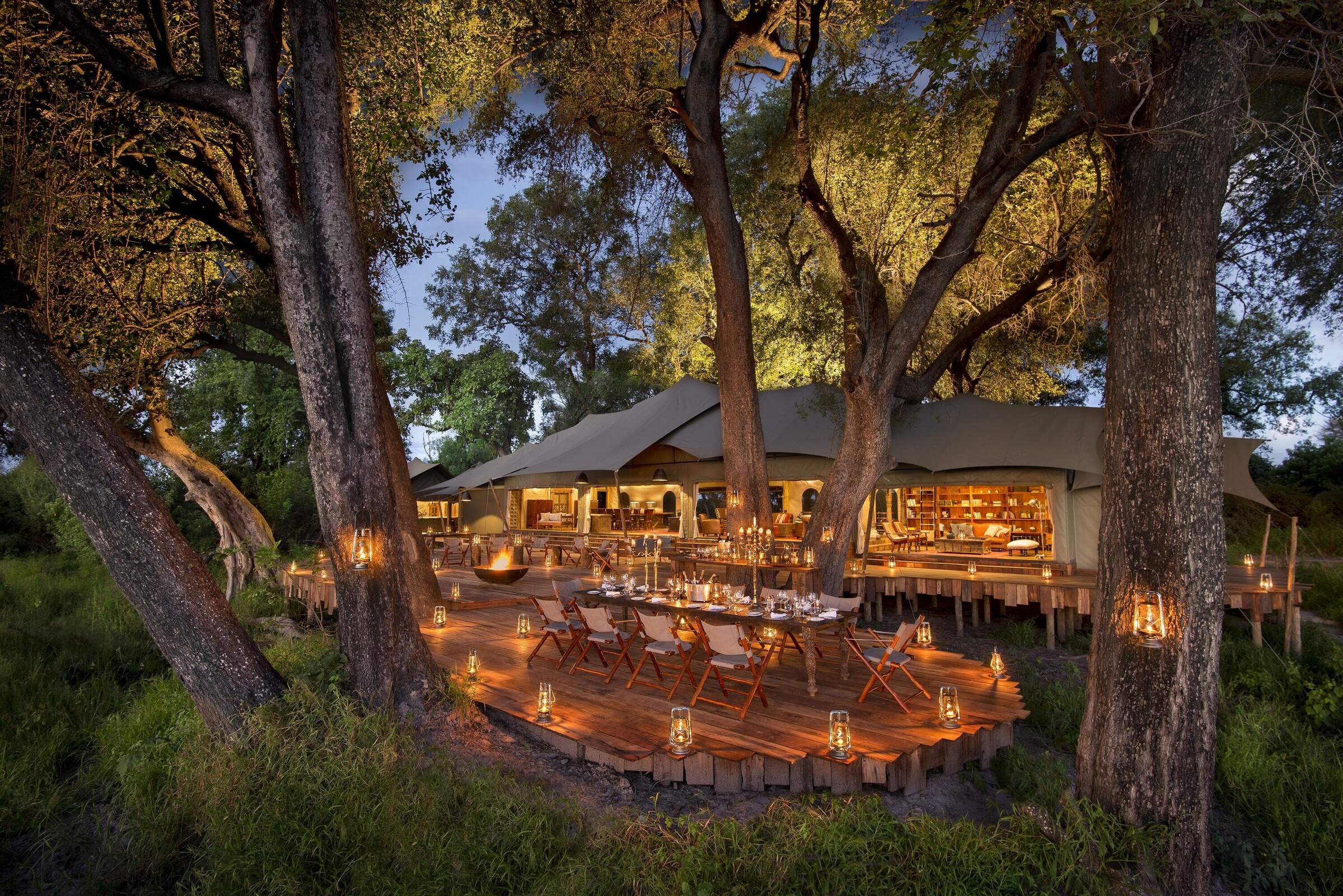
Duba Plains Camp
Duba Plains Camp is a traditional yet luxurious safari camp, best known for the thrilling lion behavior interaction that is often see during the day.
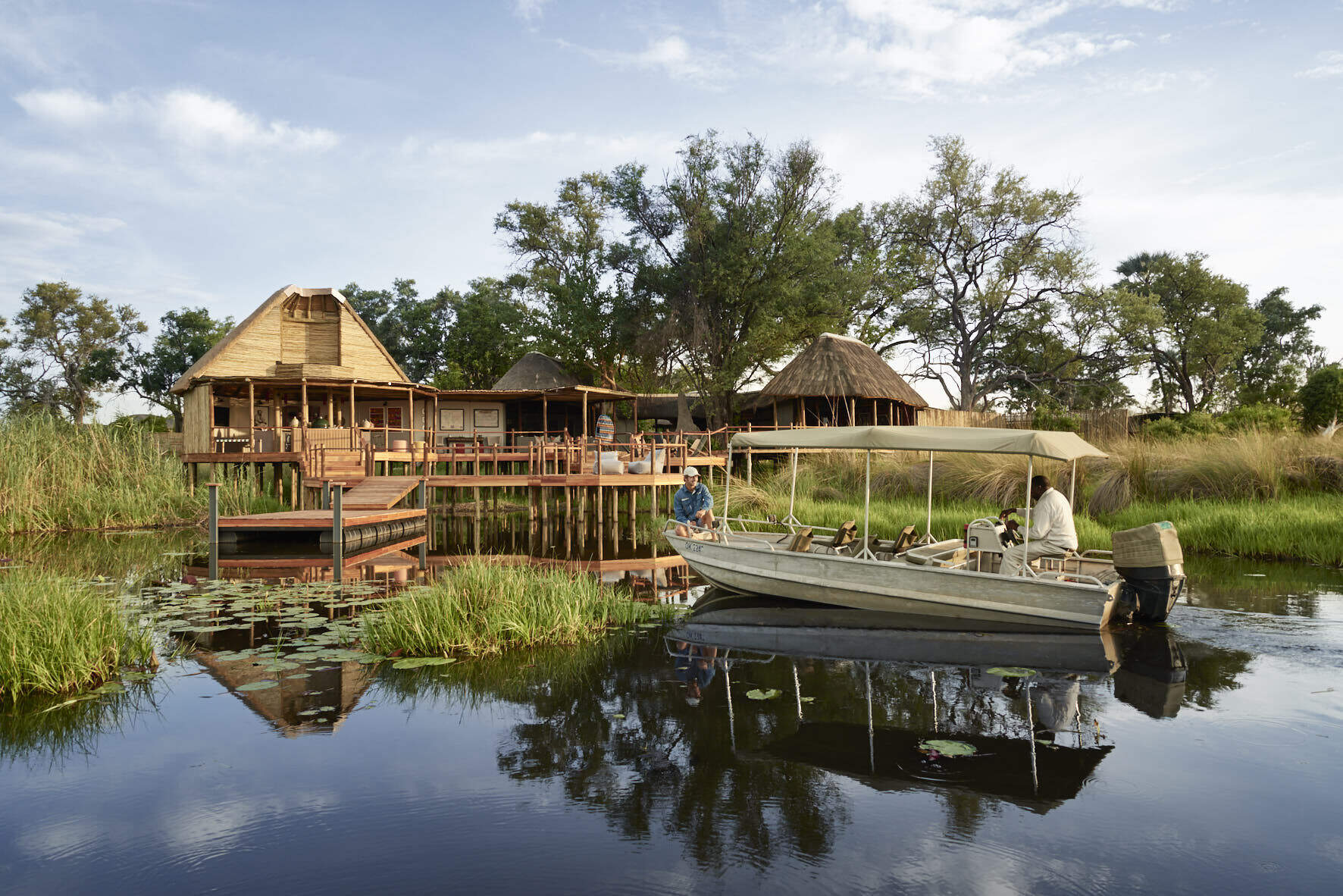
Baines' Camp
Baines' Camp is a well-run, intimate camp in a pretty part of the Okavango, offering a range of activities and the option to spend a morning walking with elephants.
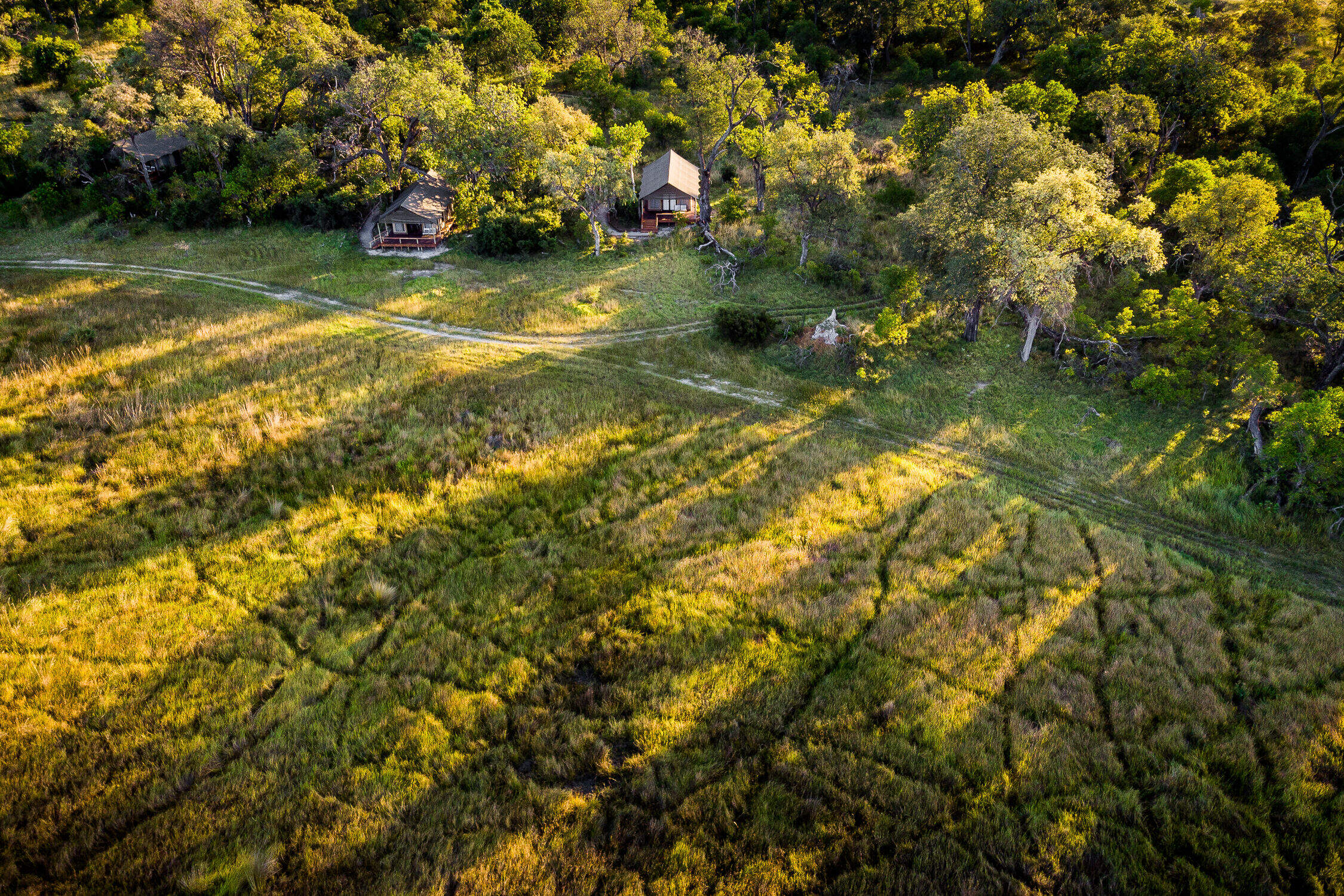
Stanley's Camp
In a private concession south of Moremi Game Reserve, Stanley's Camp offers 4WD game drives, seasonal water activities and a superb elephant interaction.
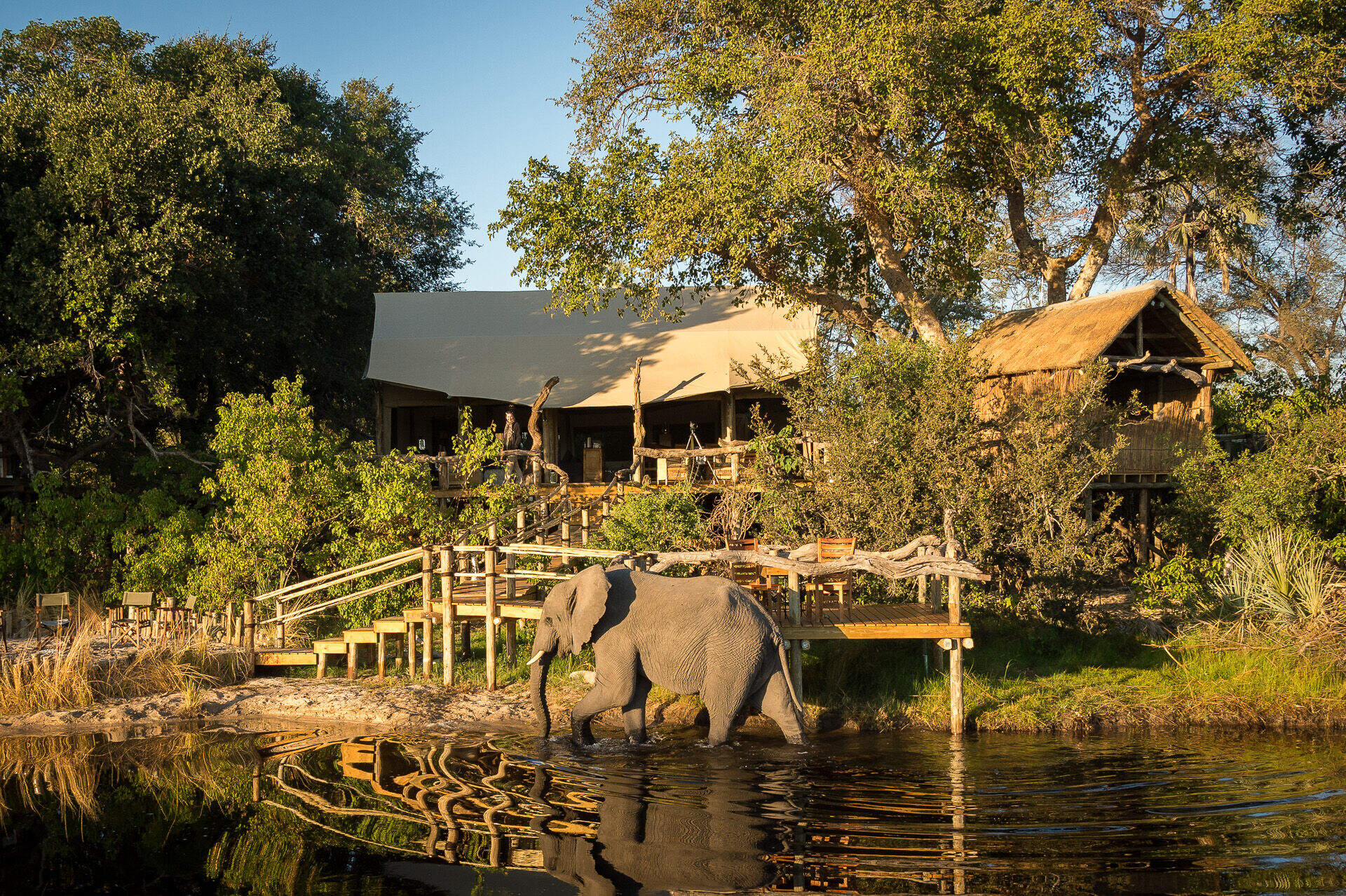
Little Tubu
Little Tubu is a new, traditional camp with just three tented chalets and a distinctive tree-house feel. The areas around it can be explored by water and land-based activities year round.
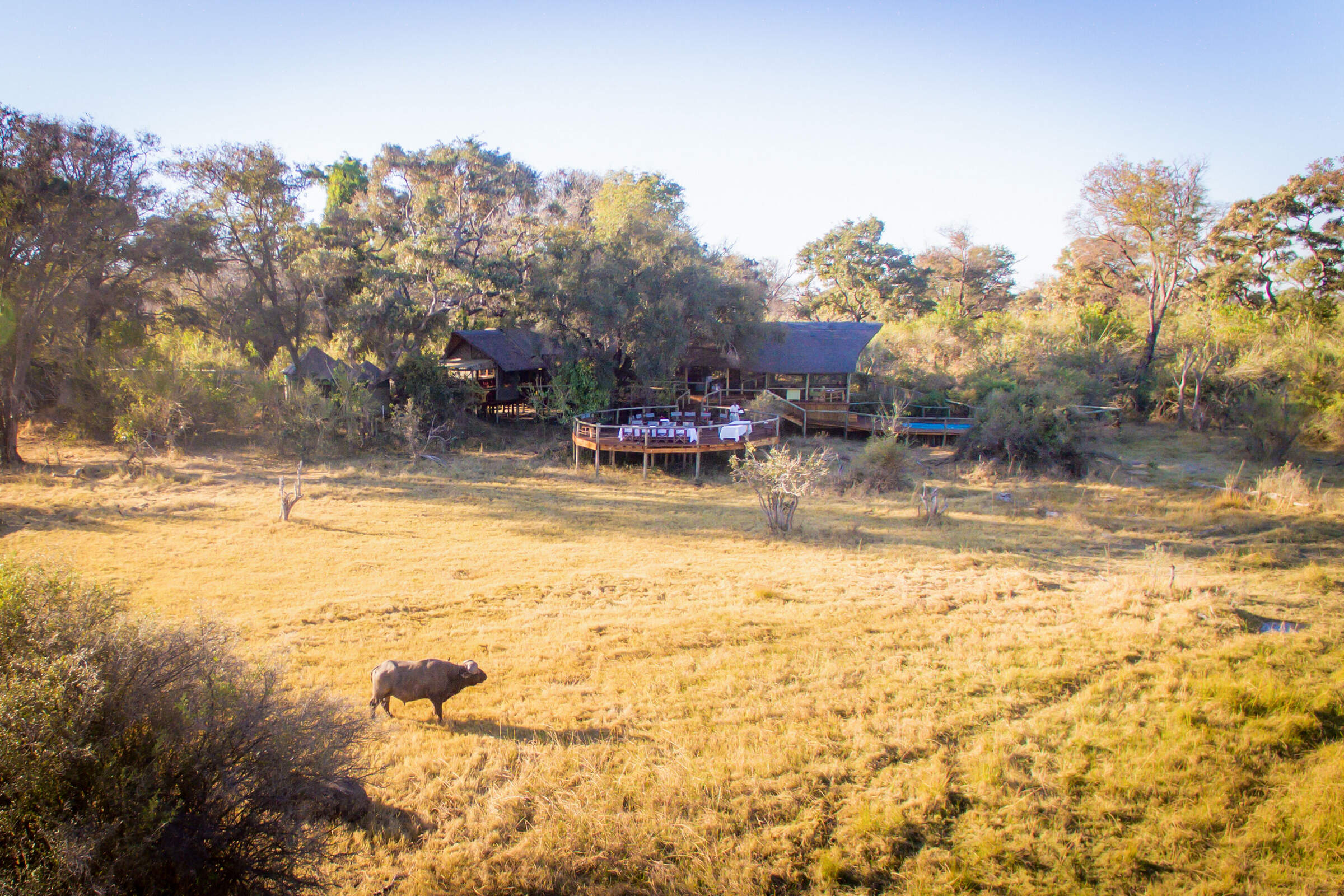
Rra Dinare
Located in a private concession in the southern reaches of the Okavango Delta, overlooking the Gomoti River, Rra Dinare is a traditional-style, well-priced camp.
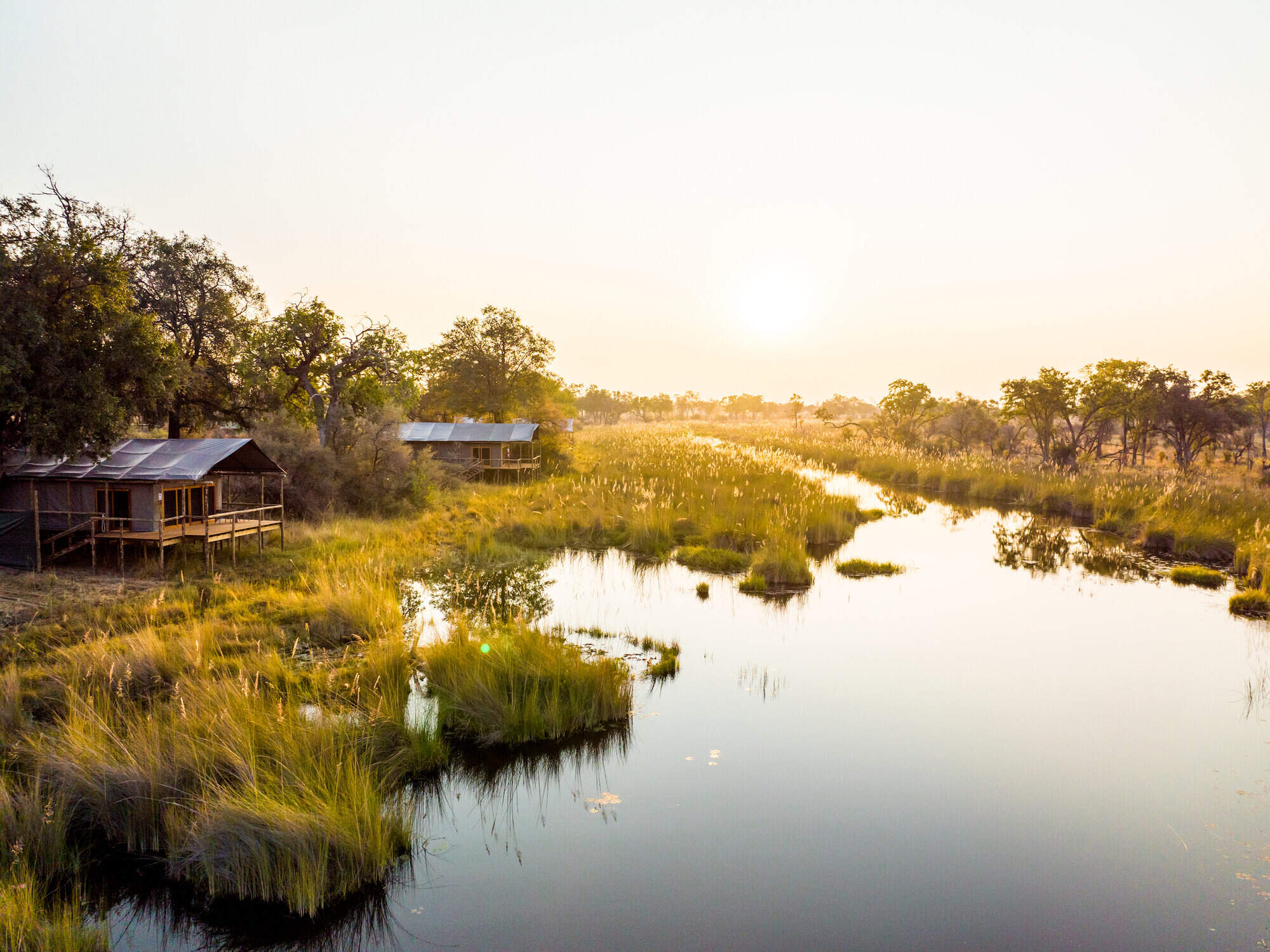
4 Rivers
4 Rivers is a new camp in a previously in accessible area of the excellent Kwara concession.
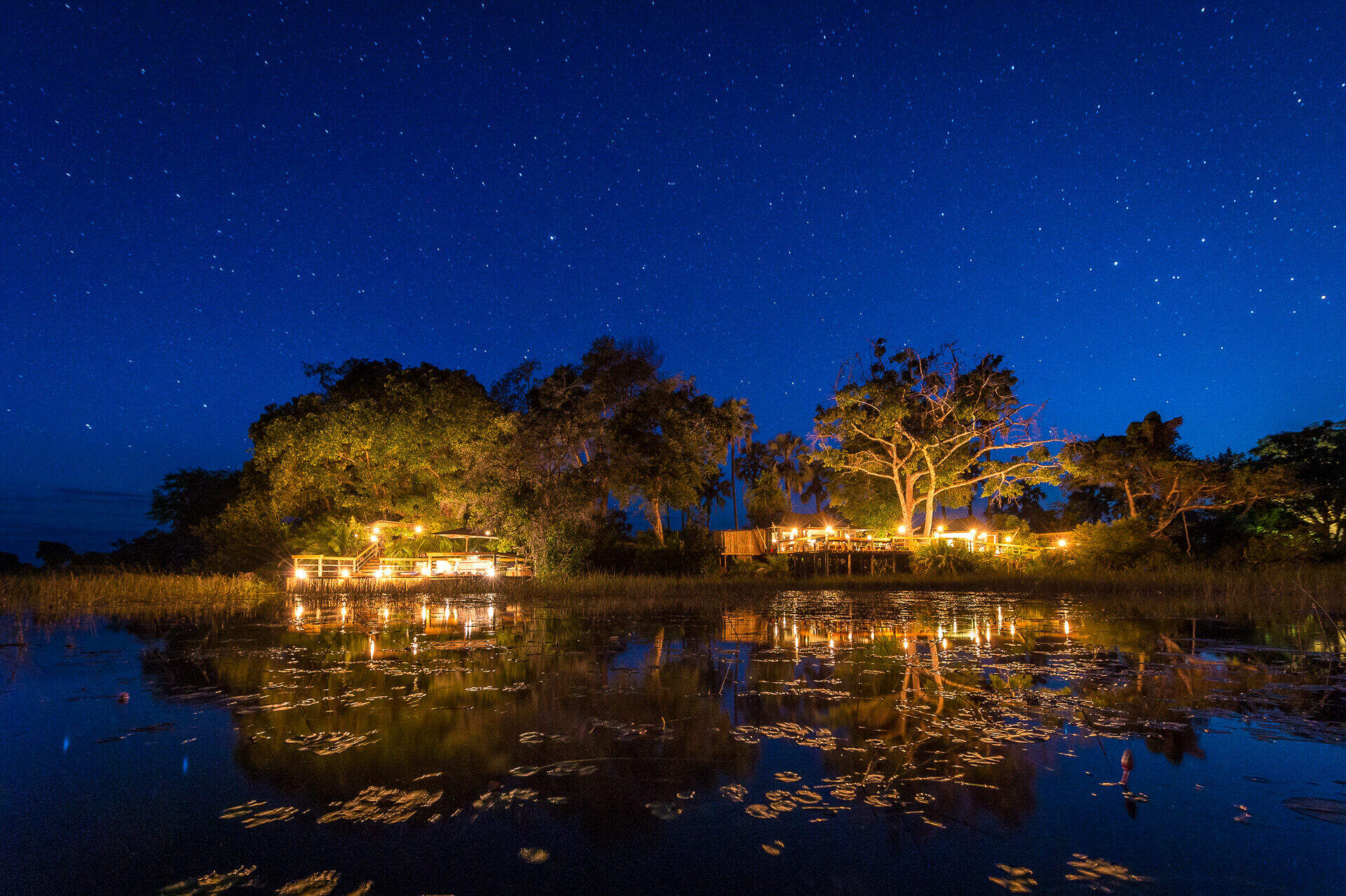
Pelo Camp
In a pristine wilderness environment deep in the Okavango Delta, the seasonal Pelo Camp is tented yet comfortable, with activities focusing on excursions by mokoro.
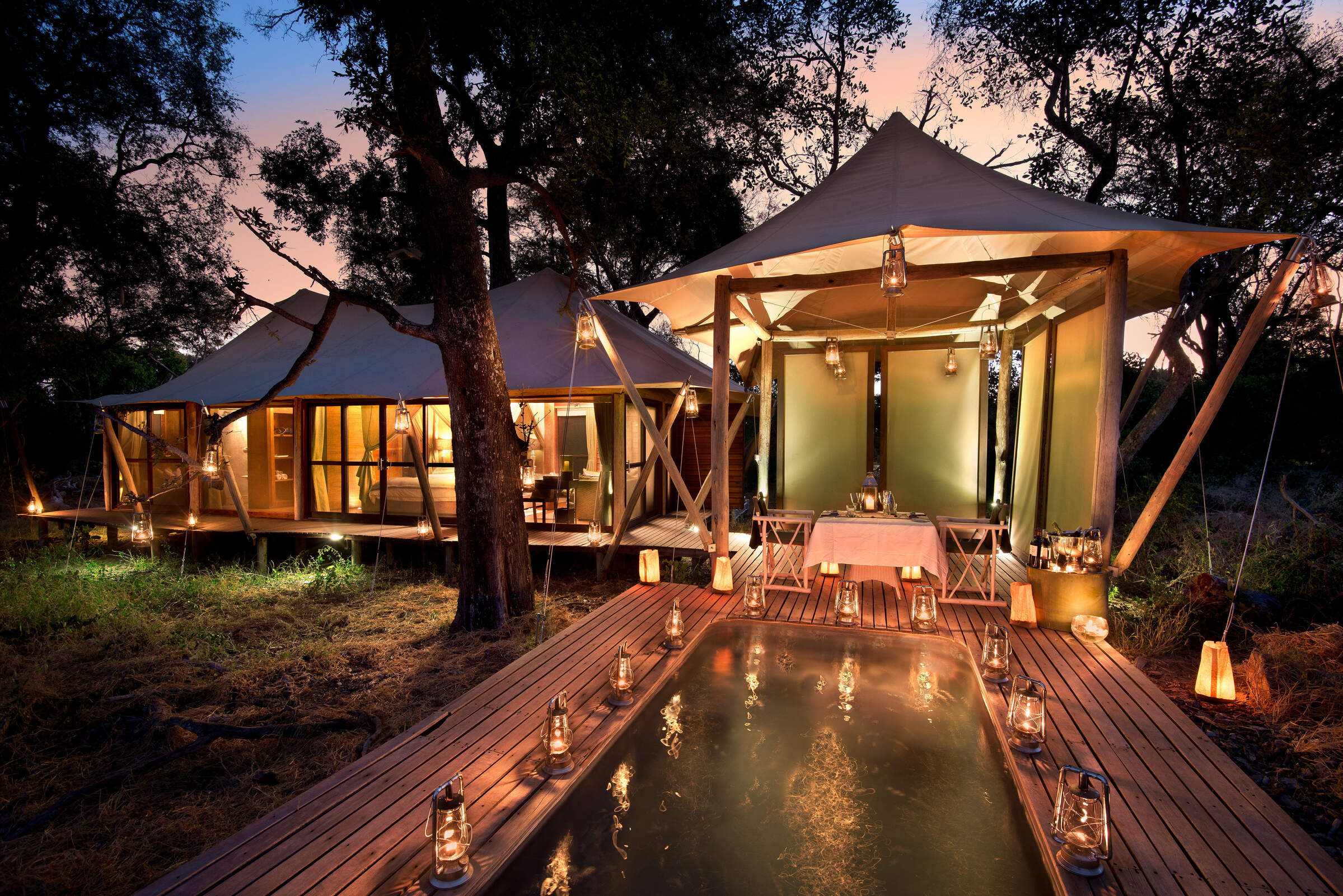
Xaranna
Xaranna is a plush tented camp amongst the idyllic waterways and islands of the Delta. Each air-conditioned tent has a plunge pool. Water activities and pampering are the focus here.
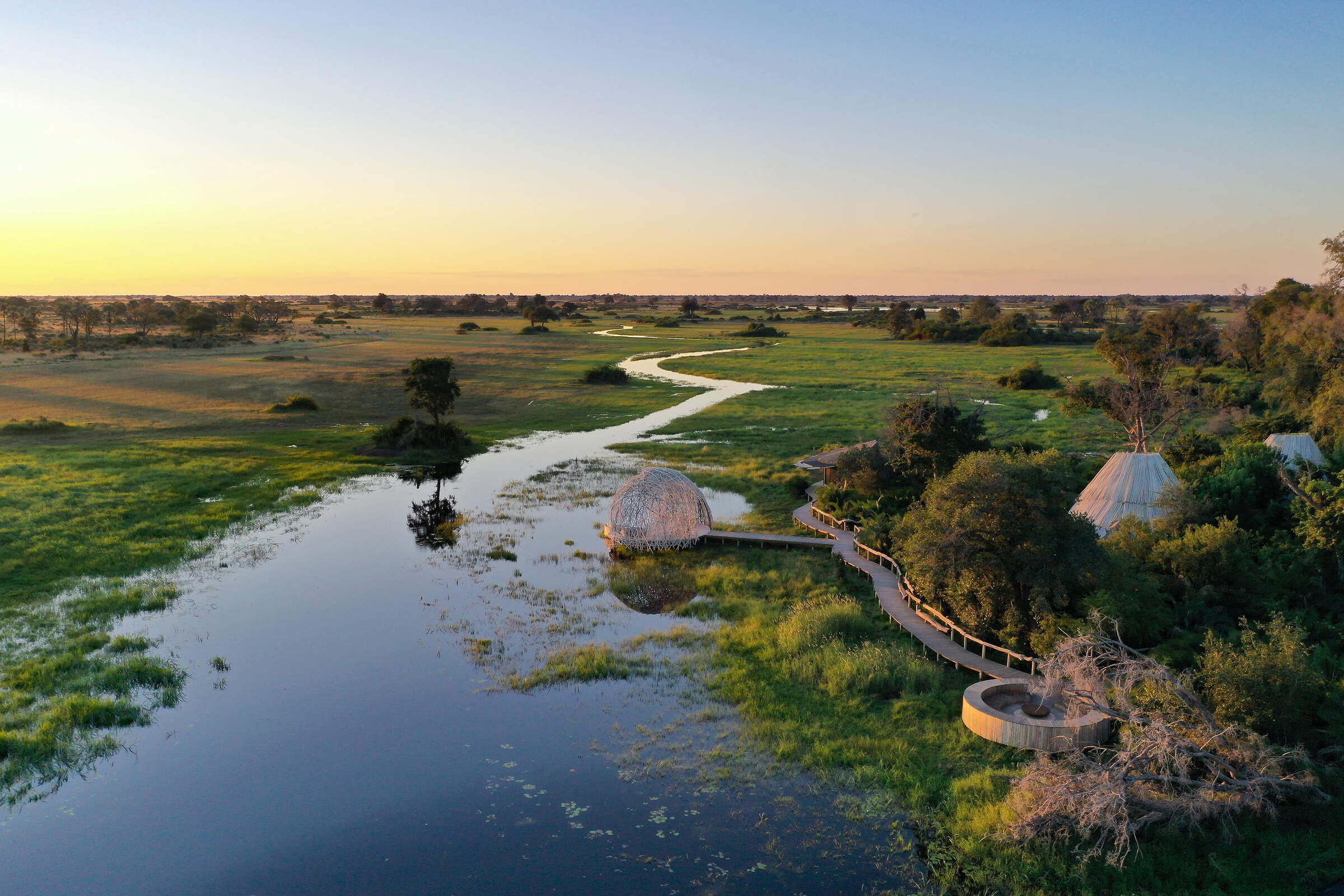
Jao Camp
In a beautiful area with fantastic water activities, Jao combines an idyllic location with high levels of luxury and service, and a top-end spa.
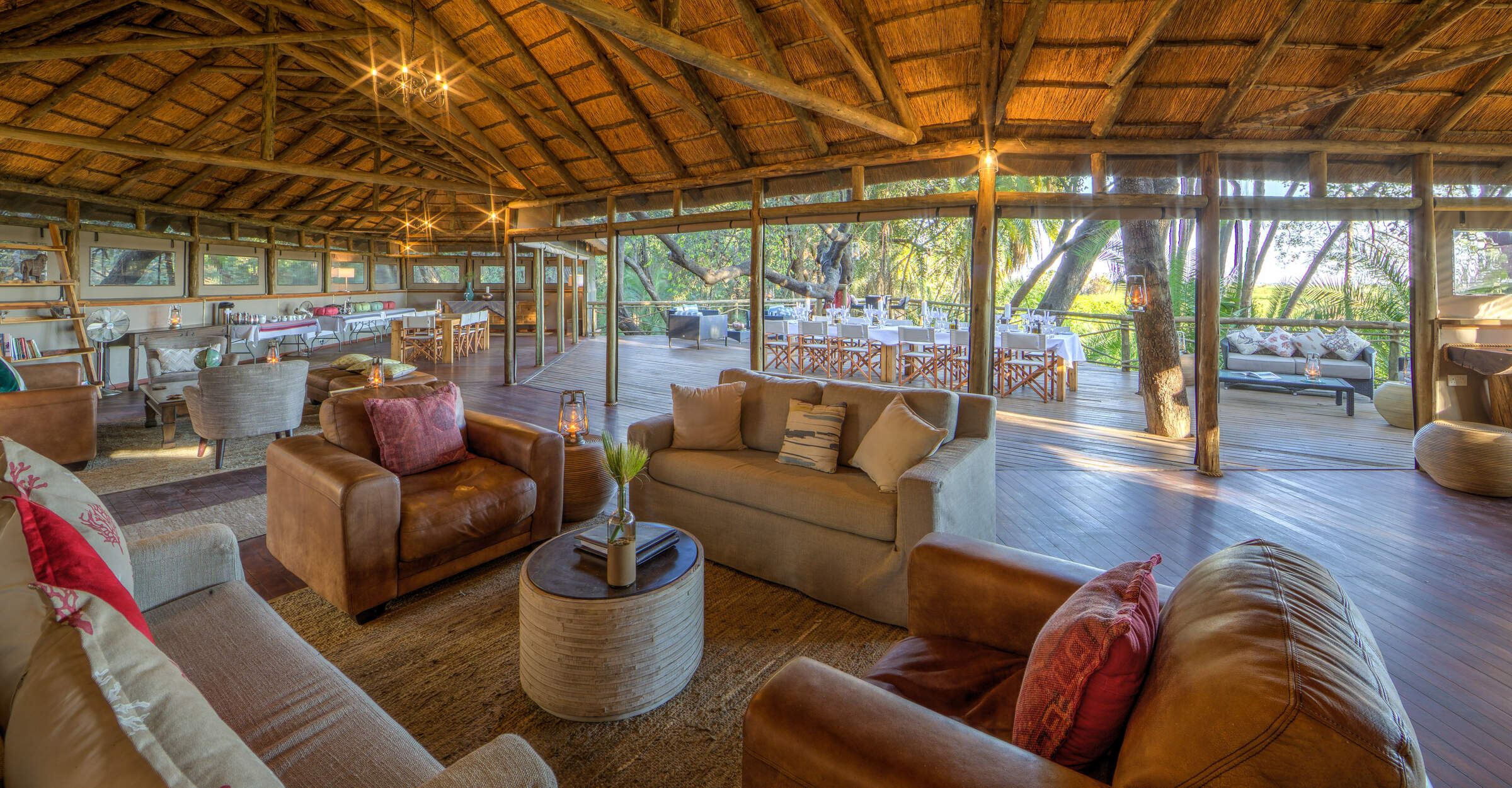
Setari Camp
Setari Camp stands on an island dotted with palm trees, close to the base of the Okavango's 'Panhandle", offering primarily water-based activities.
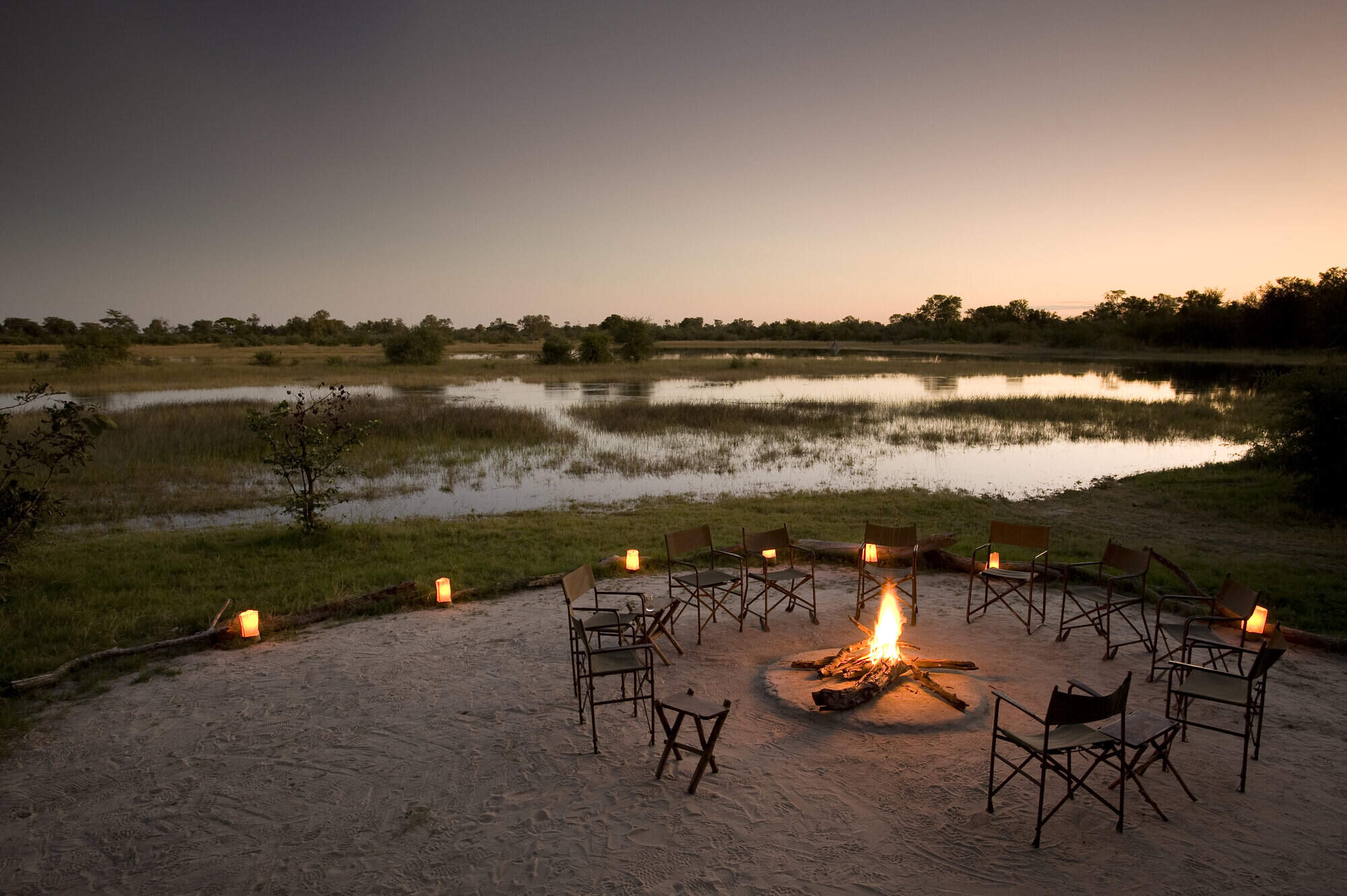
Okavango Explorers
The traditional, tented Okavango Explorers Camp offers a mix of walking, canoeing and game drives led by great guides in a wildlife-rich area.
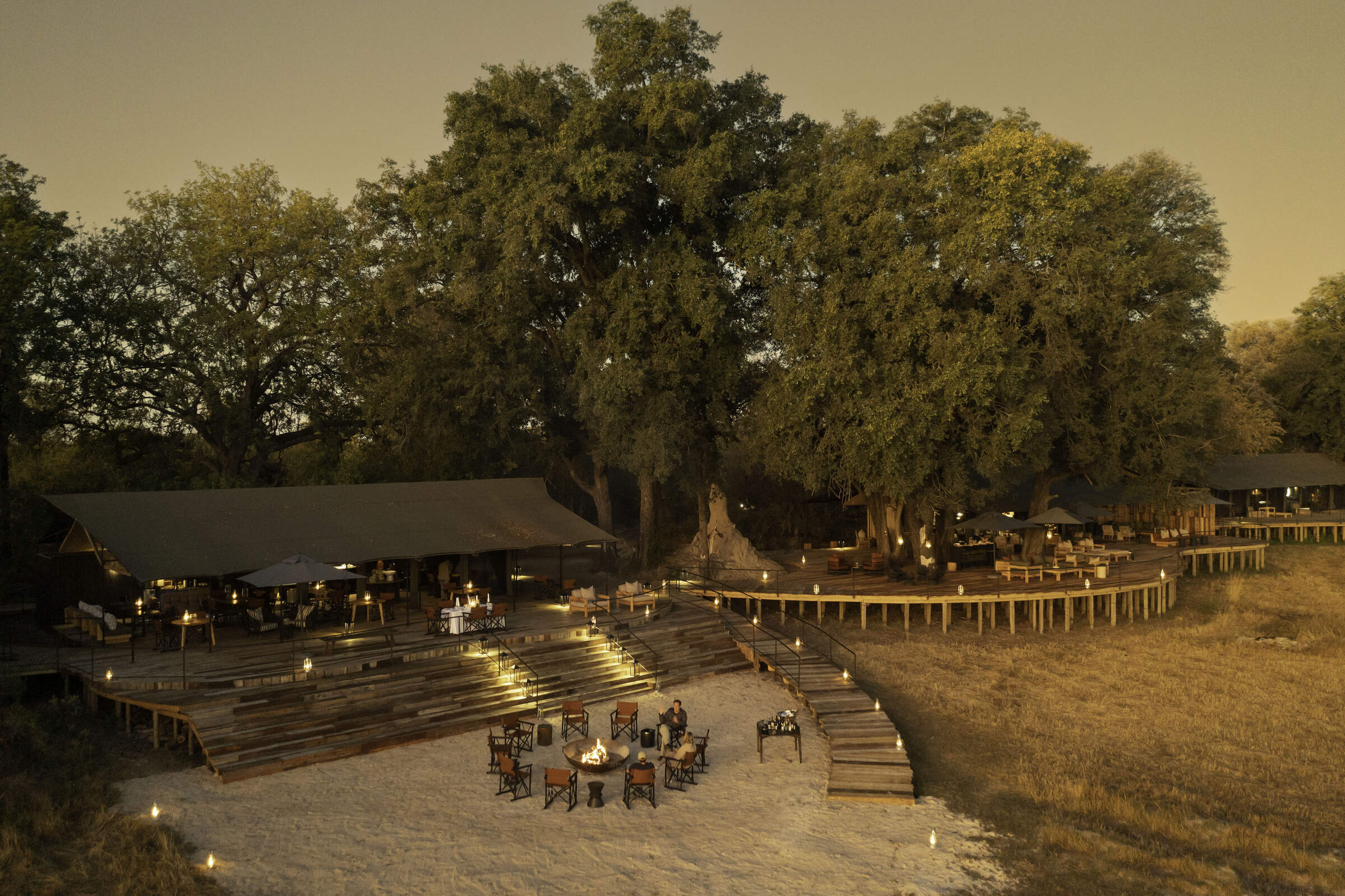
Kiri Camp
Kiri Camp is the latest Okavango offering from the excellent team behind Machaba. In an exciting new location in the heart of the Delta we cannot wait to visit this new camp.
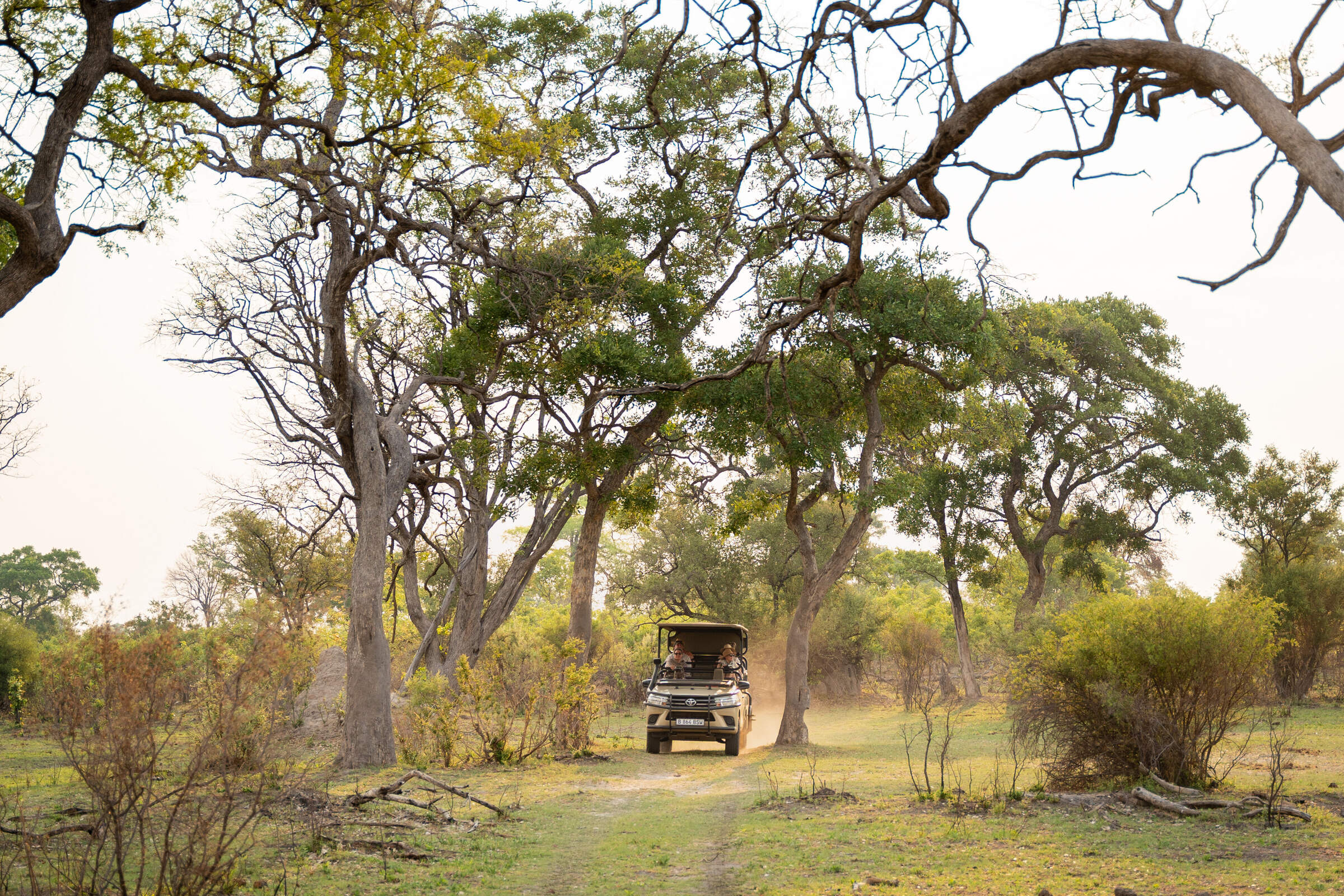
Karangoma
New for 2024, Karangoma is a classic, tented camp offering walking, canoeing and game drives, in partnership with the local Bukakwe San clan.
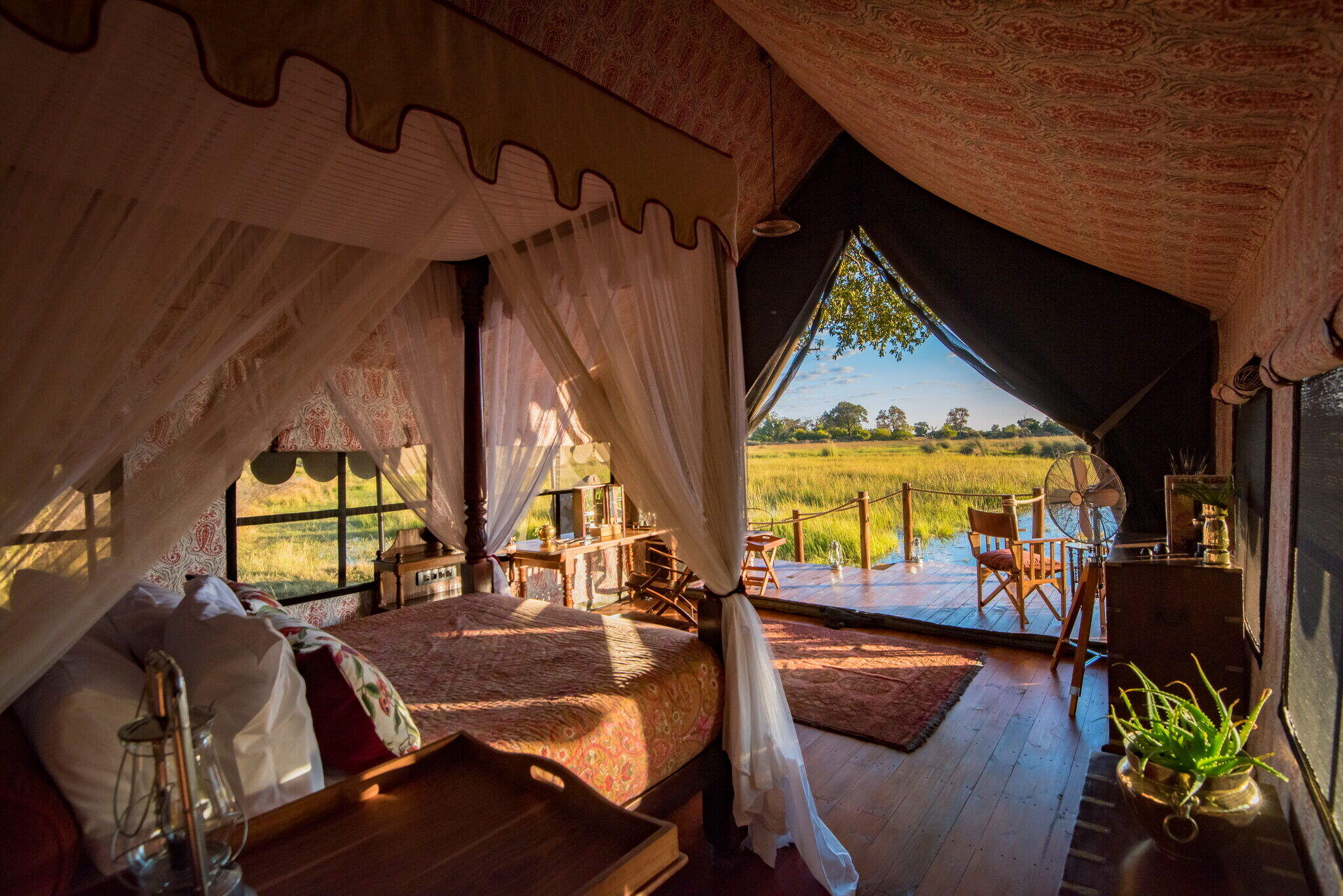
Duke’s Camp
On a remote island within a large concession, the romantic Duke's Camp and smaller Duke’s East are nestled among mature trees overlooking wildlife-rich plains and waterways of the Okavango.
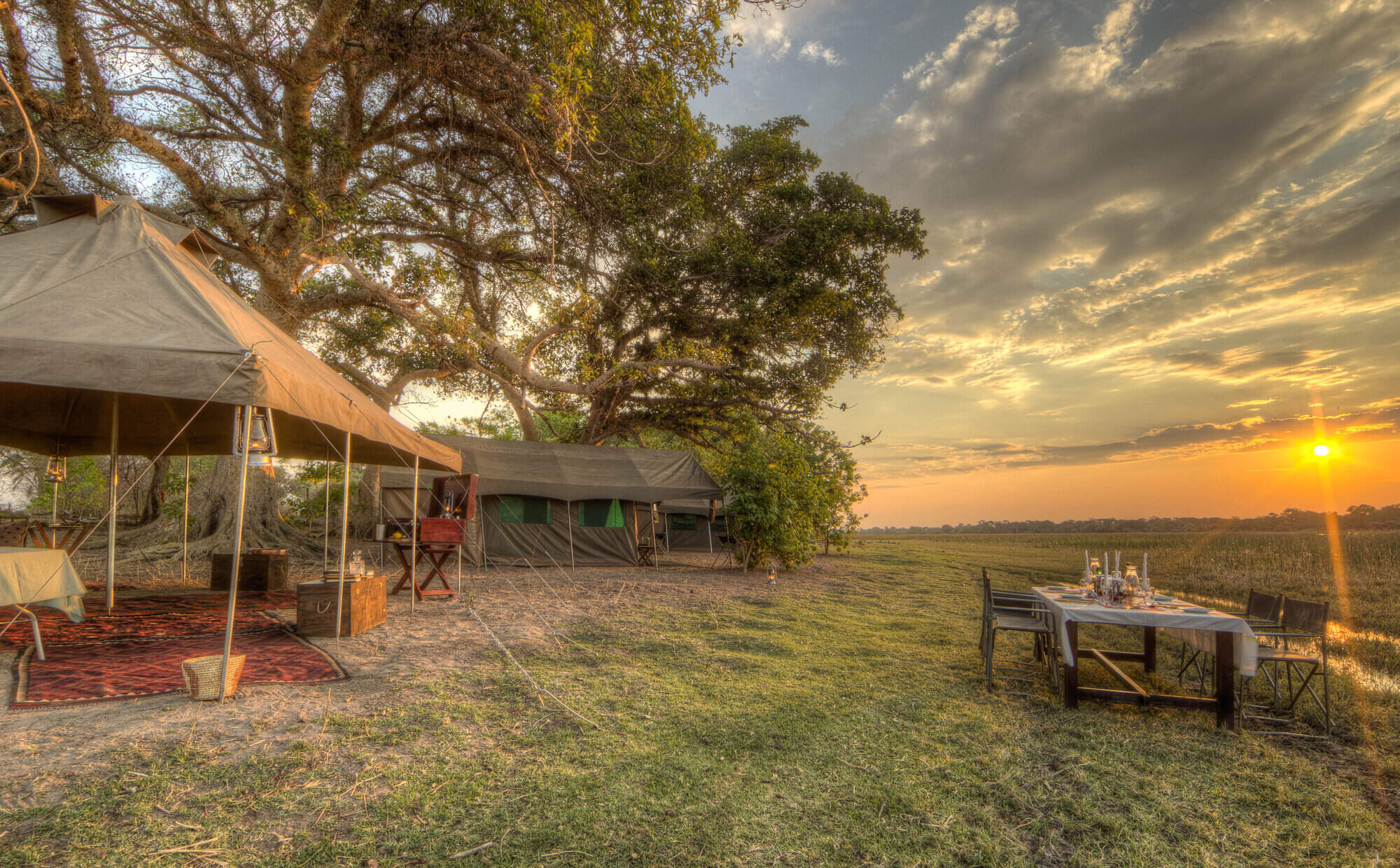
Okavango Walking Safari
The Okavango Delta Walking Safari camps in a secluded Okavango Delta Reserve where there are few roads; the ideal location for a walking trail led by an expert guide.
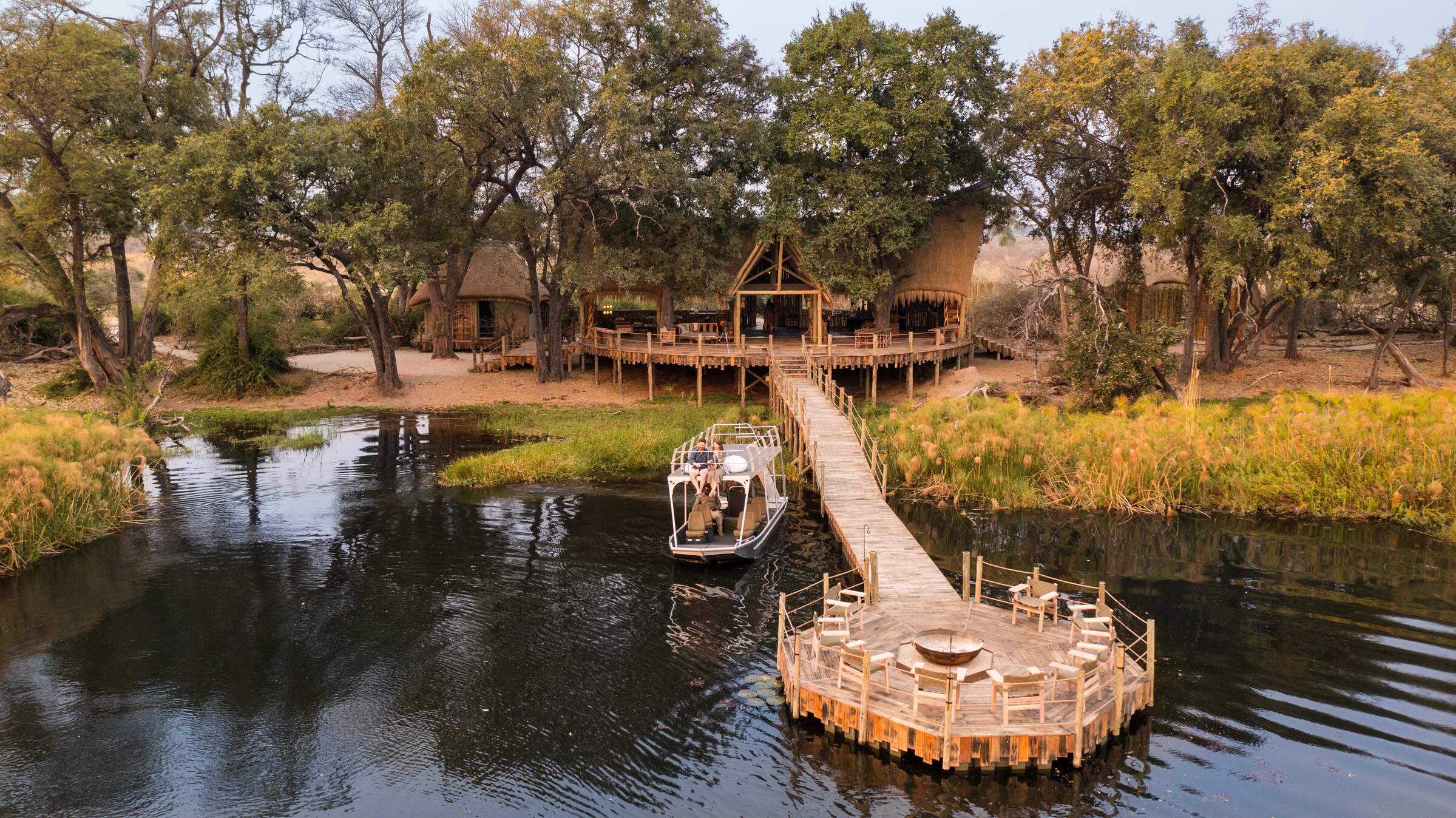
Sitatunga Island Camp
Tucked away in a pristine corner of the Okavango Delta, the exclusive Sitatunga Private Island is a water-based camp offering boating, mokoro trips and fishing.
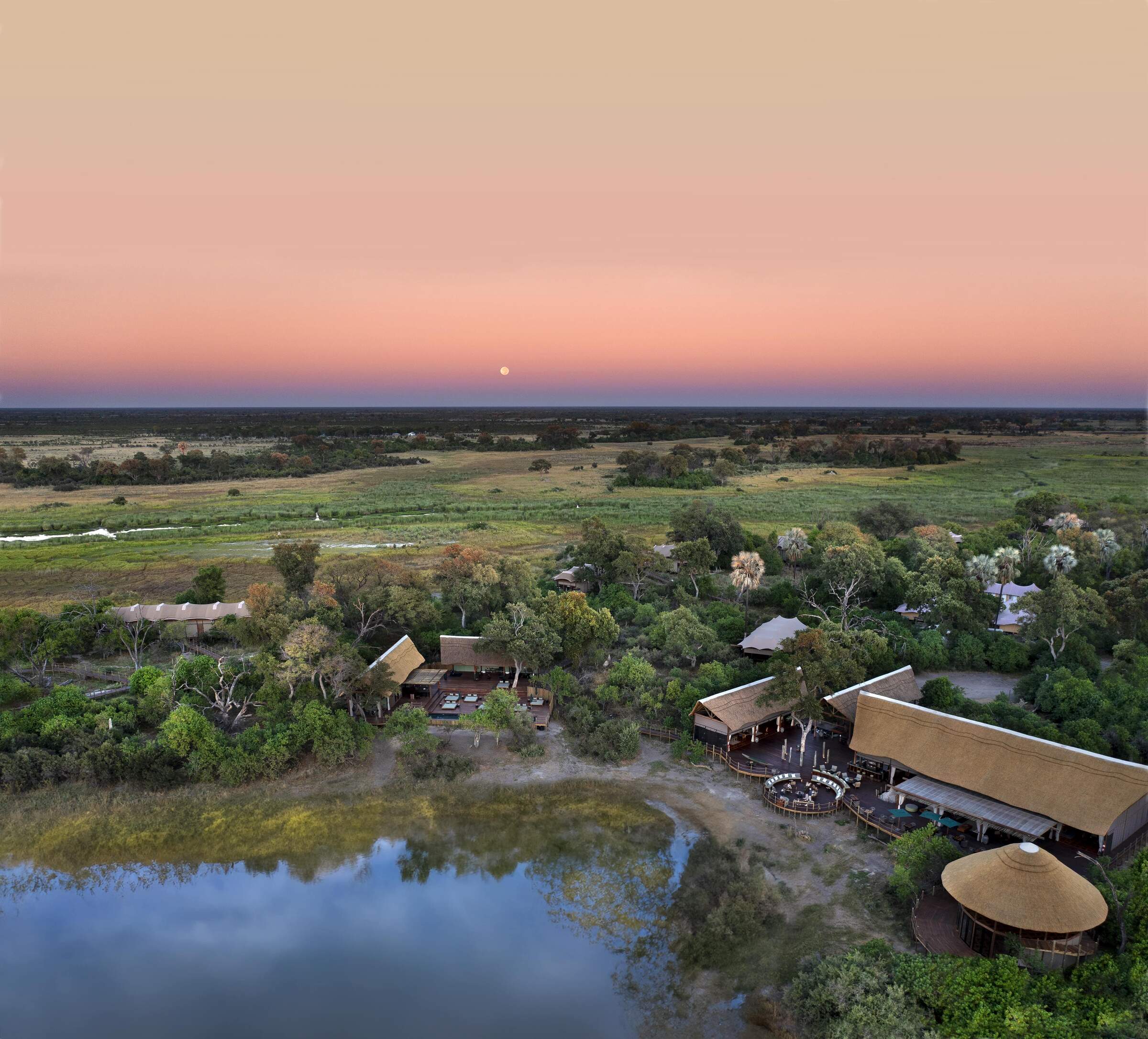
Atzaro Okavango
With a high level of tasteful luxury promised at Atzaro, we think it will be best suited to travellers seeking a touch of pampering alongside their safari.
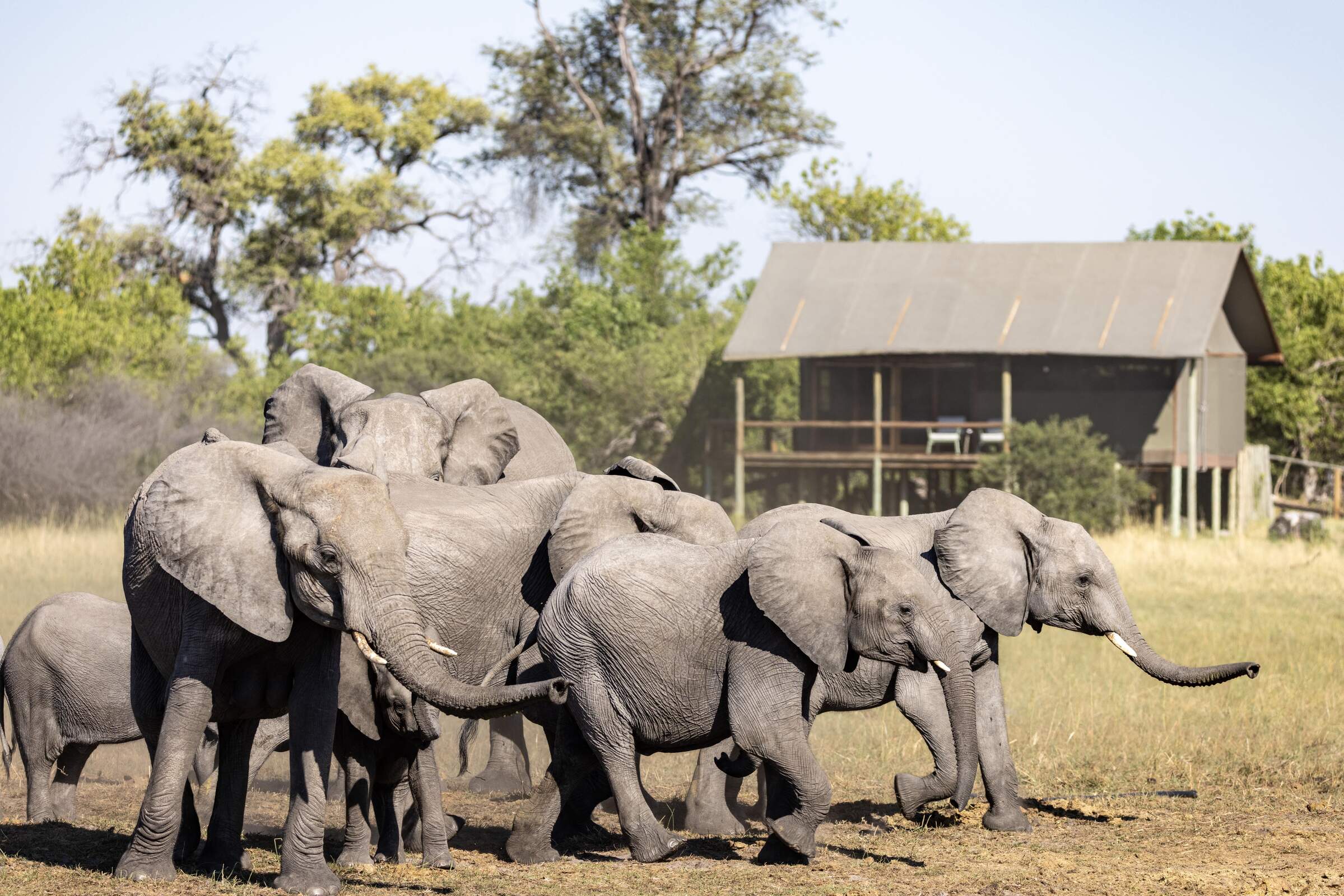
Mokolwane
Deep in the heart of the Okavango, the simple Mokolwane focuses on wildlife viewing in a large, untouched area.
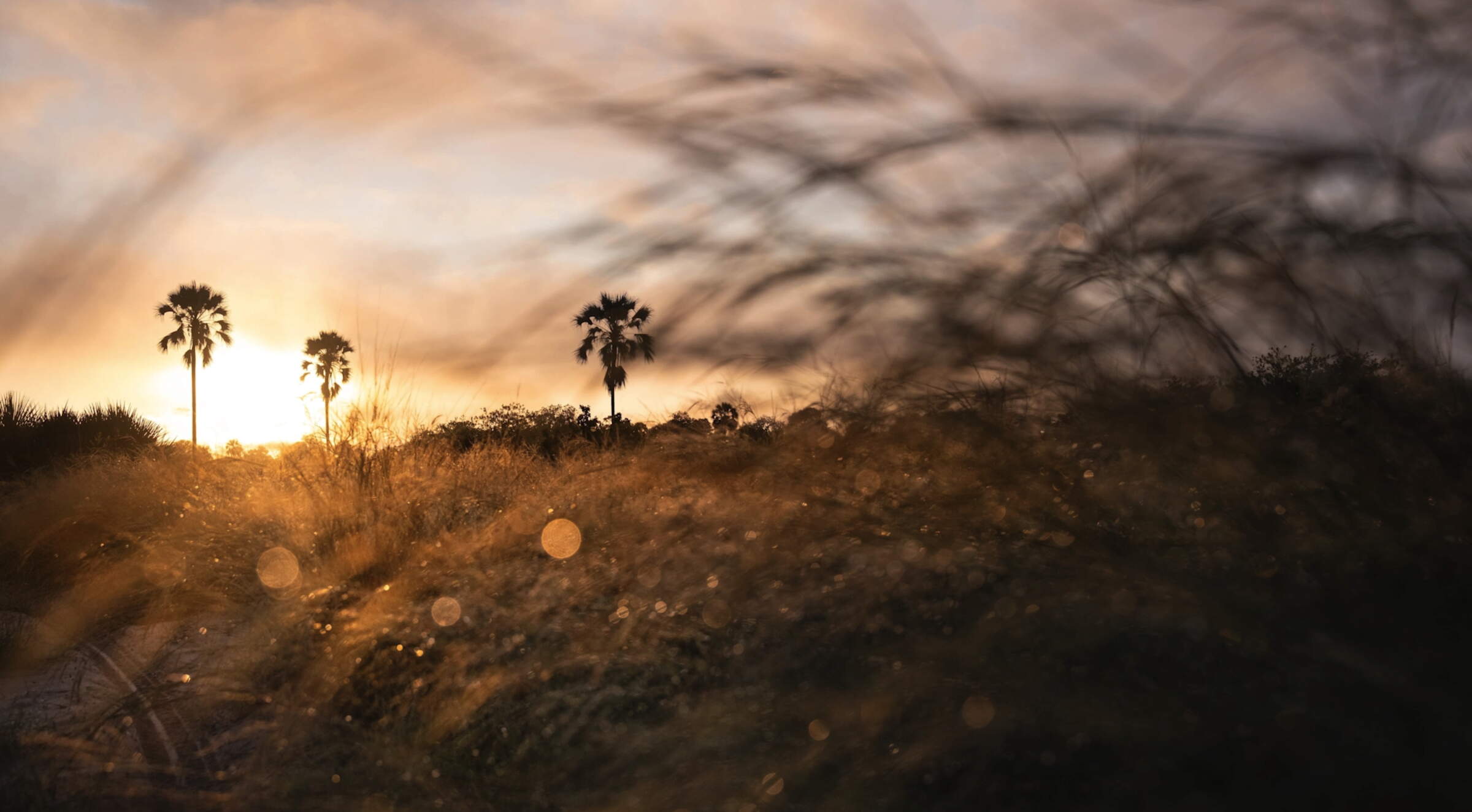
Singita Elela
Singita Elela is an exclusive safari camp on the western side of the Botswana's Okavango Delta - offering superb wildlife and water based opportunities depending on the seasonality.
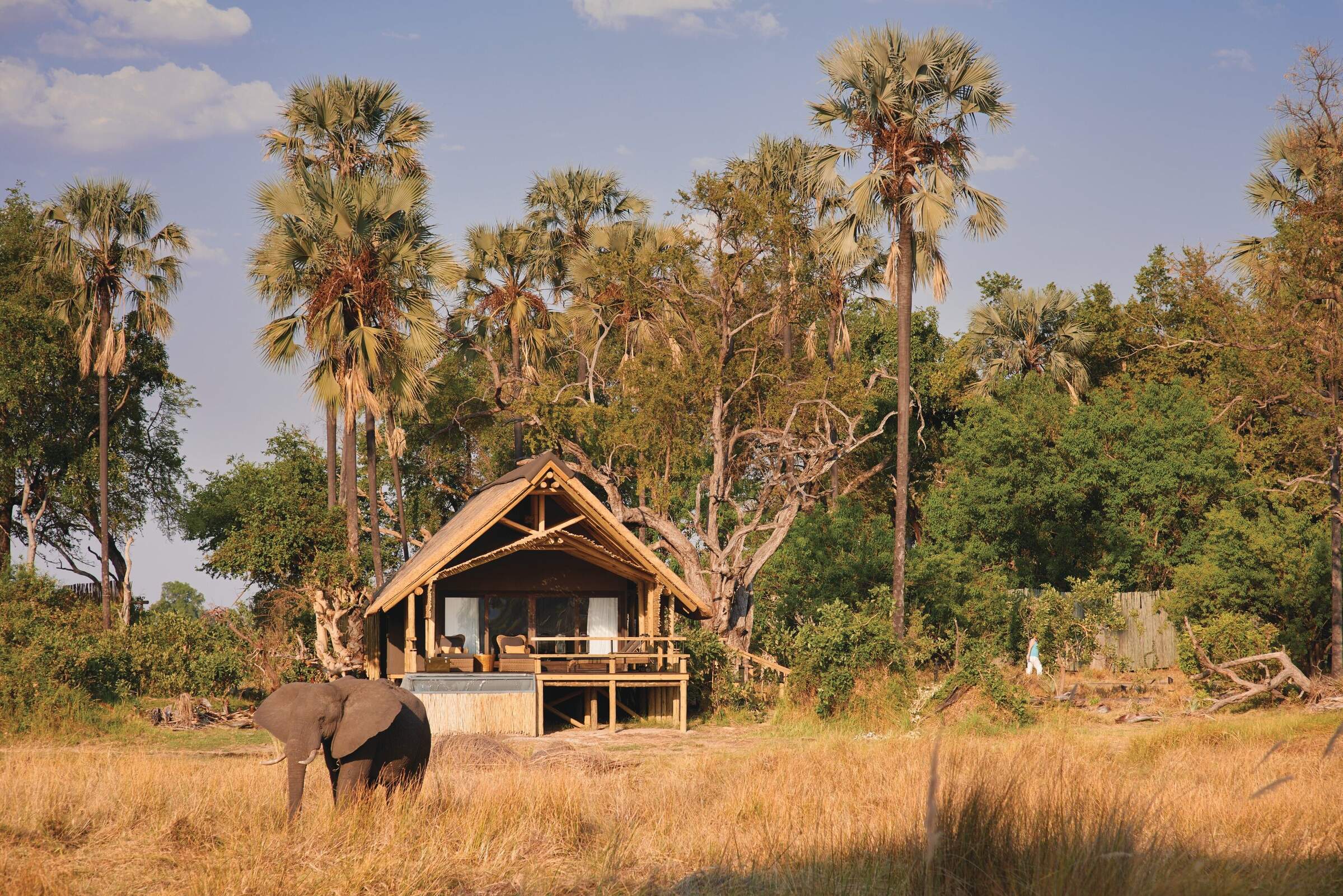
Eagle Island Lodge
Eagle Island Lodge is a luxurious camp with international-style facilities including air conditioning and intercom in each room; offering water based activities in the Okavango Delta.
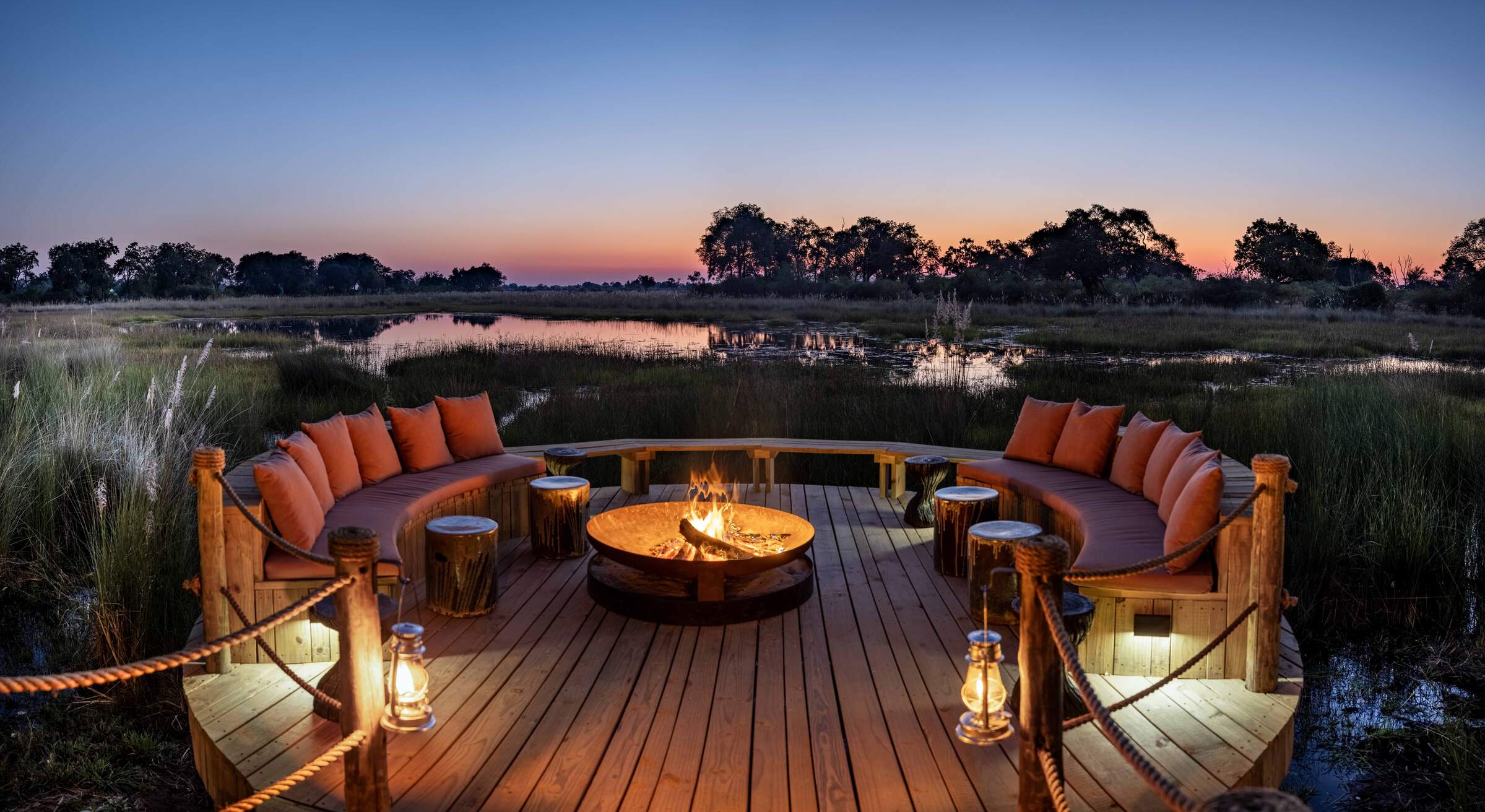
North Island Okavango
Deep in quintessentially “Okavango” territory, between deep-water and dry-land habitats, North Island focuses on a luxury safari experience with very good wildlife viewing opportunities.
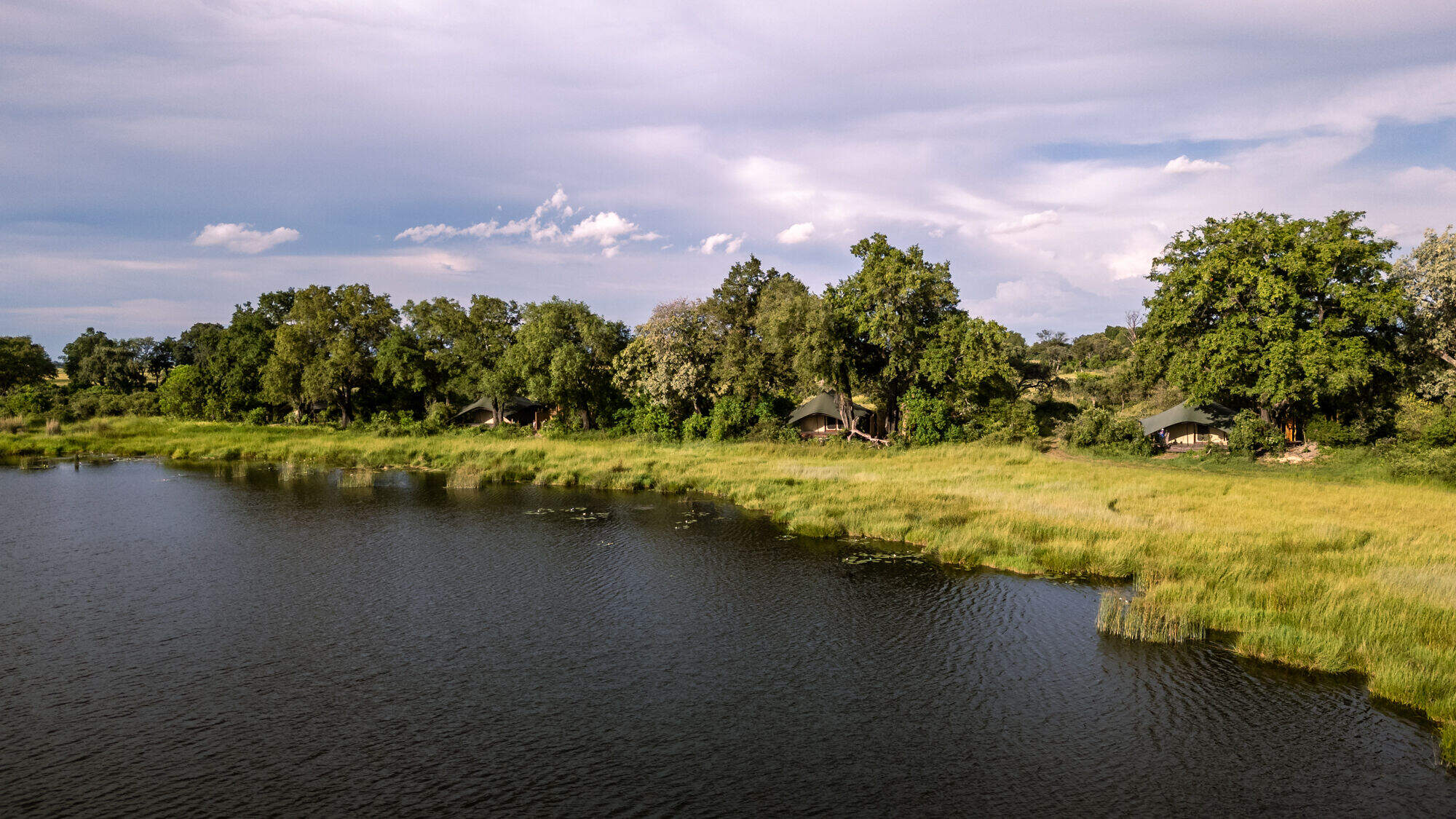
Maxa
Overlooking the permanent Maxa Lagoon, Maxa has a range of activities on offer, combining understated luxury with comfort in a remote location.
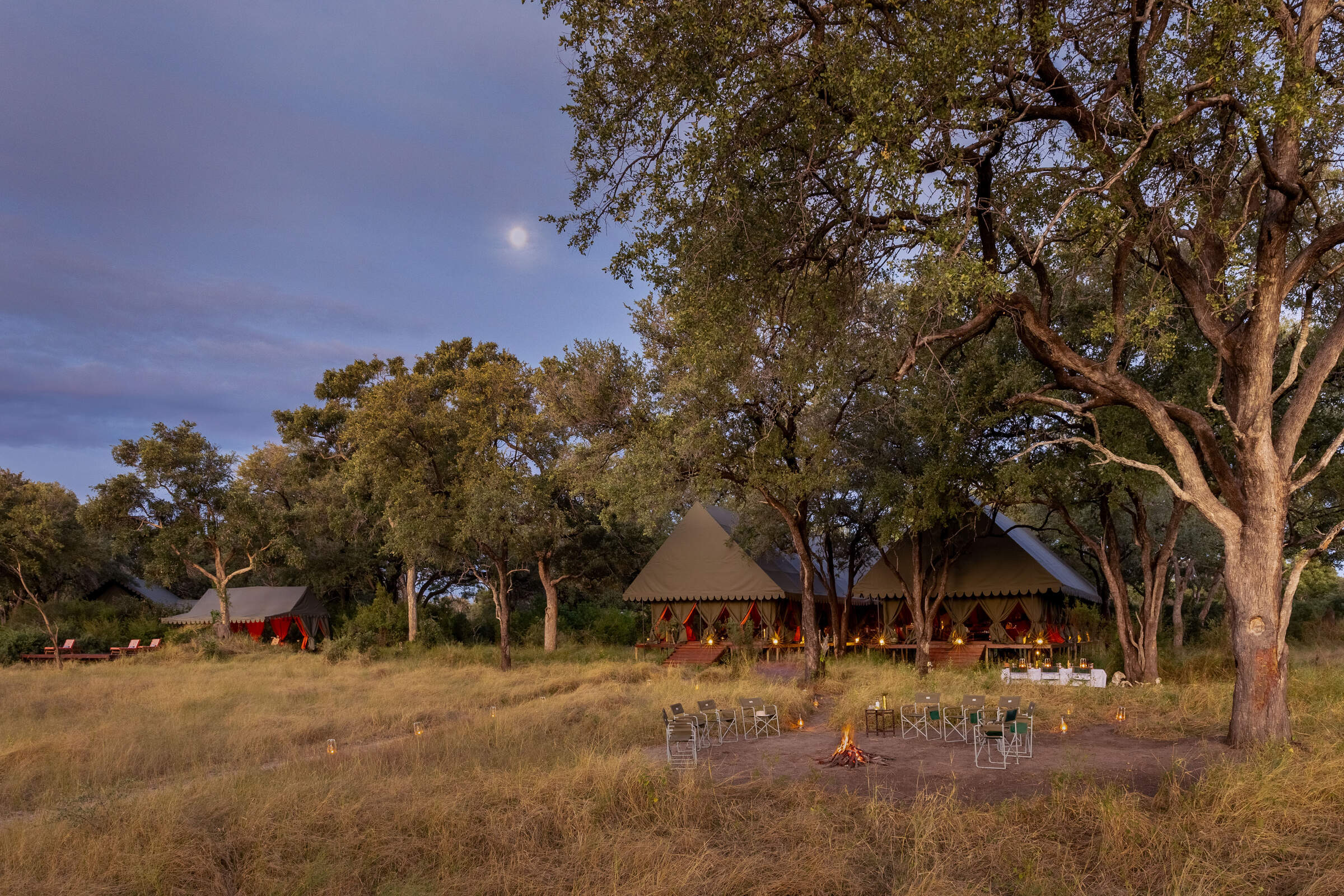
Mbamba
Deep within the northern Okavango, the classically styled Mbamba is located in the same wildlife-rich private concession as its sister camp Dukes.
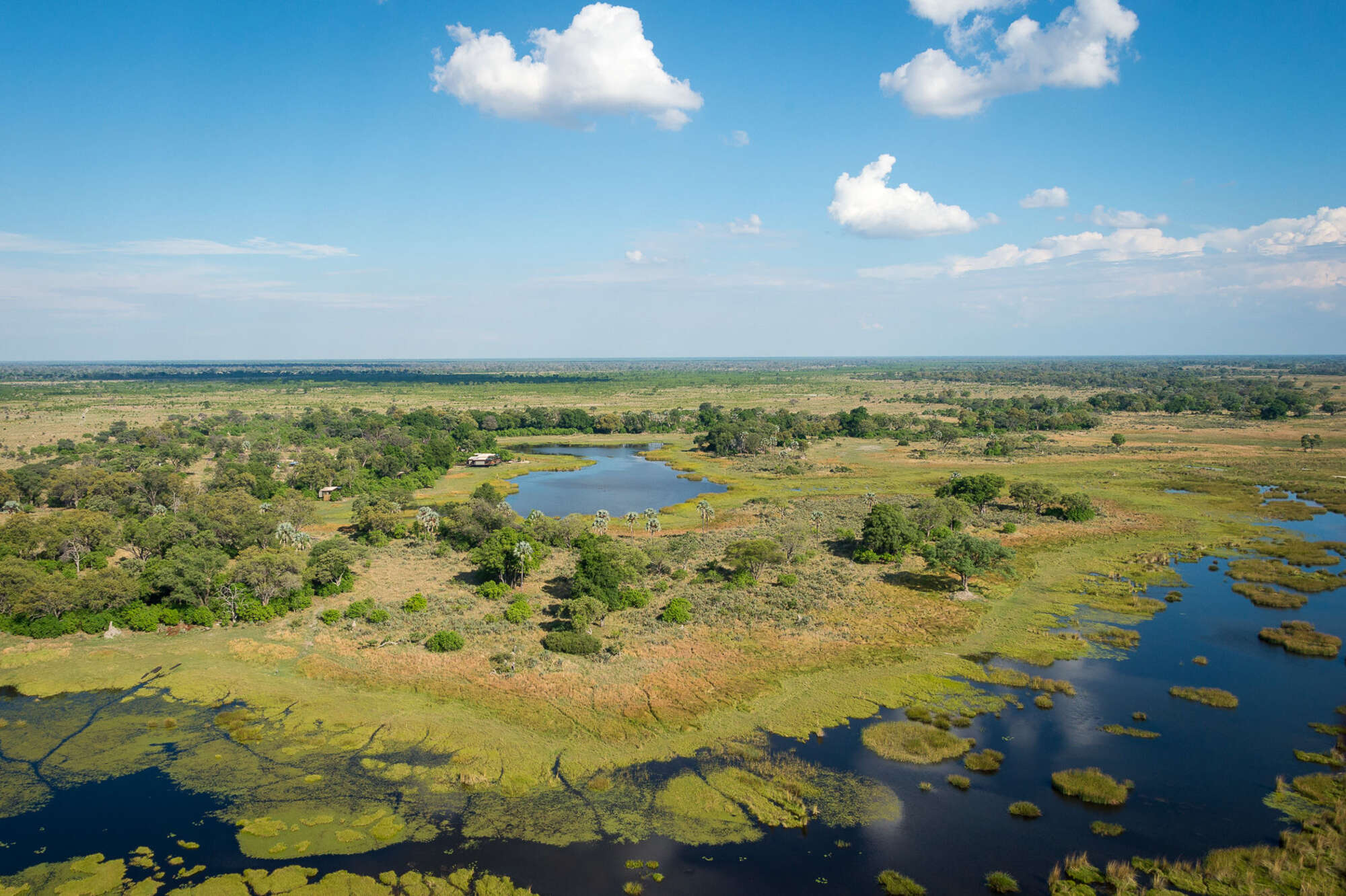
Qorokwe Camp
Luxurious and contemporary, the relatively new Qorokwe Camp is a gem in the Okavango Delta, offering land- and occasionally water-based activities in a prime wildlife area.
When to go to Okavango Delta Safari Reserves
Our month by month guide: What it's like to visit Chitabe Lediba in Okavango Delta Safari Reserves
Jan
Feb
Mar
Apr
May
Jun
Jul
Aug
Sep
Oct
Nov
Dec
Okavango Delta Safari Reserves in January
January marks the peak of the rainy season in the Okavango Delta. Evening rains are often short but heavy, accompanied by occasional dramatic thunderstorms. Temperatures remain high, although cooler than the preceding months of October to December. Wildlife can be harder to spot as animals spread out across the lush floodplains.
This month is a birdwatcher’s paradise, with migratory species in abundance over flooded areas. Rising water levels in parts of the Delta make mokoro safaris possible, offering serene and immersive experiences. The vibrant greenery and dramatic skies provide stunning opportunities for photography. With relatively low rates and fewer visitors, January is ideal for those seeking a quieter, budget-conscious Botswana safari.
- Warm temperatures with frequent evening showers
- Birdlife at its most spectacular in the Delta
- Wildlife dispersed, but insects and smaller creatures abound
- Excellent availability in Delta lodges and camps
Our view
A good time to visit, with pros & cons
Weather in January
Okavango Delta Safari Reserves in February
February mirrors January’s weather patterns, with heavy rains and slightly cooler temperatures. The Delta’s landscape is at its greenest and teeming with life. Smaller animals, insects, and vibrant birdlife dominate, as many species raise their young. The rains create temporary pools and waterholes, further dispersing larger game, while thick vegetation and tall grass adds to the challenge of spotting big wildlife.
However, Moremi Game Reserve and select areas of the Delta still offer excellent game viewing opportunities. Rising water levels enhance water activities, with boat safaris providing unique access to the Delta’s watery beauty. February is particularly rewarding for photographers seeking lush landscapes and dramatic skies and birdwatchers, with many migratory species present.
- Warm with occasional thunderstorms
- Many animals with young in the Delta
- Big game dispersed throughout wetlands
- Big game dispersed, but viewing improves in drier areas
- Lower visitor numbers and great lodge availability
Our view
This is not a great time to visit
Weather in February
Okavango Delta Safari Reserves in March
March marks the gradual end of the main rainy season in the Okavango Delta. Sunny days become more frequent, with occasional afternoon thunderstorms. The Delta remains lush and vibrant, with wildlife activity increasing as animals finish raising their young and begin congregating around permanent water sources.
Rising water levels make boat safaris a highlight, offering intimate access to the Delta’s waterways. Birdwatching is excellent, with both resident and migratory species thriving. With fewer visitors, March offers a quieter, more personal safari experience.
- Rains taper off but temperatures remain warm
- Occasional small thunderstorms in Delta
- Wildlife begins congregating around water sources
- Ideal conditions for boat safaris
- Few tourists and attractive rates at camps
Our view
A good time to visit, with pros & cons
Weather in March
Okavango Delta Safari Reserves in April
April brings clearer skies to the Okavango Delta, with the landscape remaining green and lush. Night temperatures begin to drop, especially in the southern Delta. The annual floods from Angola start to flow through the northern Delta, filling channels and lagoons, creating ideal conditions for water-based activities like boat safaris.
Wildlife viewing improves as vegetation thins and predator activity increases with cooler evenings. Moremi Game Reserve and the private concessions offer rewarding game drives, and walking safaris on the larger islands, such as Chief’s Island, become popular during this time. Birdwatching remains excellent, with many migratory species still present. April’s combination of pleasant weather, wildlife activity, and relatively low rates makes it a rewarding time to visit.
- Cooler evenings and occasional light showers
- Floodwaters begin to fill Delta channels
- Predator-prey interactions increase
- Ideal for walking safaris and boat trips
- Popular shoulder season, rates fairly low
Our view
A good time to visit, with pros & cons
Weather in April
Okavango Delta Safari Reserves in May
May is a popular time to visit the Okavango Delta, marking the last month of the shoulder season. The annual floods continue to spread through the Delta, transforming the landscape. Cooler mornings and evenings encourage predator activity, while thinning vegetation makes wildlife spotting easier, though some tall grasses may still obstruct views.
May offers excellent photographic opportunities with clear, crisp air. It's a favourite time for many visitors, combining good wildlife sightings with pleasant weather. Camp bookings throughout the Delta fill up quickly during this period.
This is a perfect month for scenic flights, offering breathtaking views of the advancing floodwaters. Mokoro trips through the Delta’s tranquil waterways provide a unique perspective on the environment. Camps start to fill quickly as the Delta’s combination of pleasant weather and excellent wildlife sightings makes it a favourite among safari-goers.
- Cool mornings and evenings with little rain
- Improved game viewing as Delta grasses thin
- Predator activity increasing in drier areas
- Scenic flights and water activities highly recommended
- Last month of shoulder season for camps
Our view
A very good time to visit
Weather in May
Okavango Delta Safari Reserves in June
June signals the start of the dry season in the Okavango Delta. Days are warm, with clear skies, while mornings and evenings can be cold, occasionally reaching freezing temperatures. The annual floods reach their peak, creating spectacular conditions for water-based activities like boat safaris along the Khwai River and in private concessions.
Wildlife concentrates around permanent water sources as surface water dries up, improving game viewing. The thinning vegetation and crisp, clear air make June perfect for photography. High demand for camp bookings reflects its popularity, as this month combines great game viewing and pleasant weather.
- Warm days, cold mornings and nights
- Peak floodwaters make boat safaris unforgettable
- Wildlife congregates around permanent water sources
- Excellent conditions for photography
- High demand for camps and lodges
Our view
Fantastic: the very best time to visit
Weather in June
Okavango Delta Safari Reserves in July
July offers cool mornings and evenings with warm, sunny days, making it ideal for wildlife viewing. The floodwaters remain at their peak, providing excellent opportunities for boat safaris. Vegetation continues to thin, enhancing visibility on game drives in Moremi Game Reserve and the Okavango’s private reserves.
Large herds of elephants and buffalo are common sights as they gather near water sources. Predator sightings, including lions and leopards, increase as prey concentrates. Birdwatching is rewarding, and the crisp winter air creates stunning photographic conditions. July is one of the most popular months to visit, with many lodges fully booked well in advance.
- Comfortable days, cold mornings and nights
- Excellent game viewing and predator activity
- Moremi and Khwai areas become busy
- Private concessions offer exclusivity
- High season rates; advance bookings essential
Our view
Fantastic: the very best time to visit
Weather in July
Okavango Delta Safari Reserves in August
August remains a highly sought-after month for visiting the Okavango Delta. Nights are cool, while daytime temperatures rise gradually. Wildlife viewing is exceptional as animals concentrate near water sources, while the Delta’s floods are typically at their peak, offering picturesque settings for excellent boat safaris.
Walking safaris and game drives in areas like Moremi Game Reserve and Chief’s Island are particularly rewarding. Large herds of elephants and buffalo are common sights, and predator activity is high, with increased chances of seeing lions, leopards, and wild dogs hunting. The clear skies and lack of humidity create excellent stargazing conditions. With many travellers visiting during European and North American holidays, lodge availability can be challenging.
- Dry, warm days and cool nights in the Delta
- Fantastic wildlife viewing near water sources
- Excellent opportunities for game drives and boat safaris
- Cloudless skies, spectacular stargazing
- High demand for accommodation – book early
Our view
Fantastic: the very best time to visit
Weather in August
Okavango Delta Safari Reserves in September
September is a favourite for many safari-goers in the Okavango Delta. Daytime temperatures rise, but nights remain cool. The landscape transforms as greenery fades, and hazy conditions create dramatic sunsets. Wildlife viewing peaks as animals cluster around permanent water sources, with especially large numbers of elephants and buffalo. This concentration of prey attracts predators, increasing chances of witnessing exciting hunts.
The return of migratory birds enhances birdwatching. Water levels begin to recede, but boat cruises are still possible. Dusty conditions may challenge photographers, but the stunning landscapes and wildlife action more than make up for it.
- Warm days, cool nights in the Delta
- Prime month for Okavango wildlife viewing
- Migratory birds return, enriching birdwatching
- Spectacular sunsets and dramatic scenery
- High season rates, many Delta camps full
Our view
Fantastic: the very best time to visit
Weather in September
Okavango Delta Safari Reserves in October
October is the hottest and driest month in the Okavango Delta. Wildlife concentrates around the last remaining water sources, creating some of the most dramatic game viewing opportunities of the year. Predator-prey interactions are frequent and visibility is excellent, making for thrilling safaris.
Walking safaris are particularly rewarding, especially on smaller islands, but early starts are essential to avoid the midday heat. Towards the end of the month, the first rains may bring relief and begin rejuvenating the parched landscape. Despite the heat, October offers excellent big-game viewing and dramatic photographic moments of animal interactions.
- Hot days, with late-month chances of rain
- Outstanding big-game viewing near water sources
- Water activities limited as floods recede
- Walking safaris provide unique experiences
- Final month of the peak safari season
Our view
Fantastic: the very best time to visit
Weather in October
Okavango Delta Safari Reserves in November
November marks the start of the green season in the Delta. Rising humidity and temperatures often lead to the first heavy rains; these are typically short, heavy showers in the late afternoon or night, creating spectacular scenes and bringing a flush of green to the parched landscape. Wildlife begins to disperse as waterholes refill, but game drives still offer rewarding sightings.
Water levels may be low, limiting boat activities, but November is exceptional for birdwatching, with the arrival of many migratory species. Scenic flights highlight the contrast between dry and wet areas. The first two weeks are popular for travellers seeking good game viewing at lower rates as the Delta transitions into its shoulder season.
- Hot, humid days in the Delta
- Dramatic rain showers , increasing as month progresses
- Migratory birds arrive in abundance
- Wildlife watching good, but less predictable
- Shoulder season offers mid-range rates
Our view
A good time to visit, with pros & cons
Weather in November
Okavango Delta Safari Reserves in December
December sees the rainy season in full swing across the Okavango Delta, bringing some respite from high temperatures. Game viewing becomes more challenging as wildlife disperses, but great sightings can still be had. The landscape transforms dramatically, with lush vegetation sprouting across the Delta. This period is excellent for birdwatching, with numerous migratory species present.
Water levels begin to rise, gradually improving conditions for boat safaris. The green season offers unique photographic opportunities, with dramatic skies and newborn animals. December is ideal for visitors seeking a more intimate Delta experience, with fewer tourists and lower rates at many camps and lodges. The combination of wildlife, birdlife, and scenic beauty makes it a rewarding time to visit.
- Warm temperatures
- High chance of rain in short, heavy storms
- Wildlife more dispersed across Delta
- Game viewing more challenging in wetlands
- Low-season rates and fewer visitors in most Delta camps
Our view
A good time to visit, with pros & cons
Weather in December

Looking for inspiration on where to travel next?
Visit our trip chooser to explore your options and find inspiration for your perfect African adventure
Inspire me